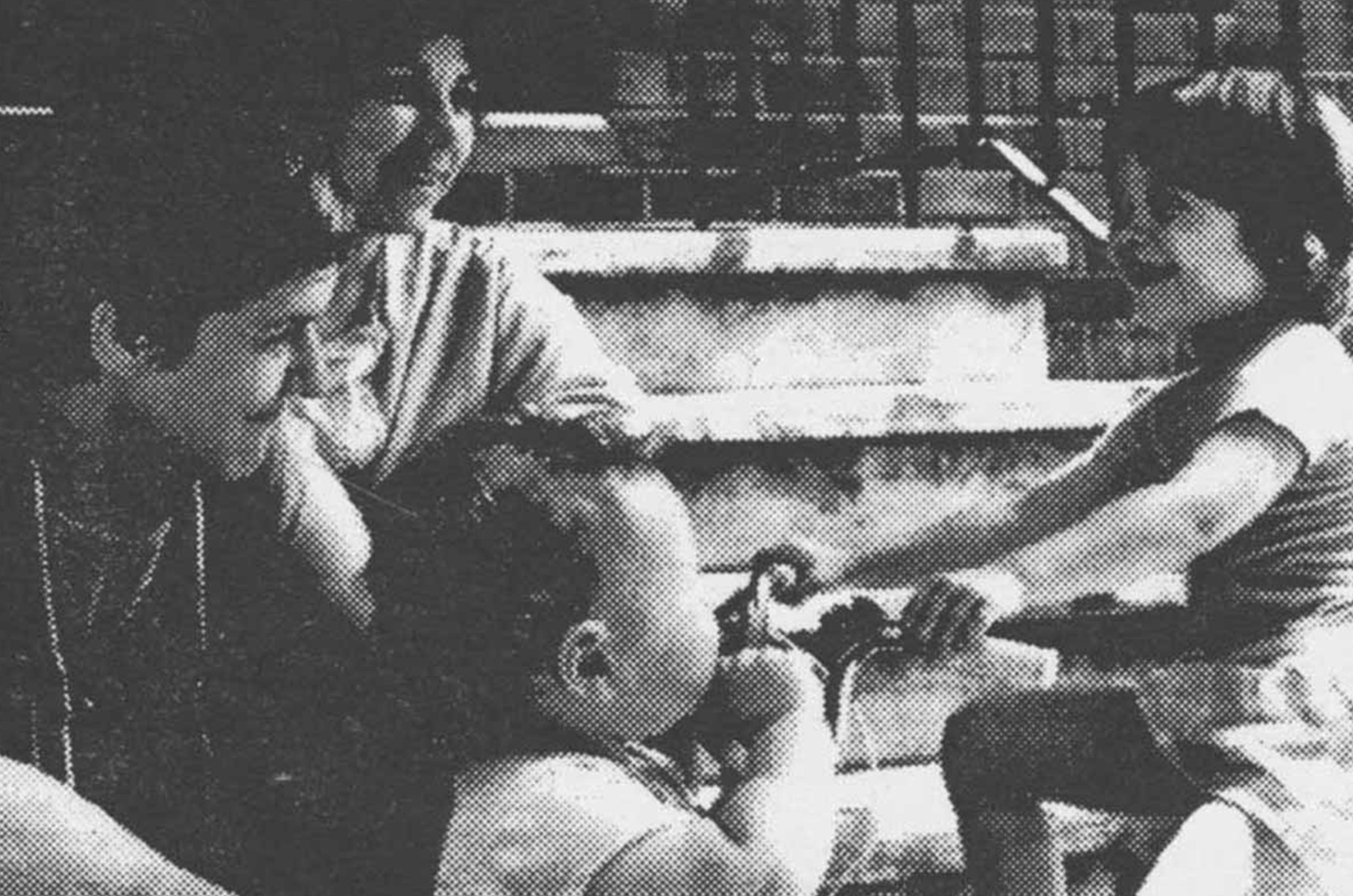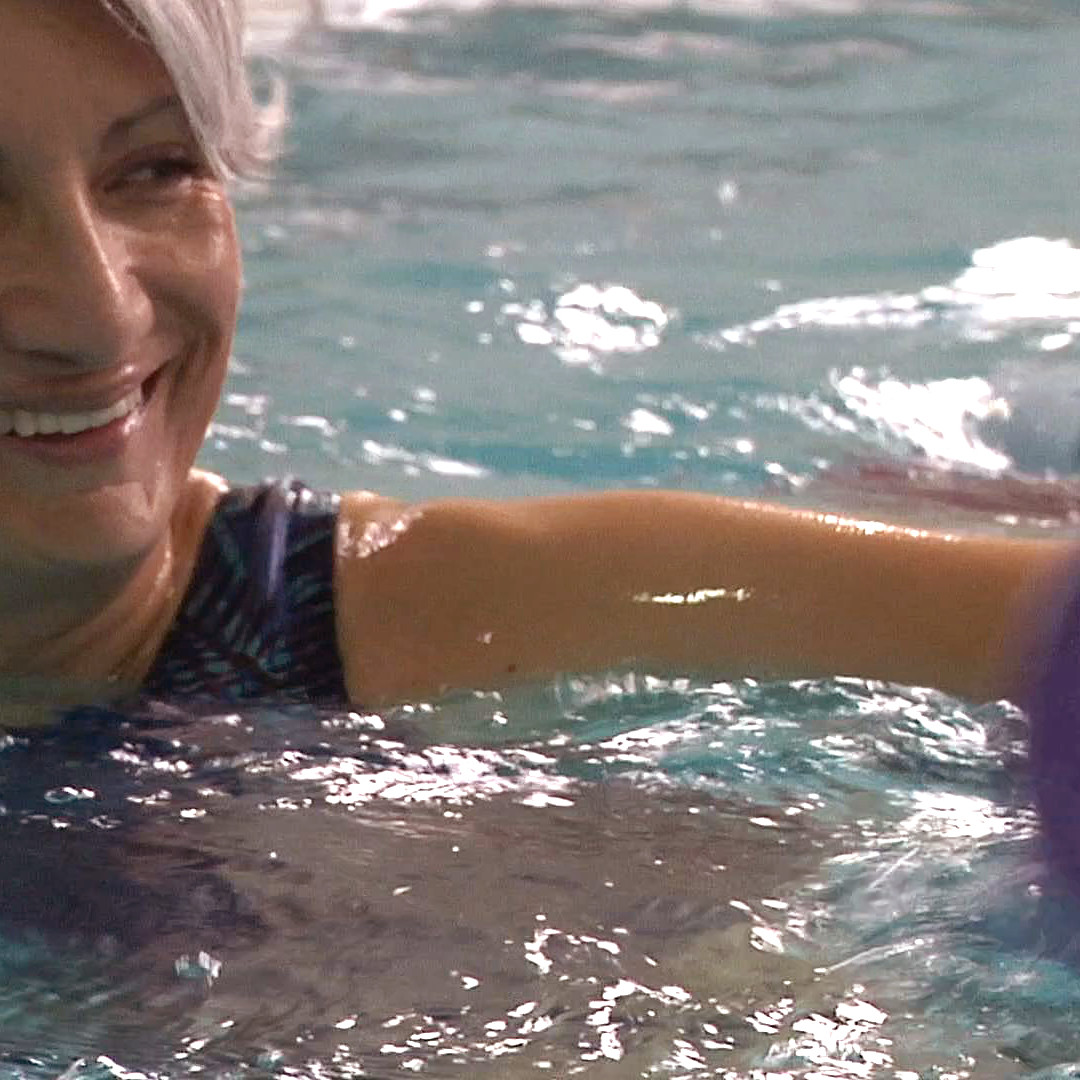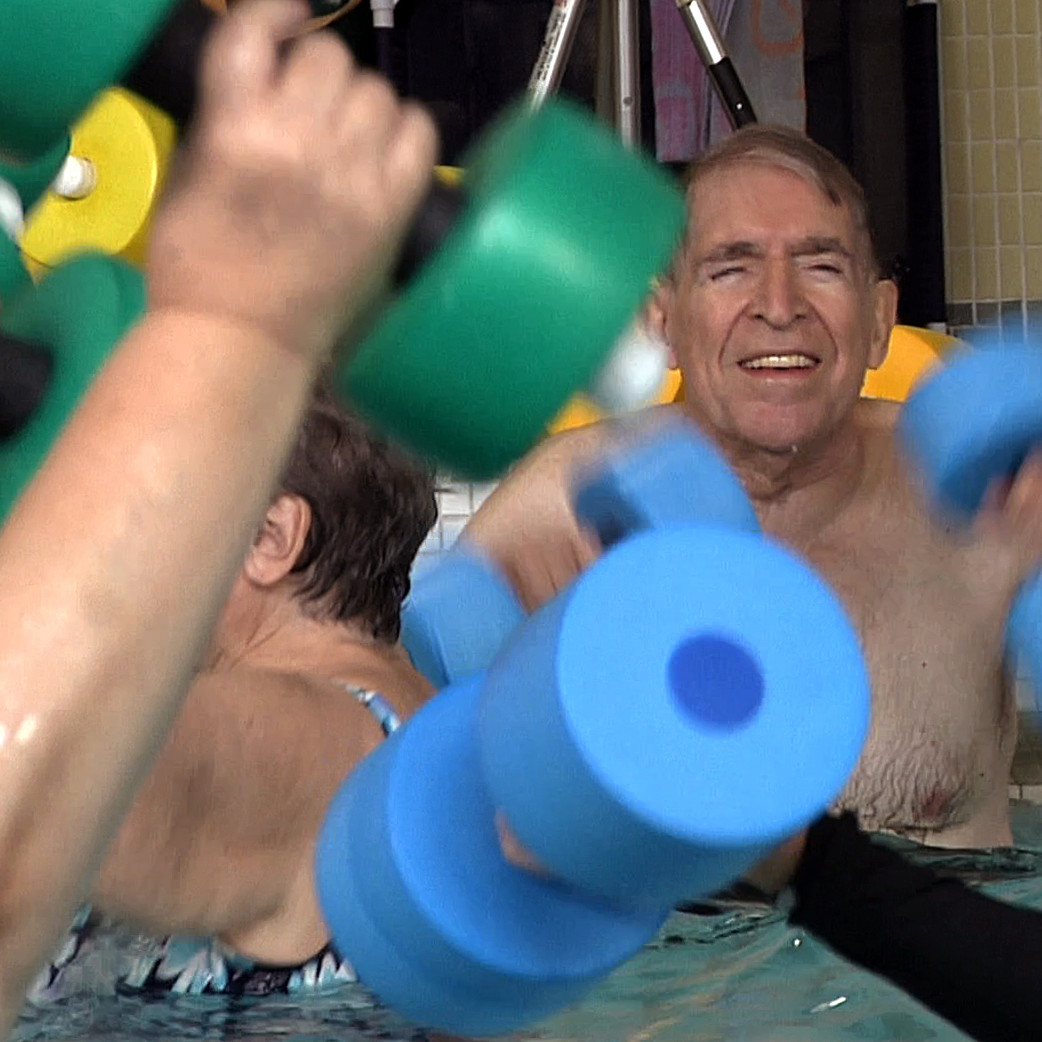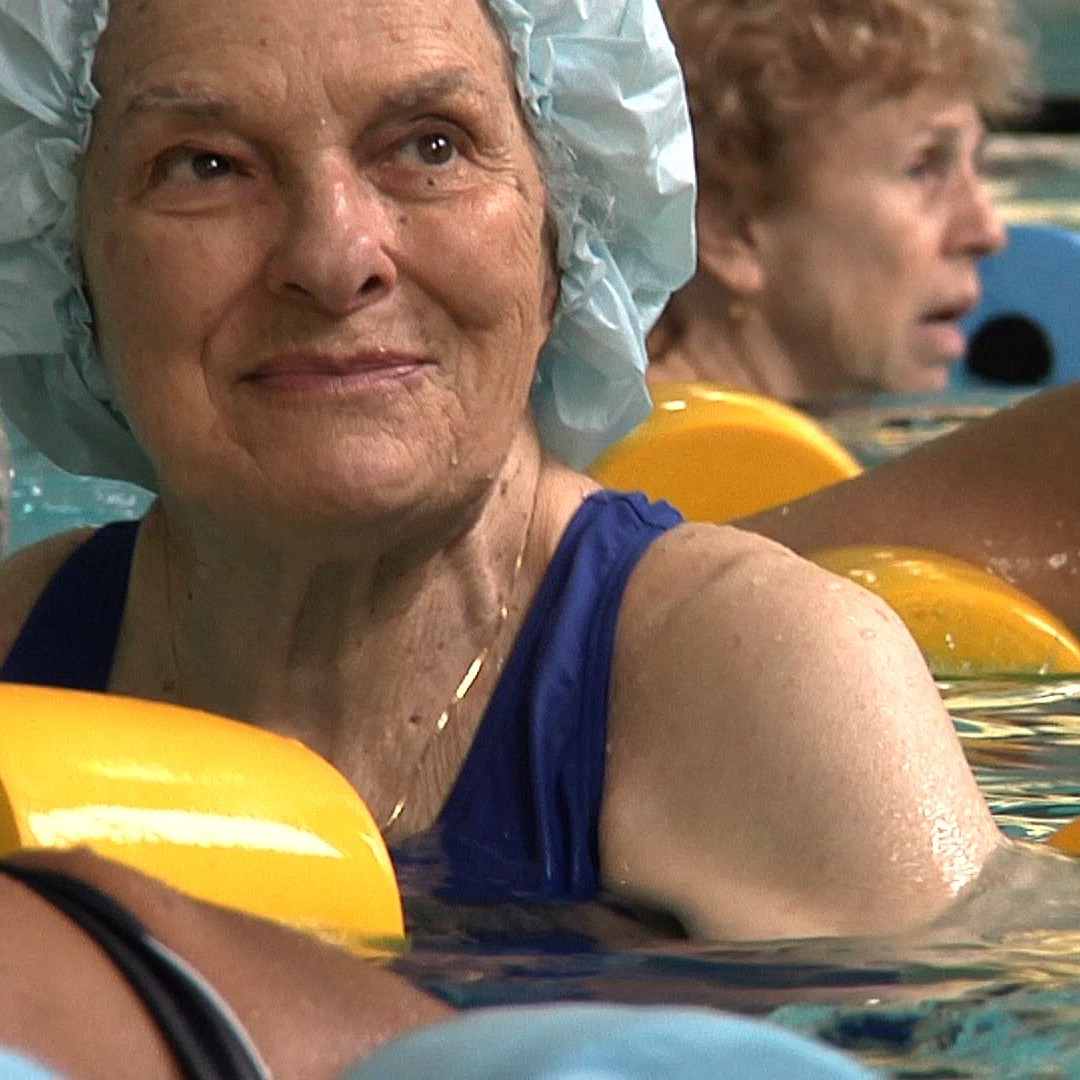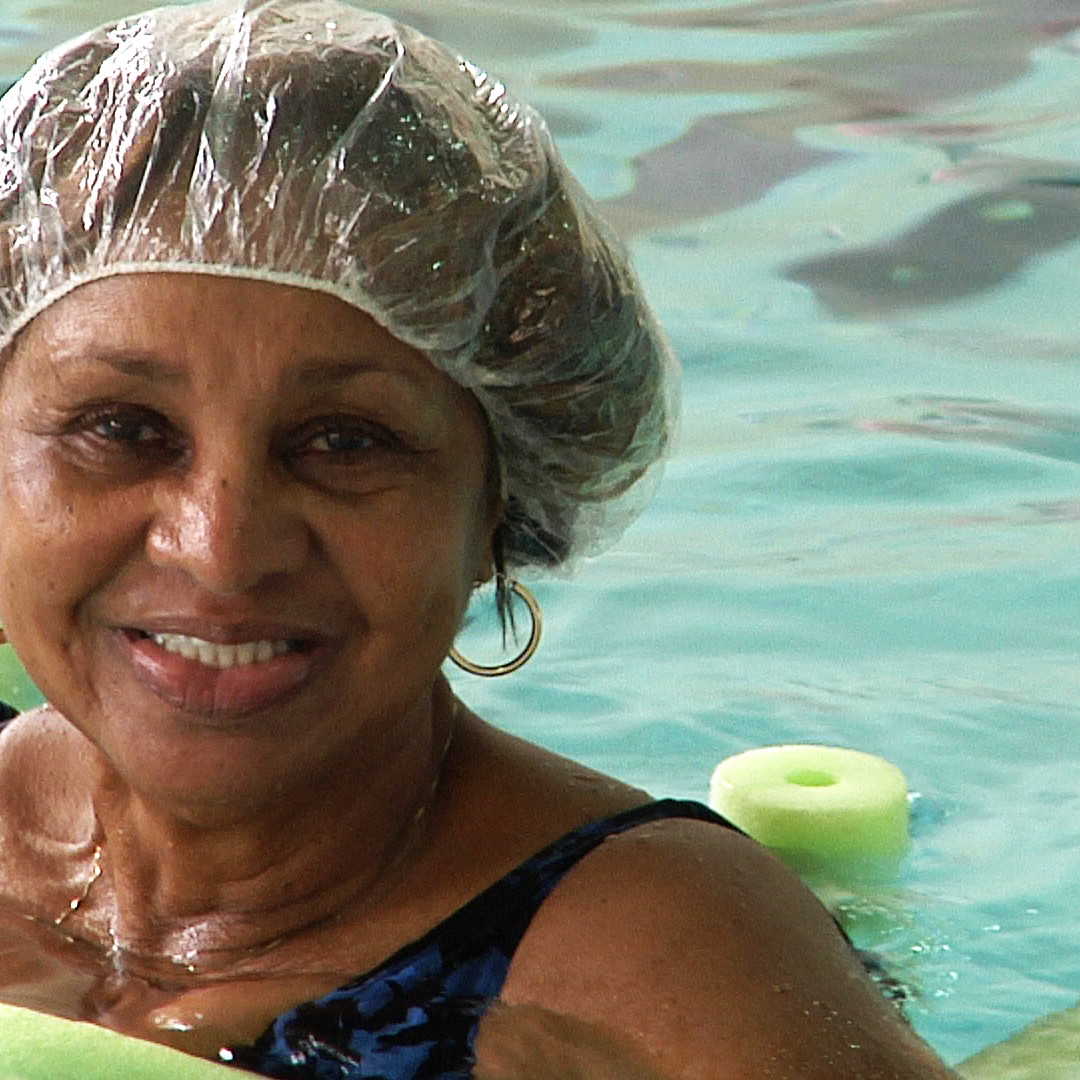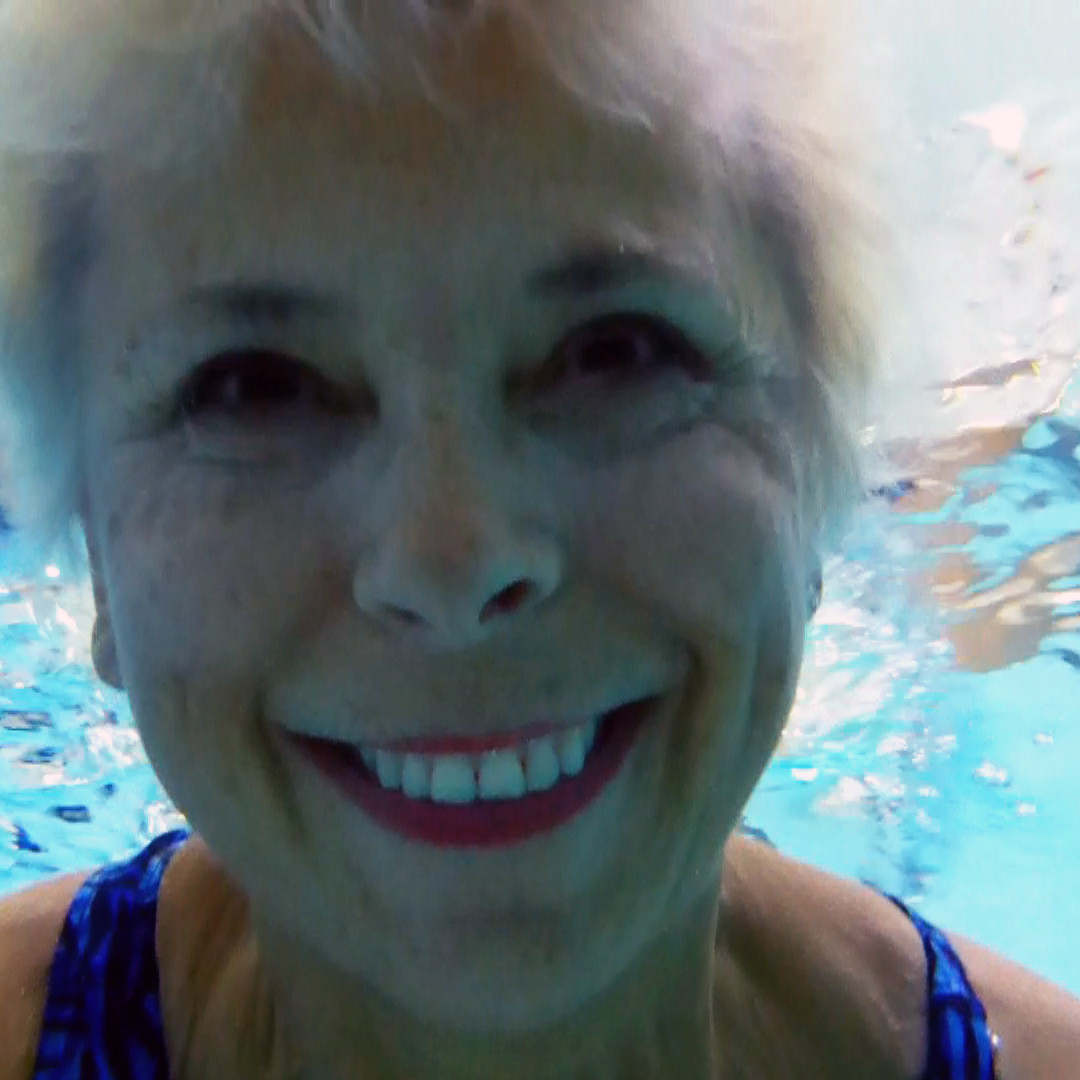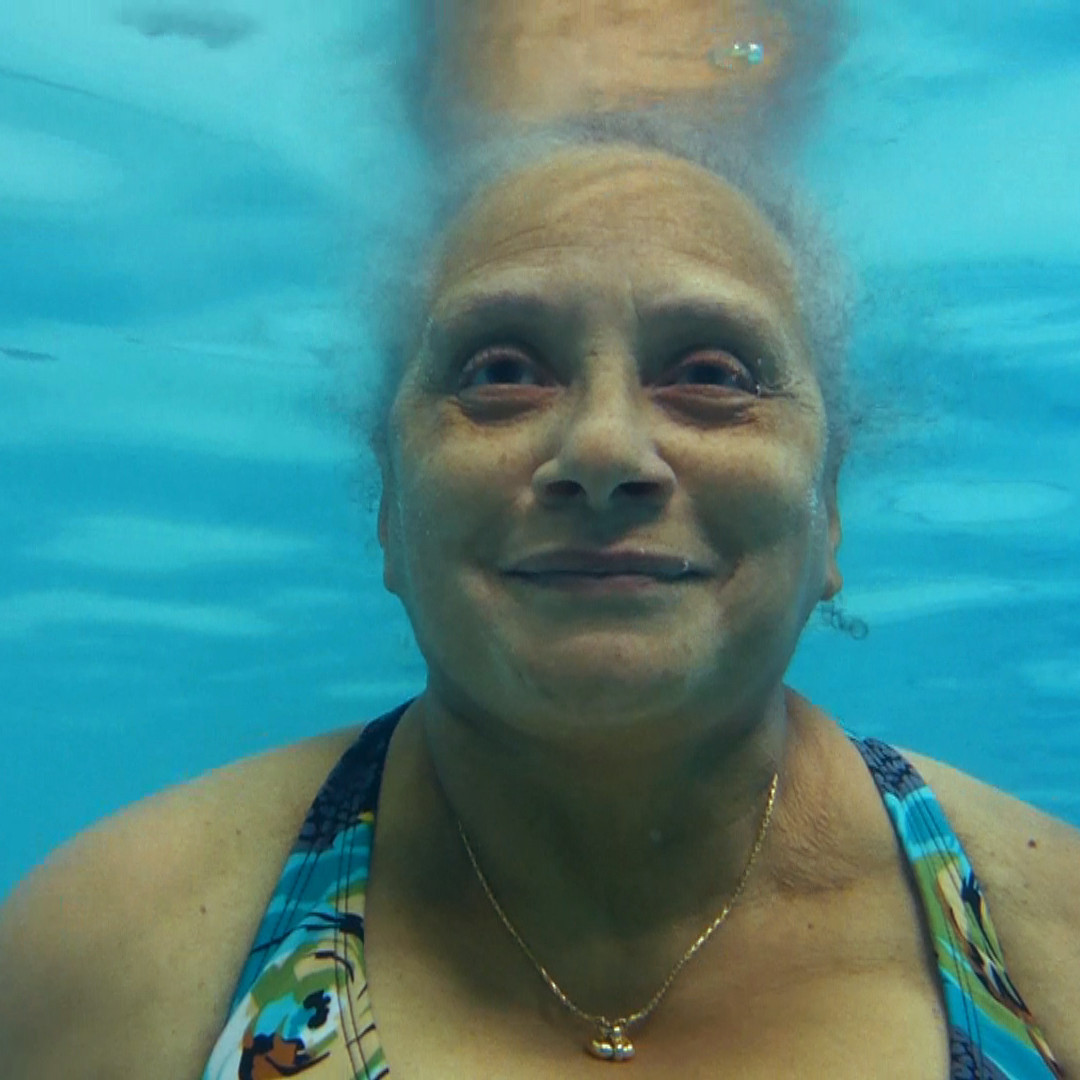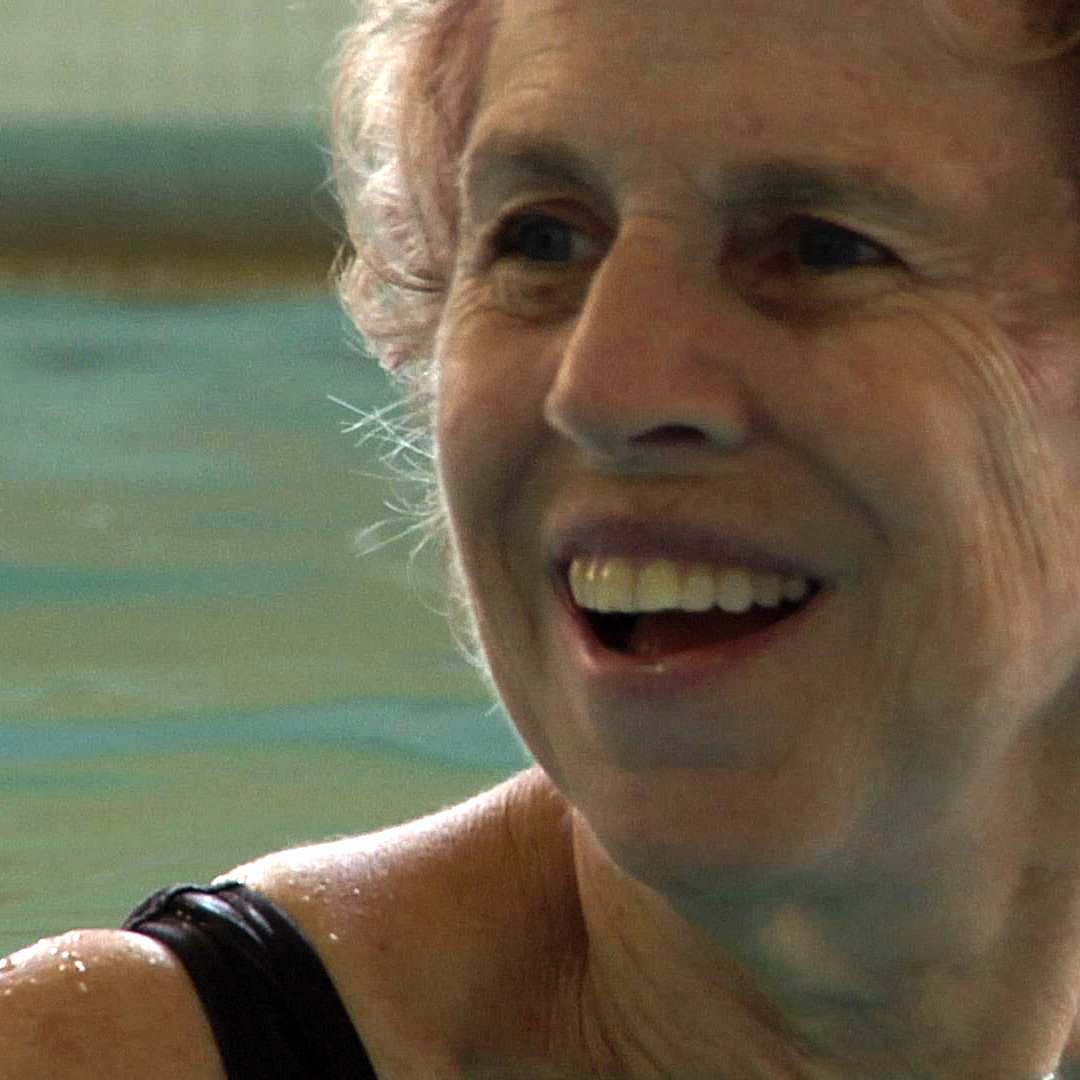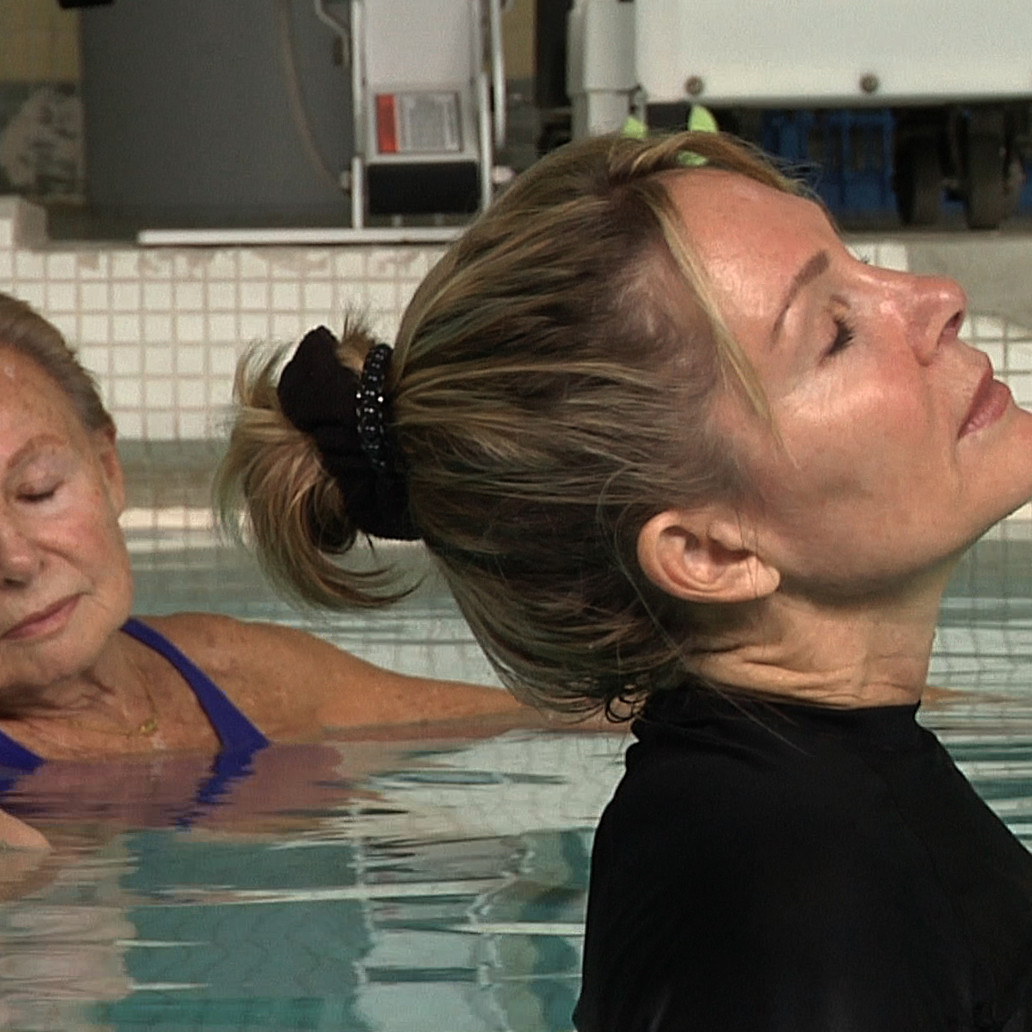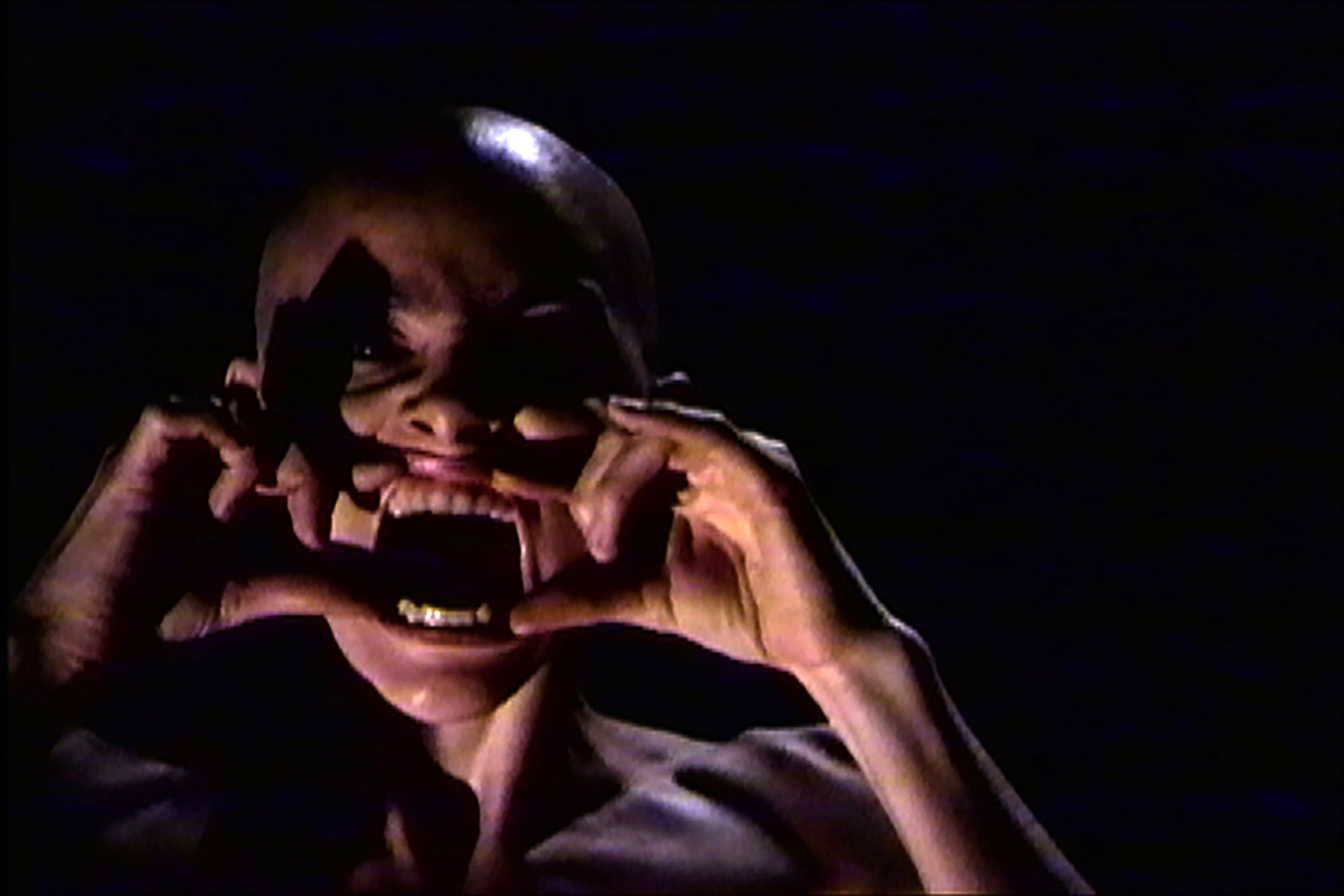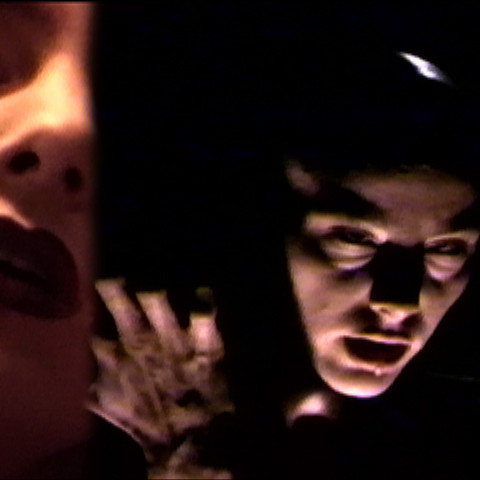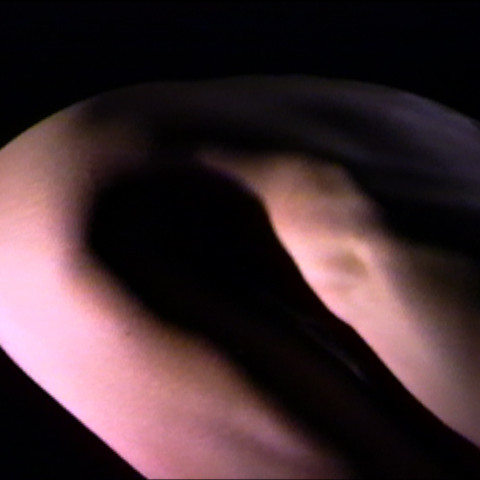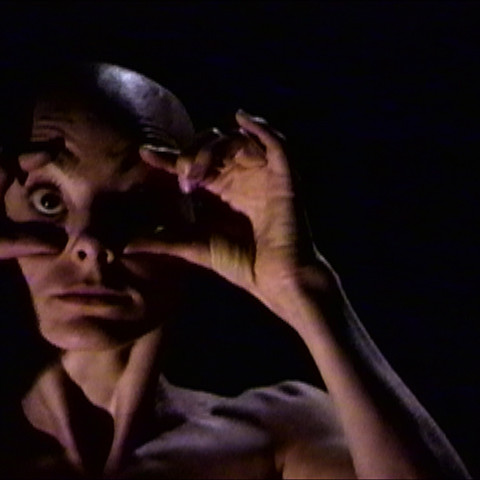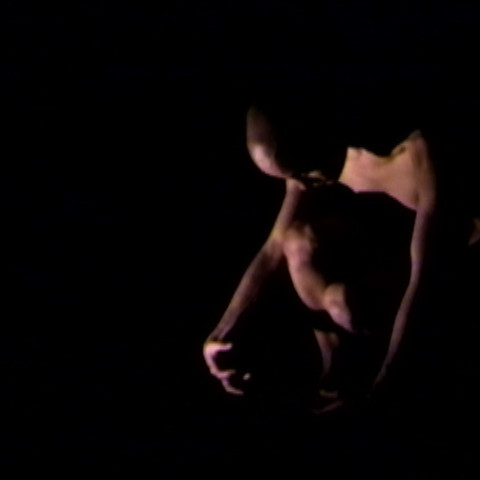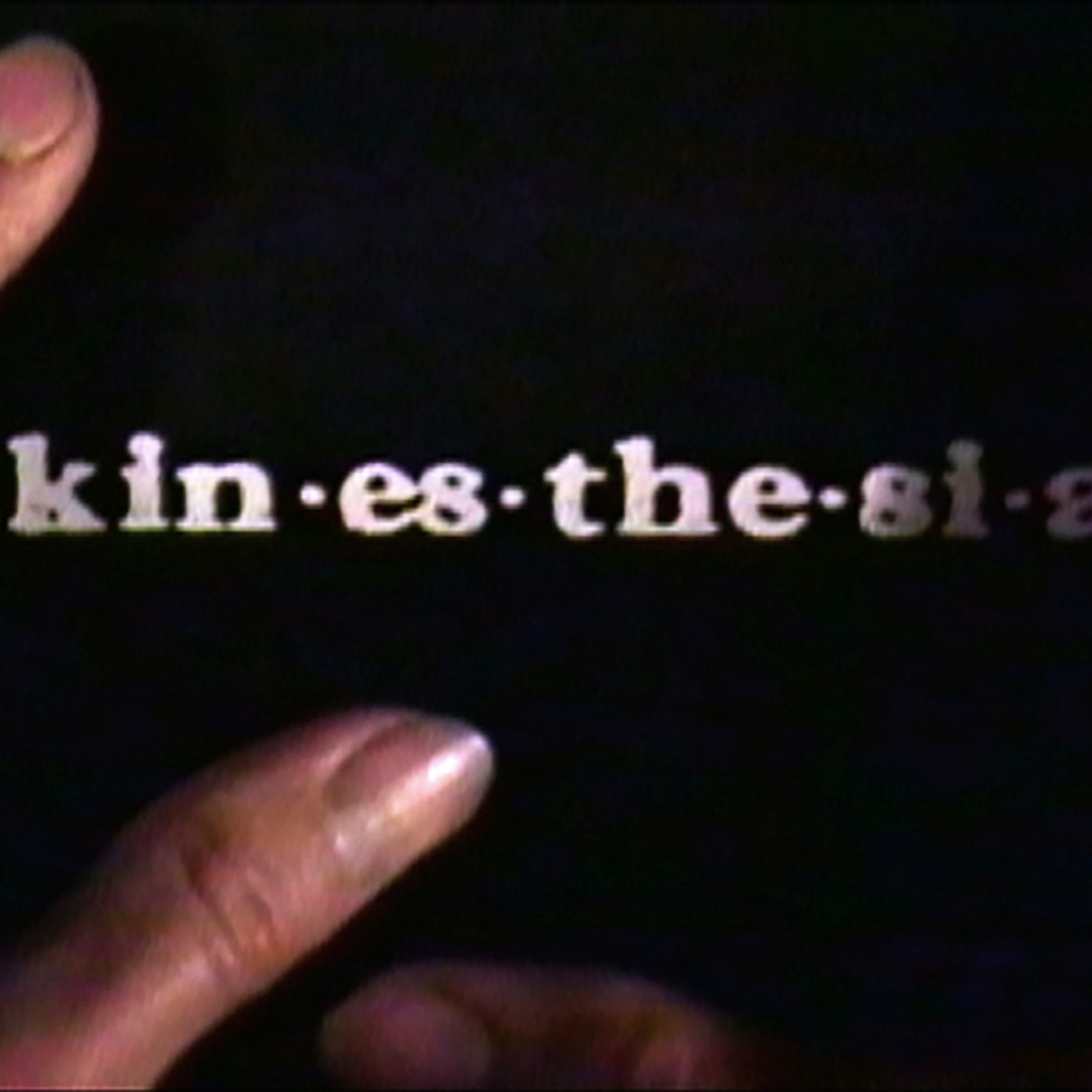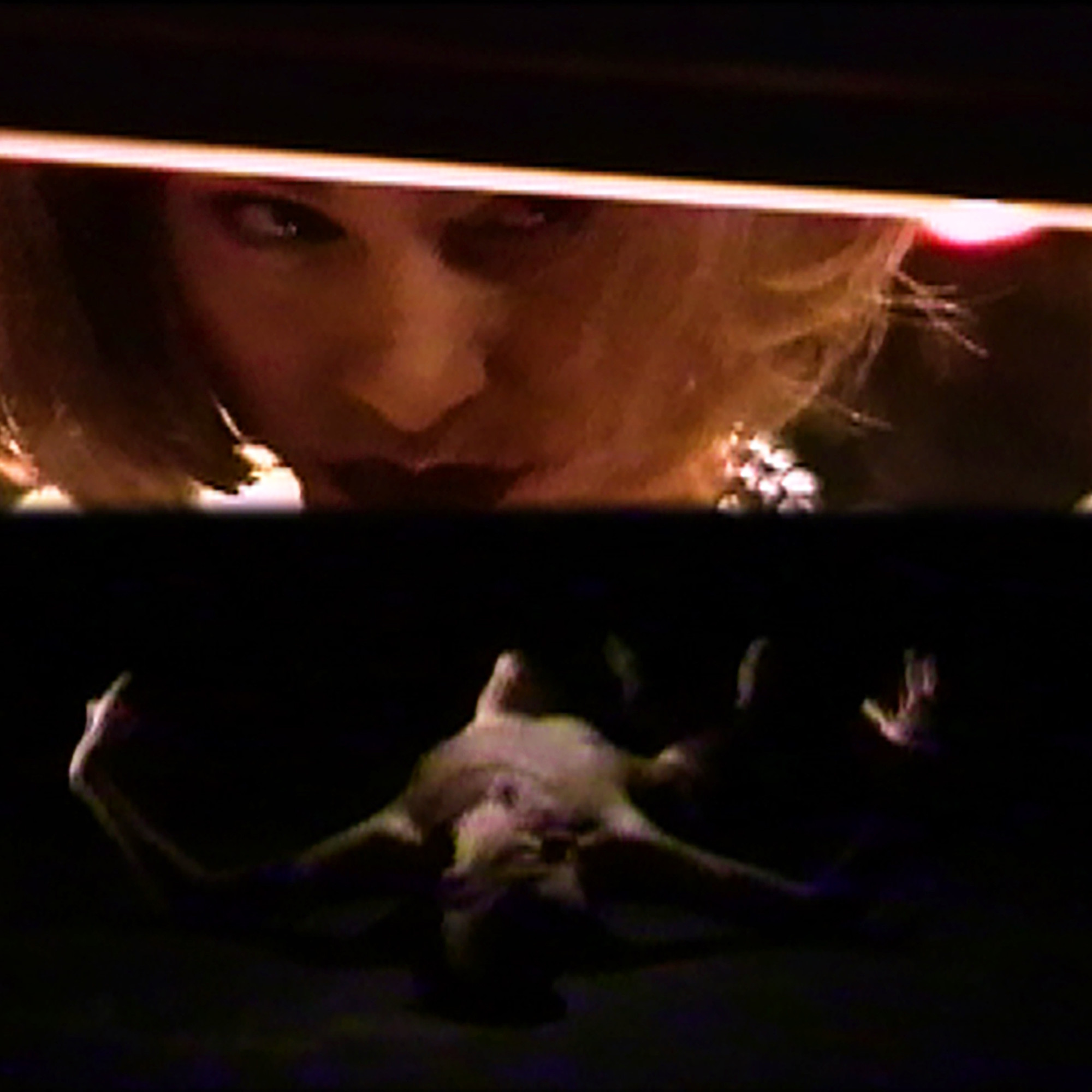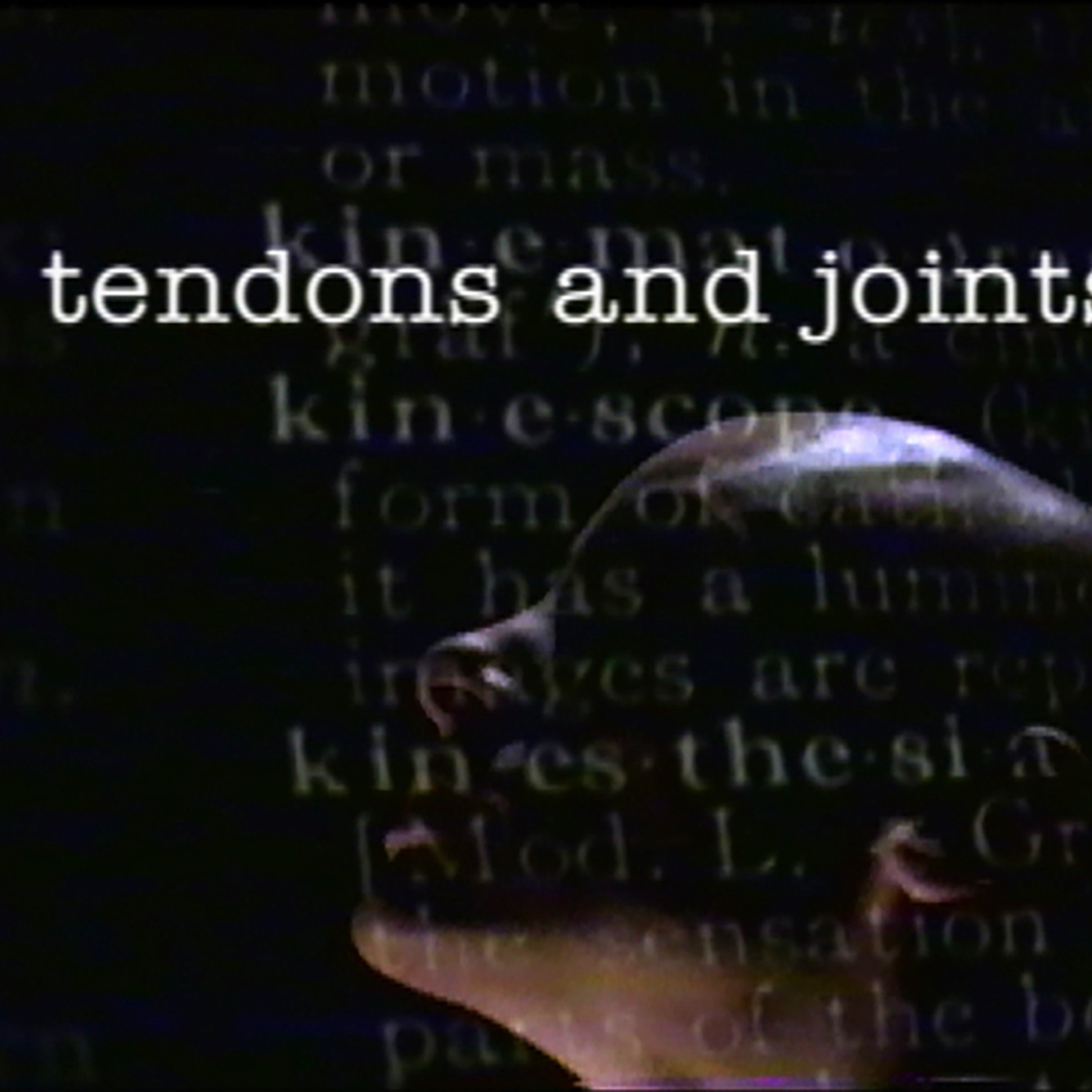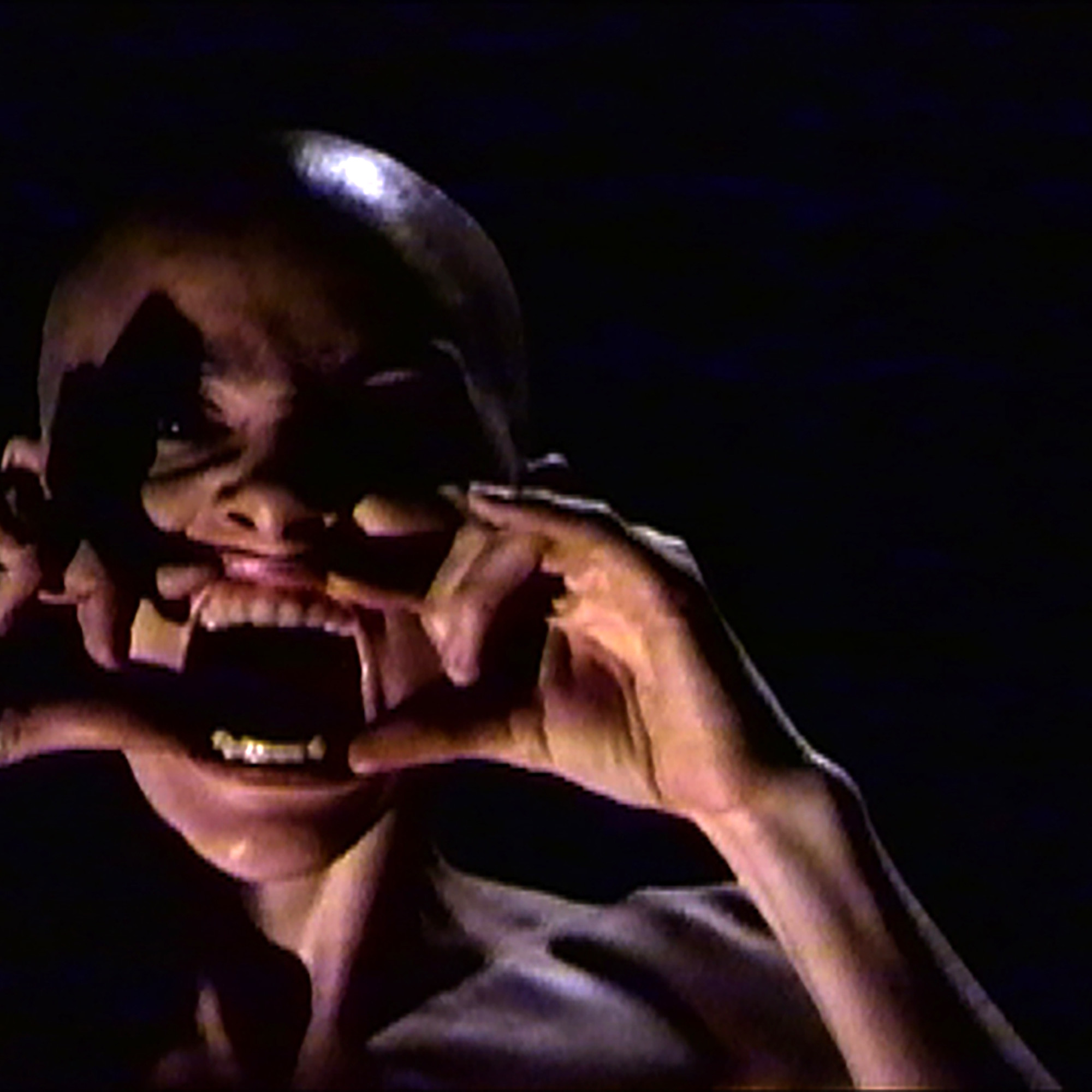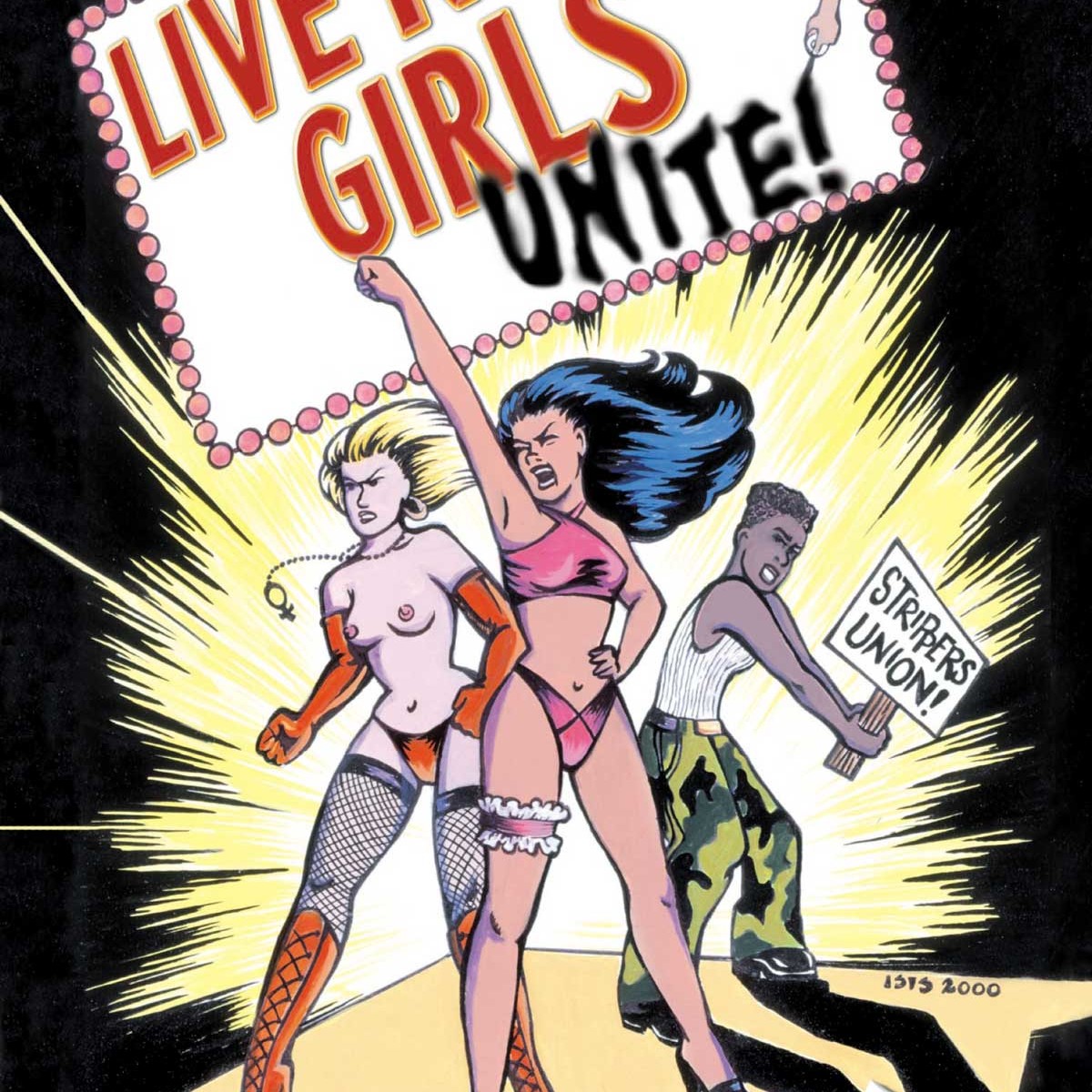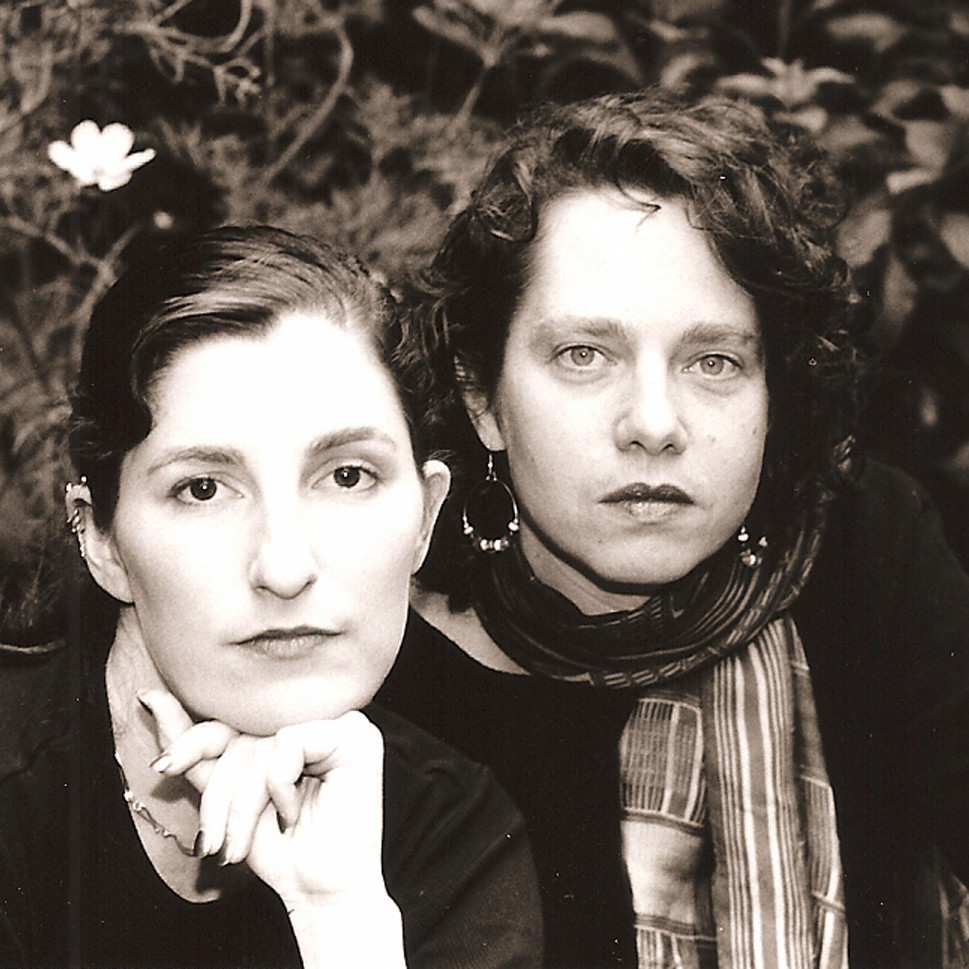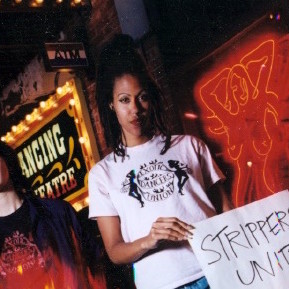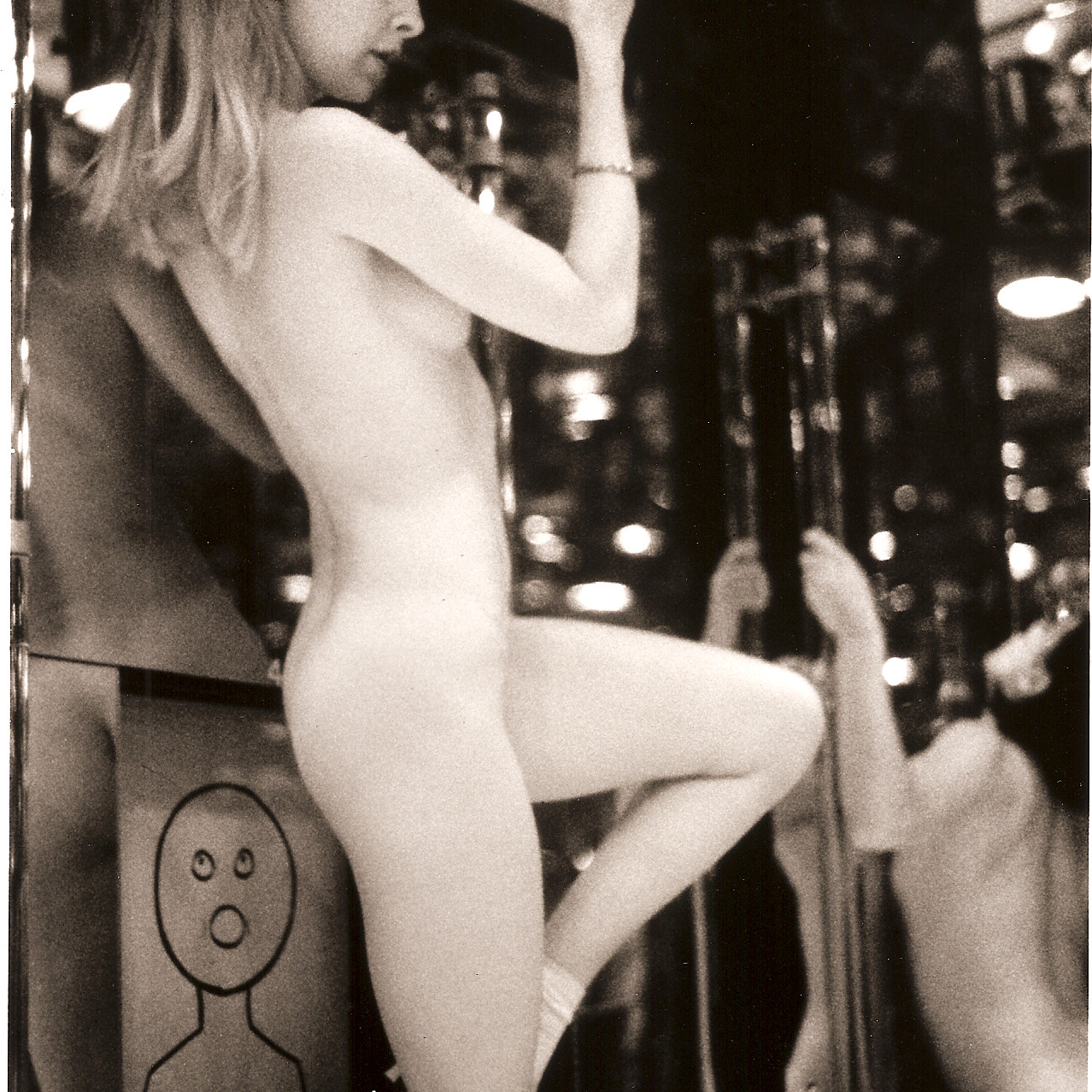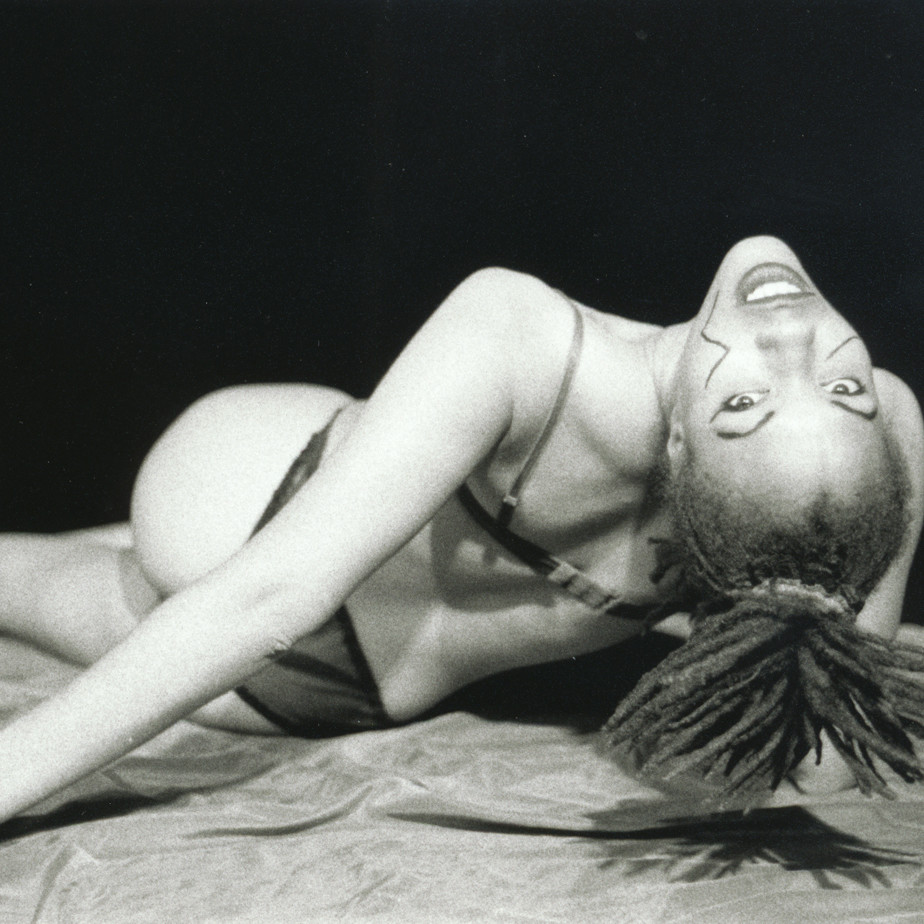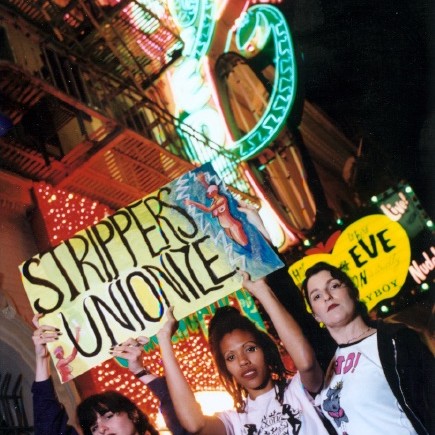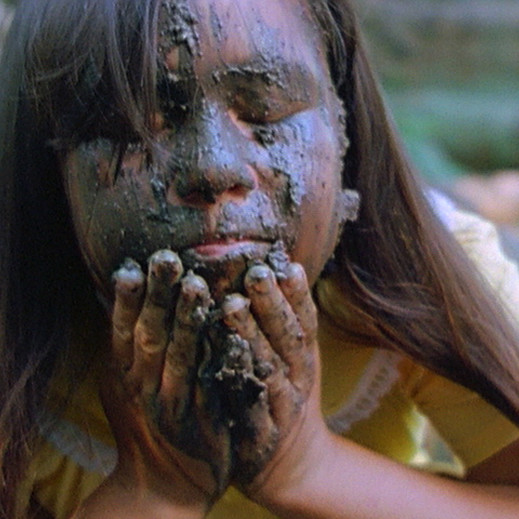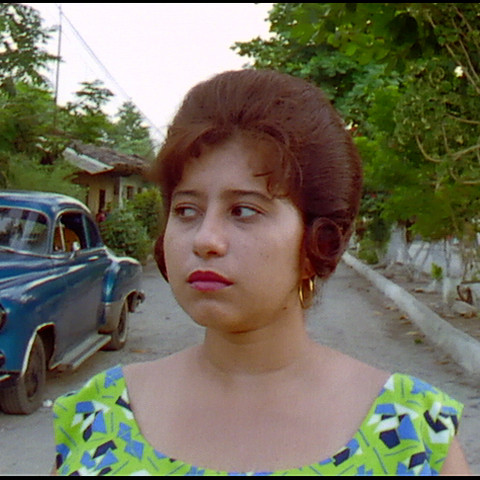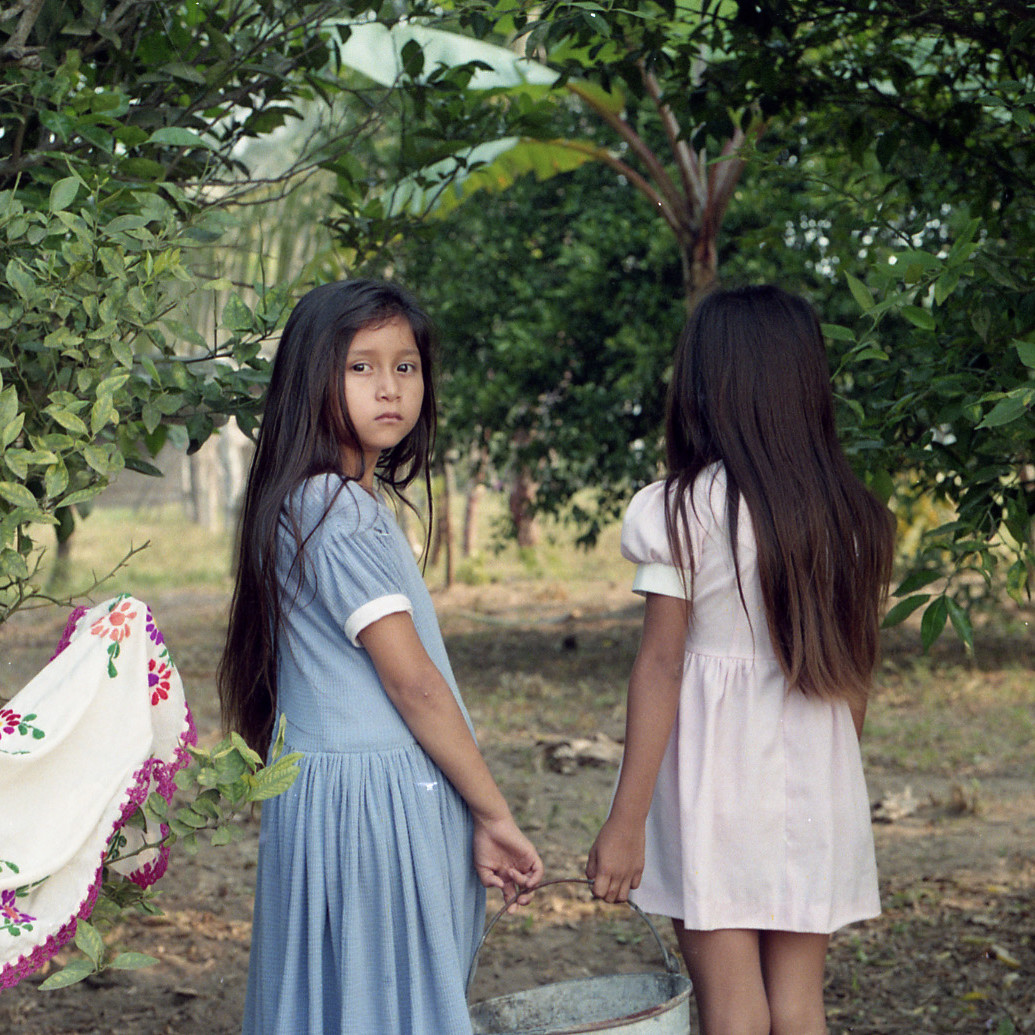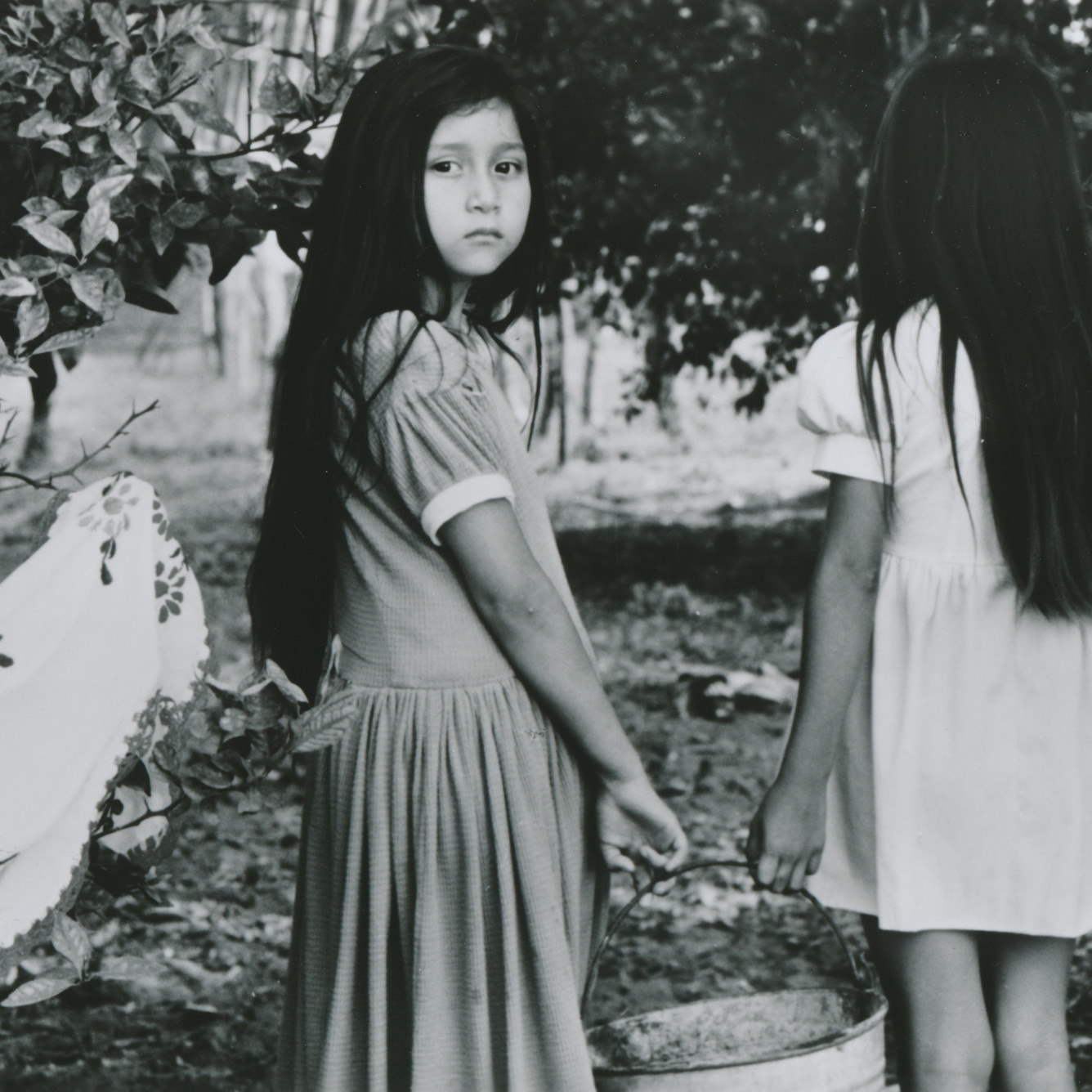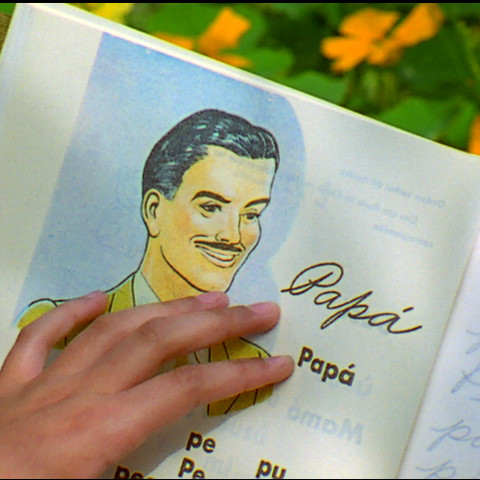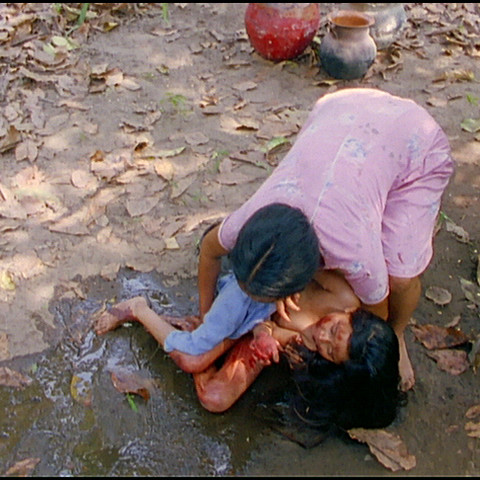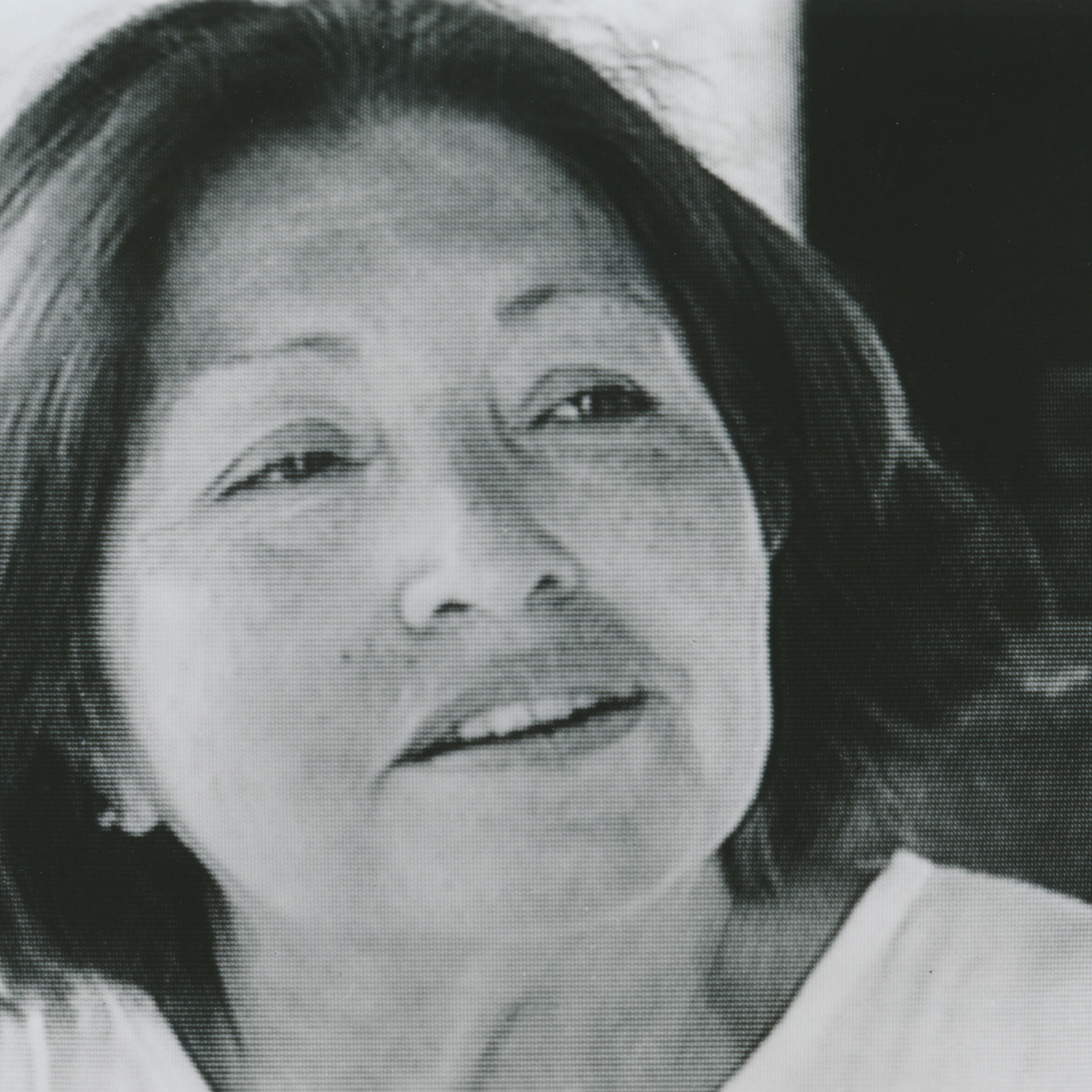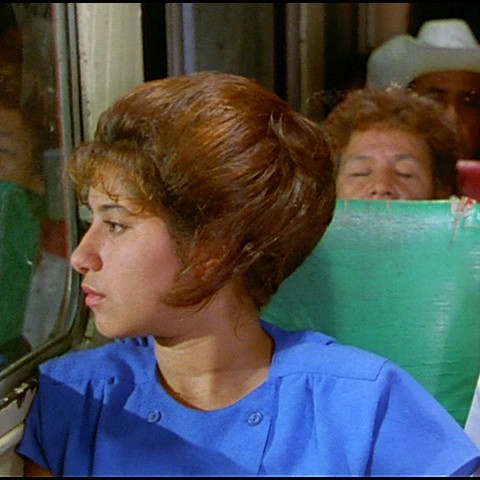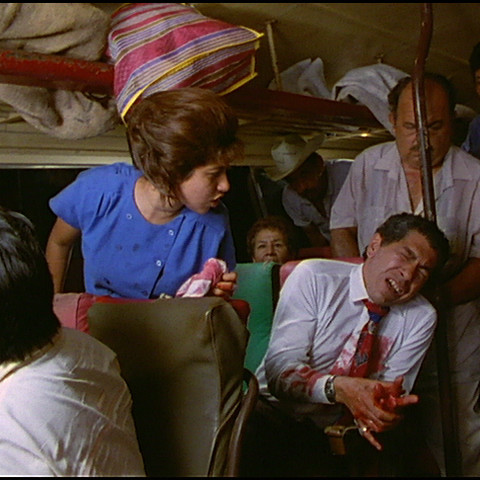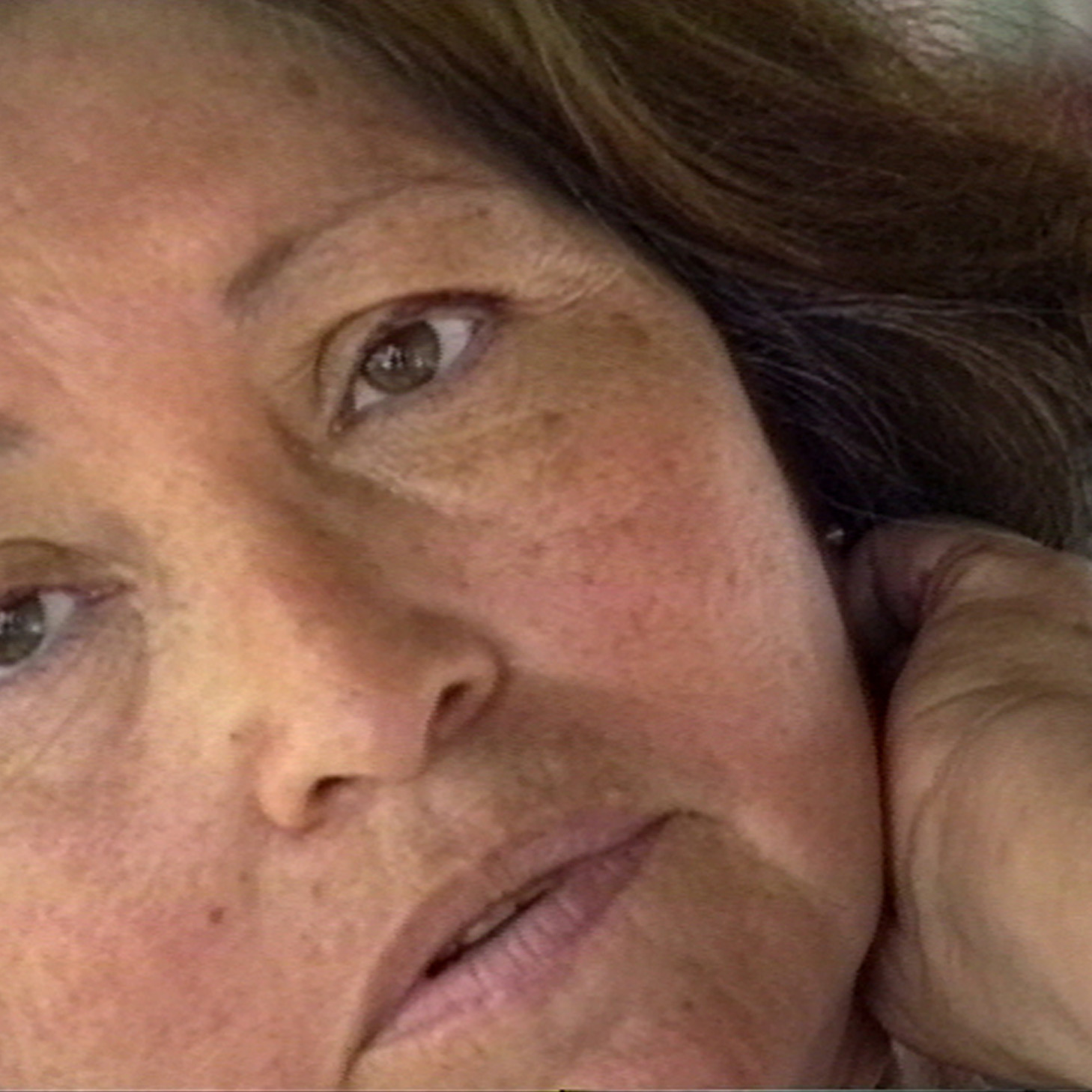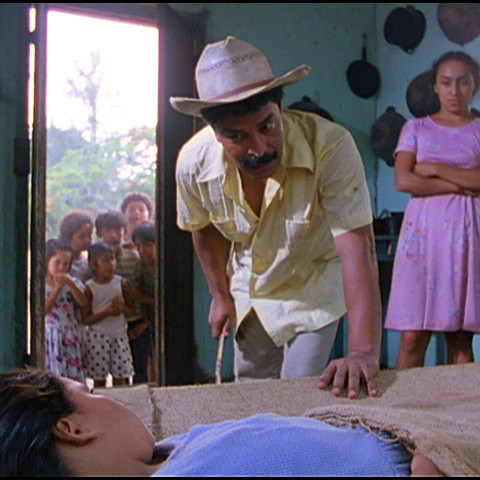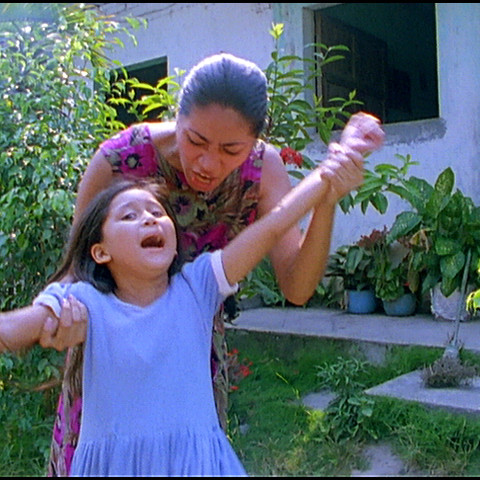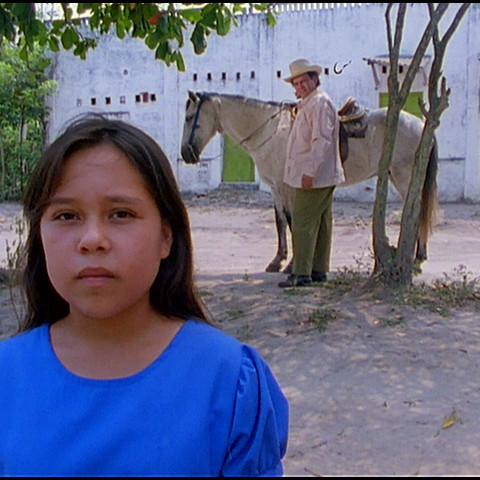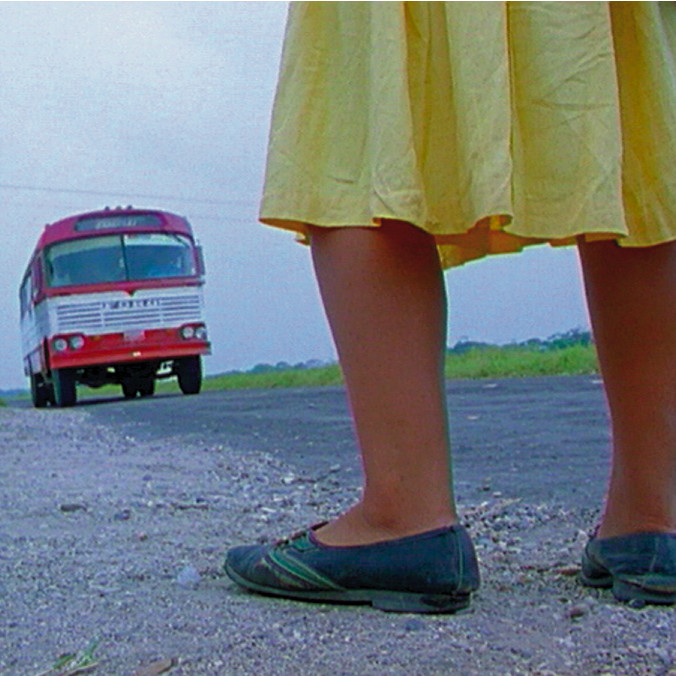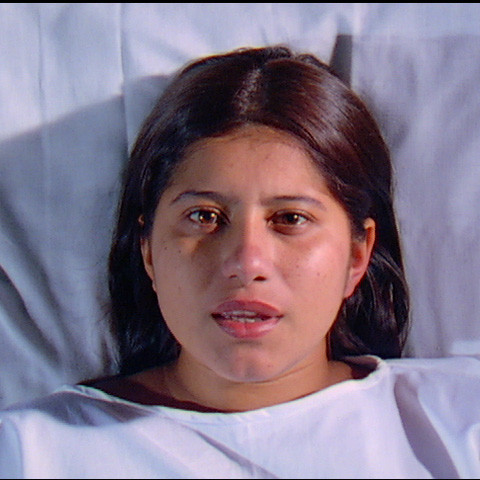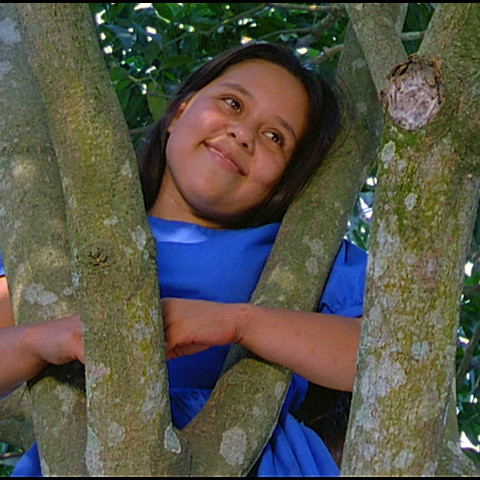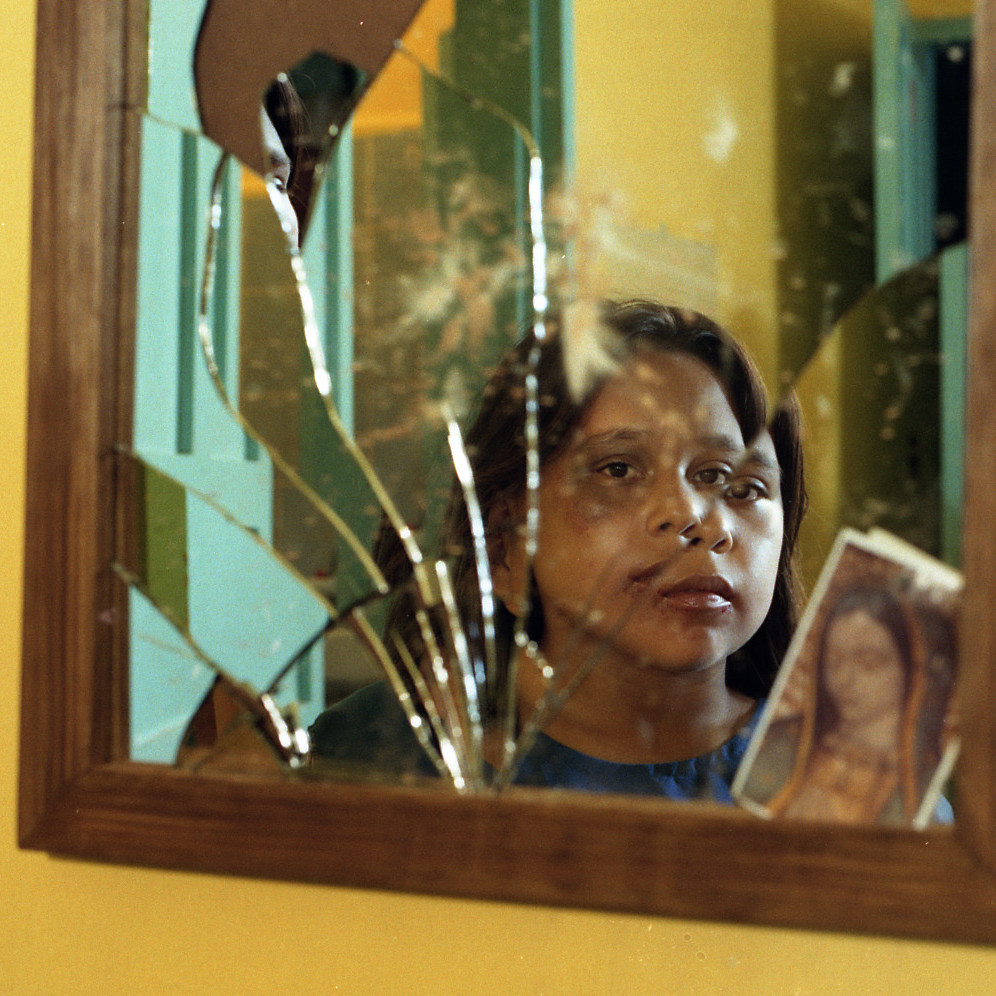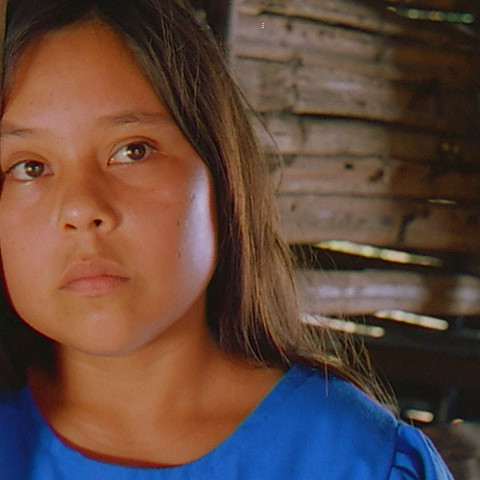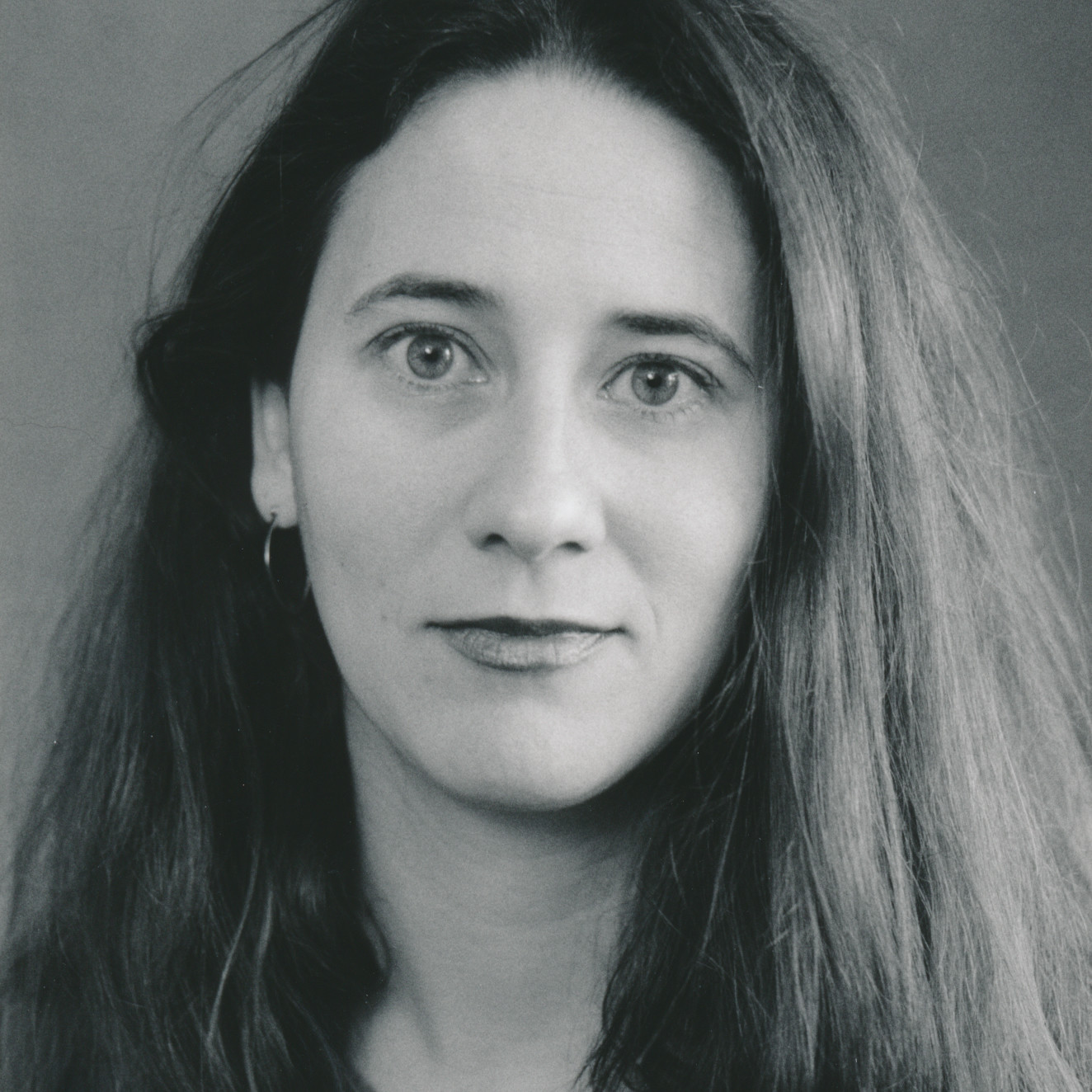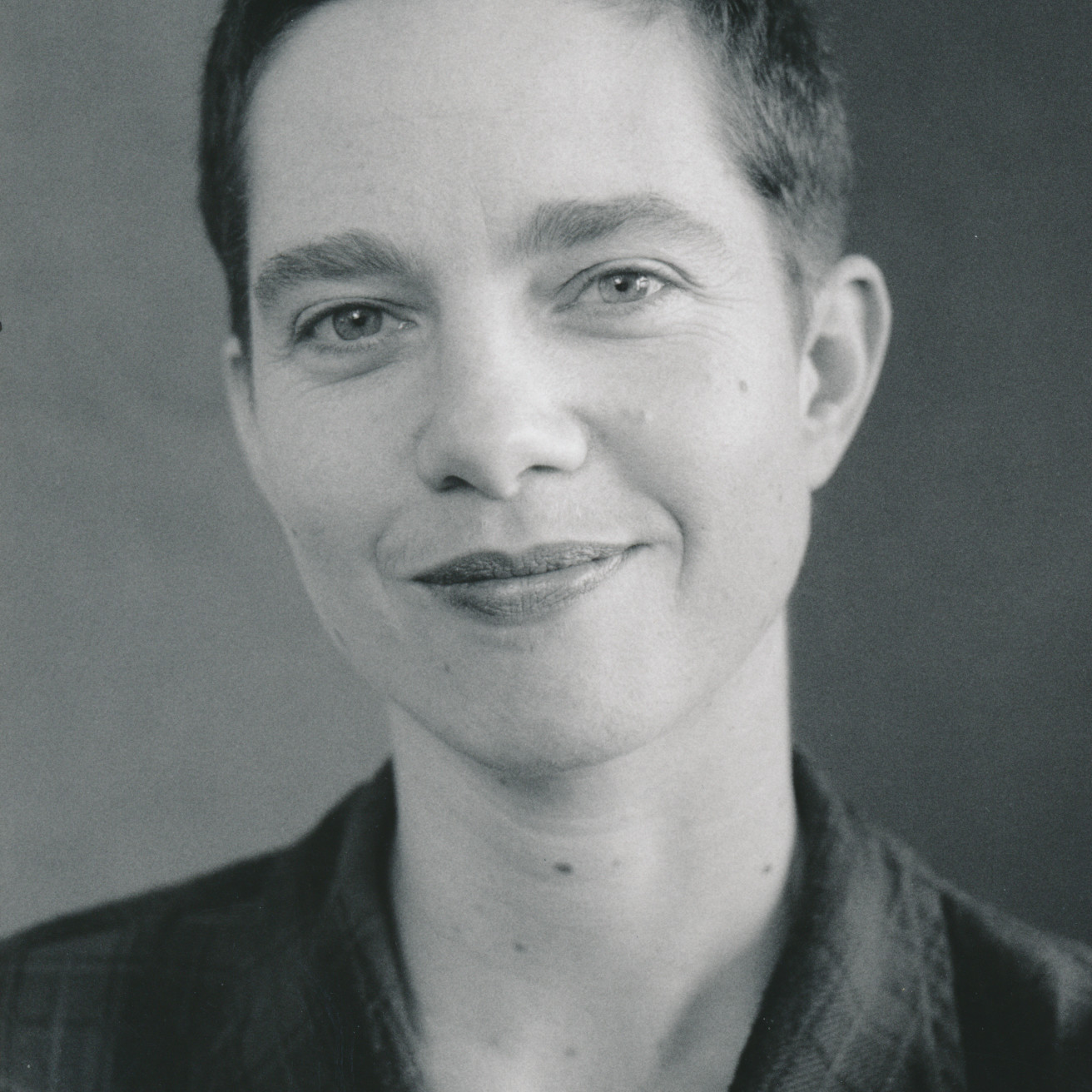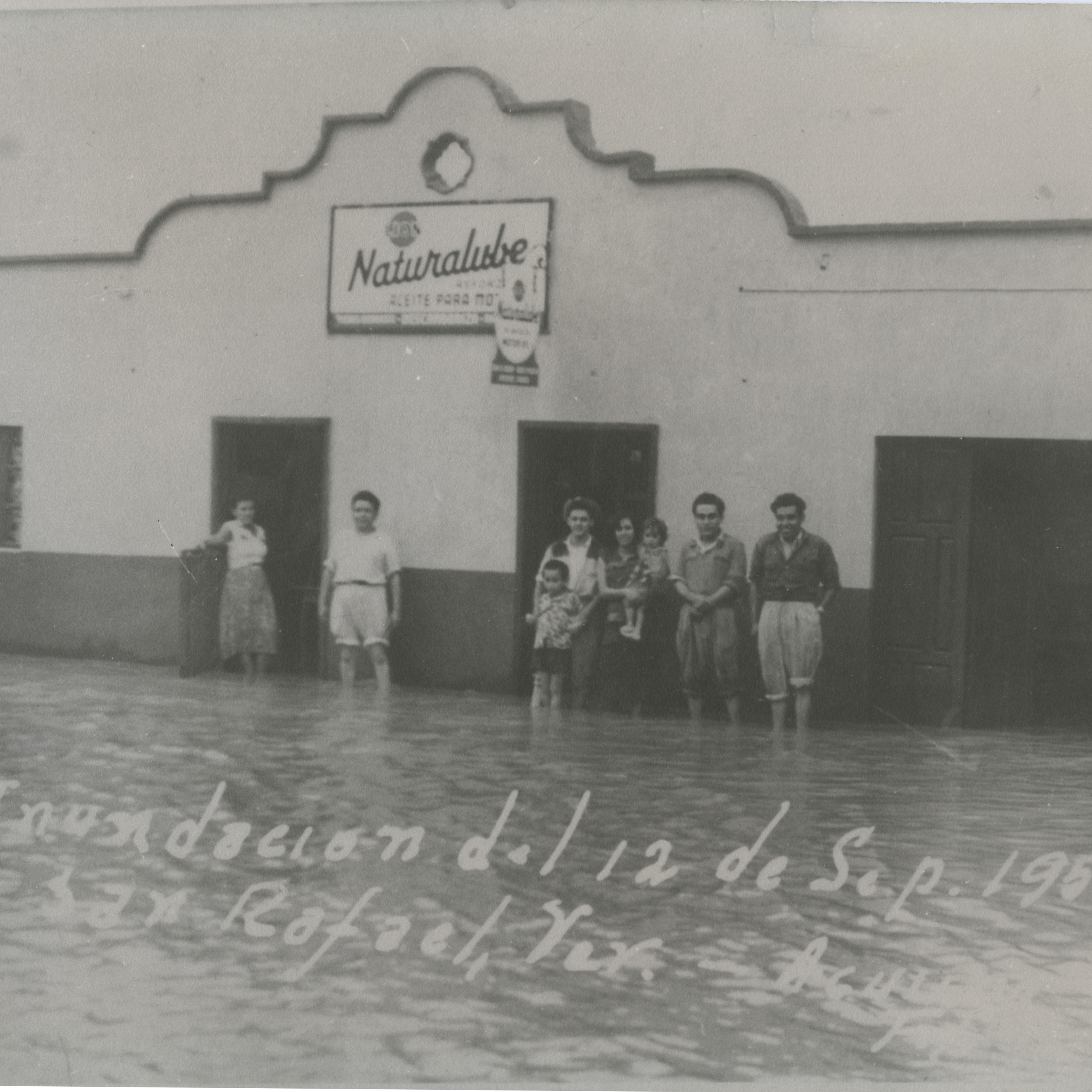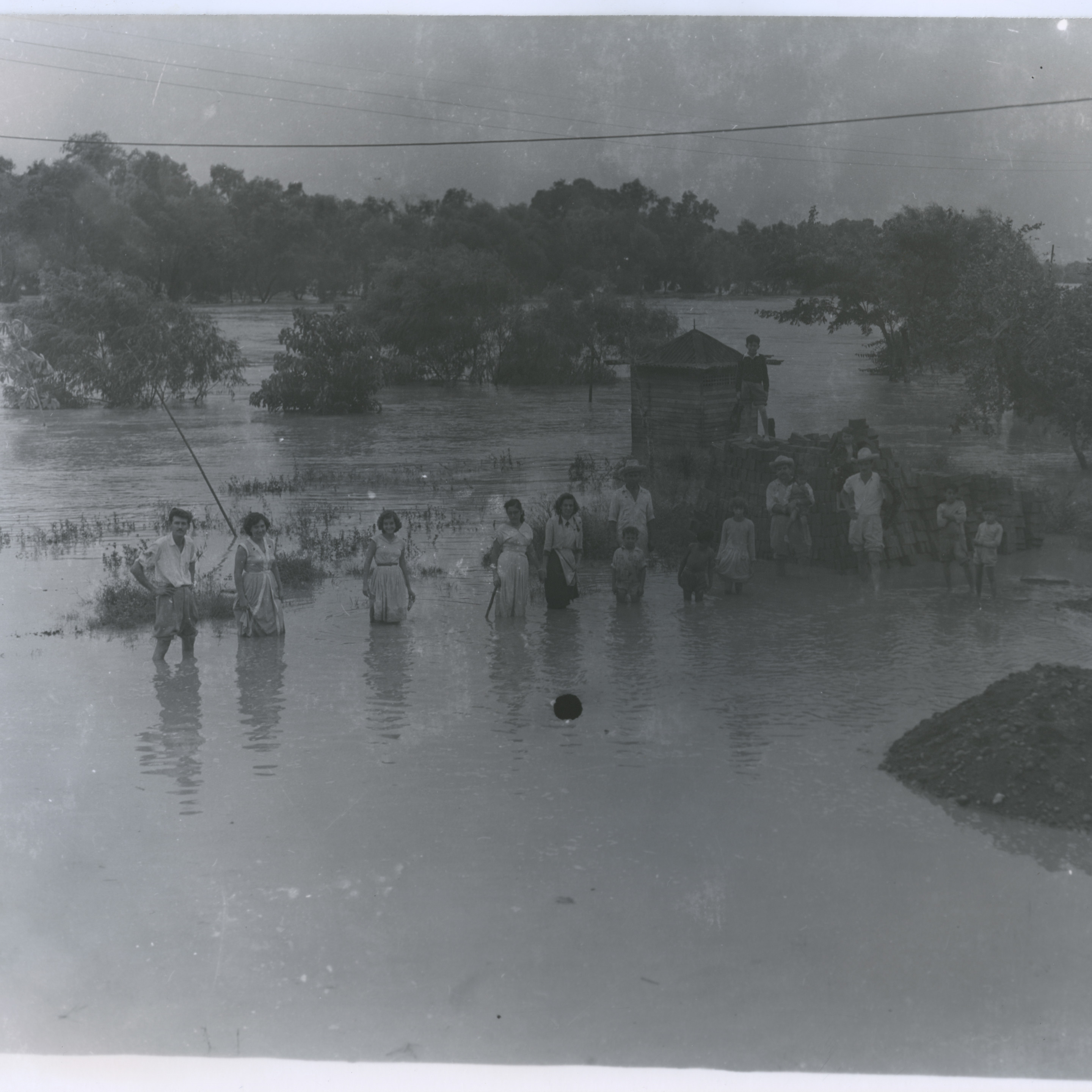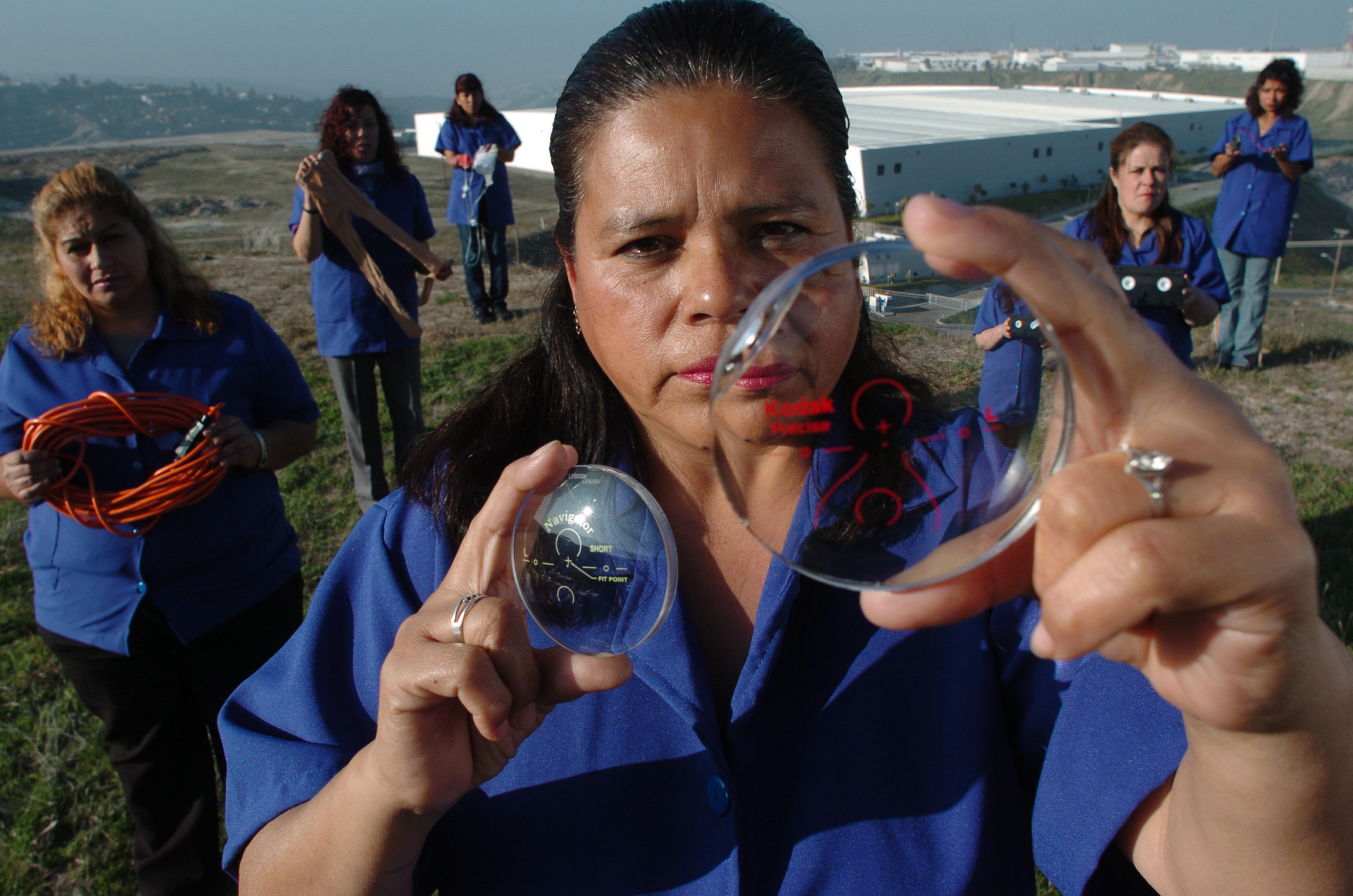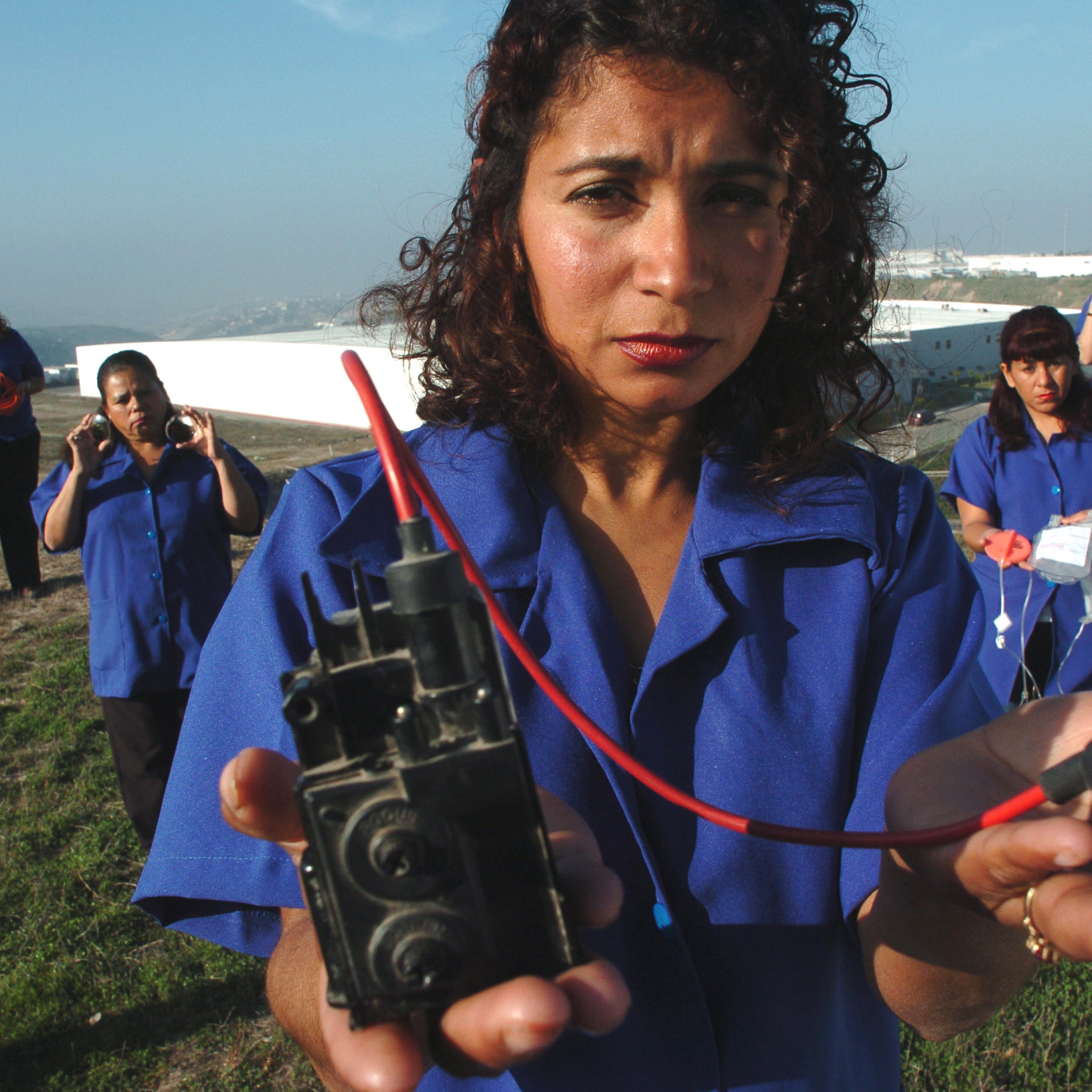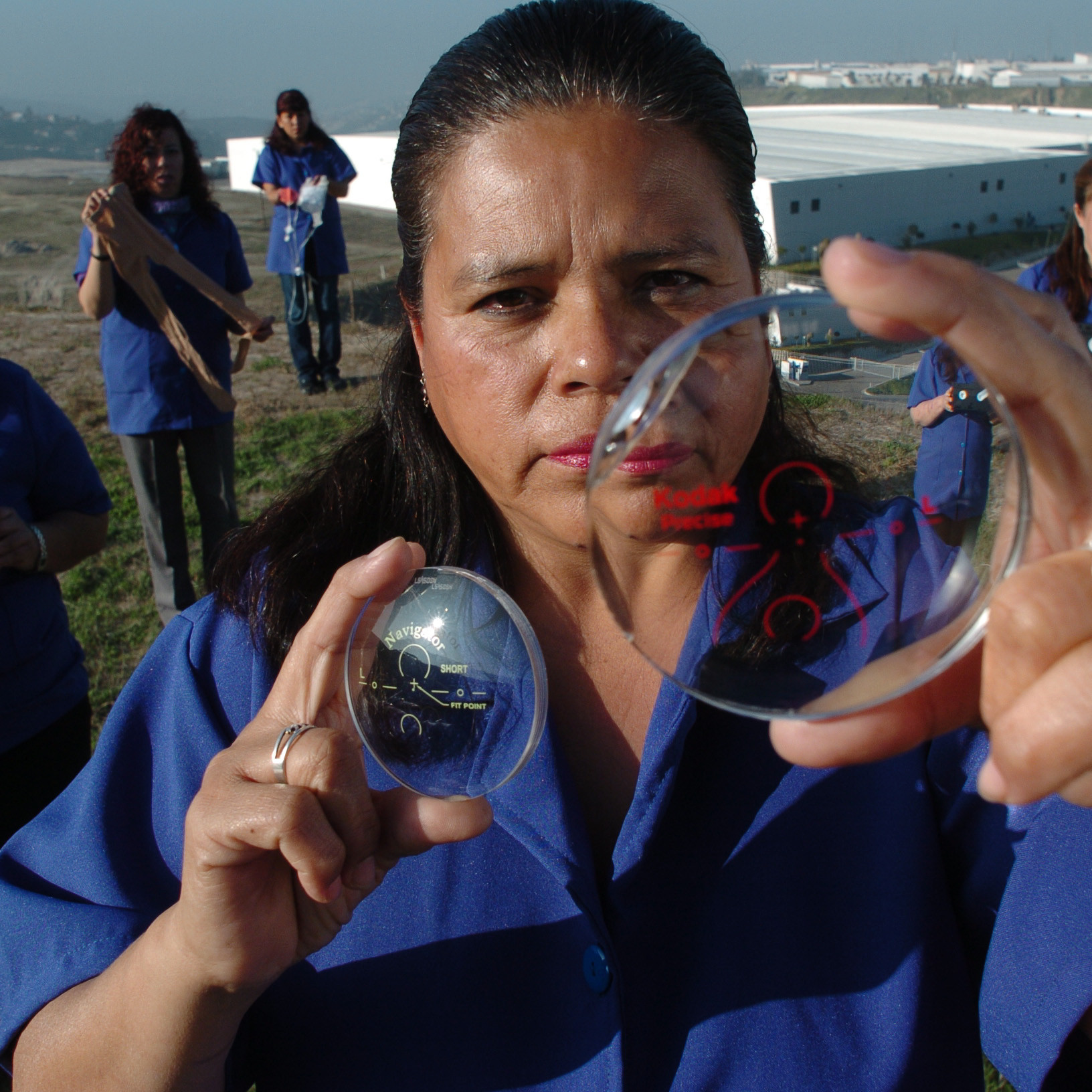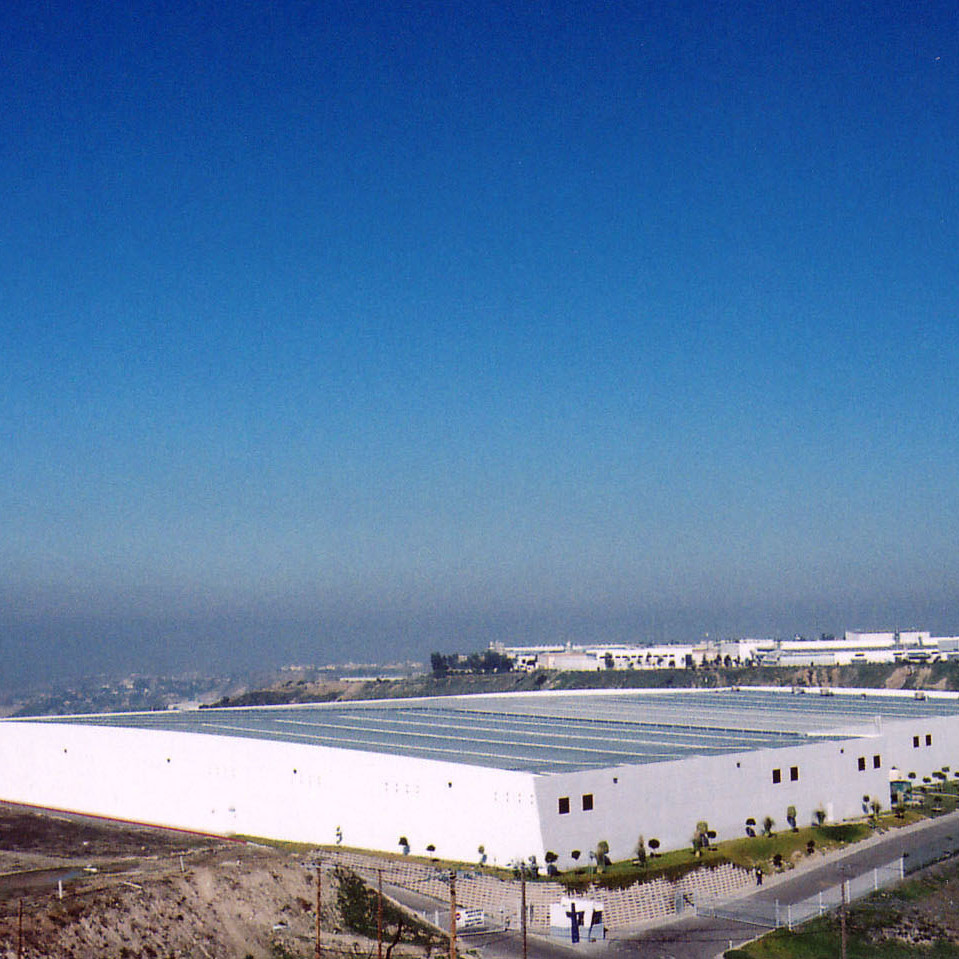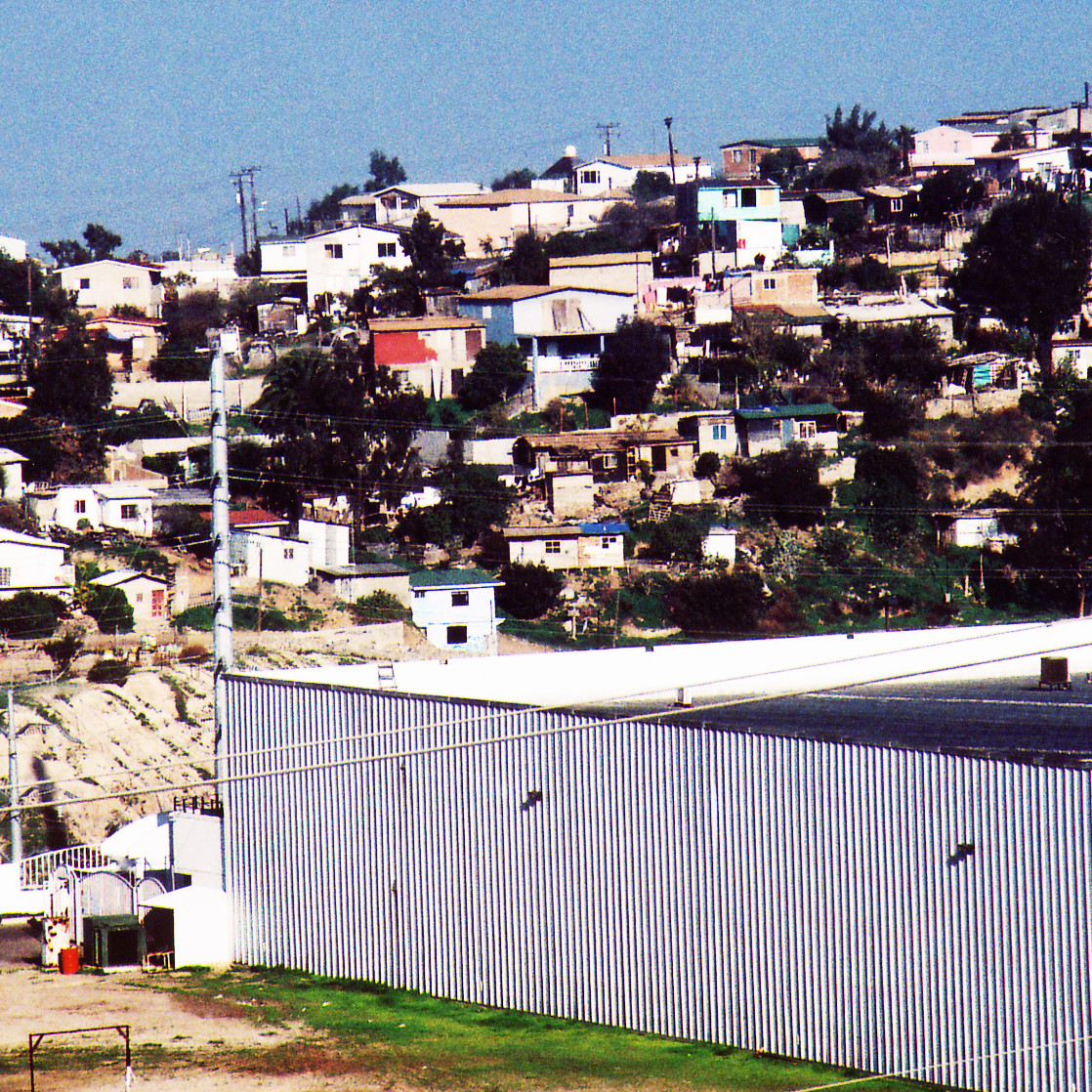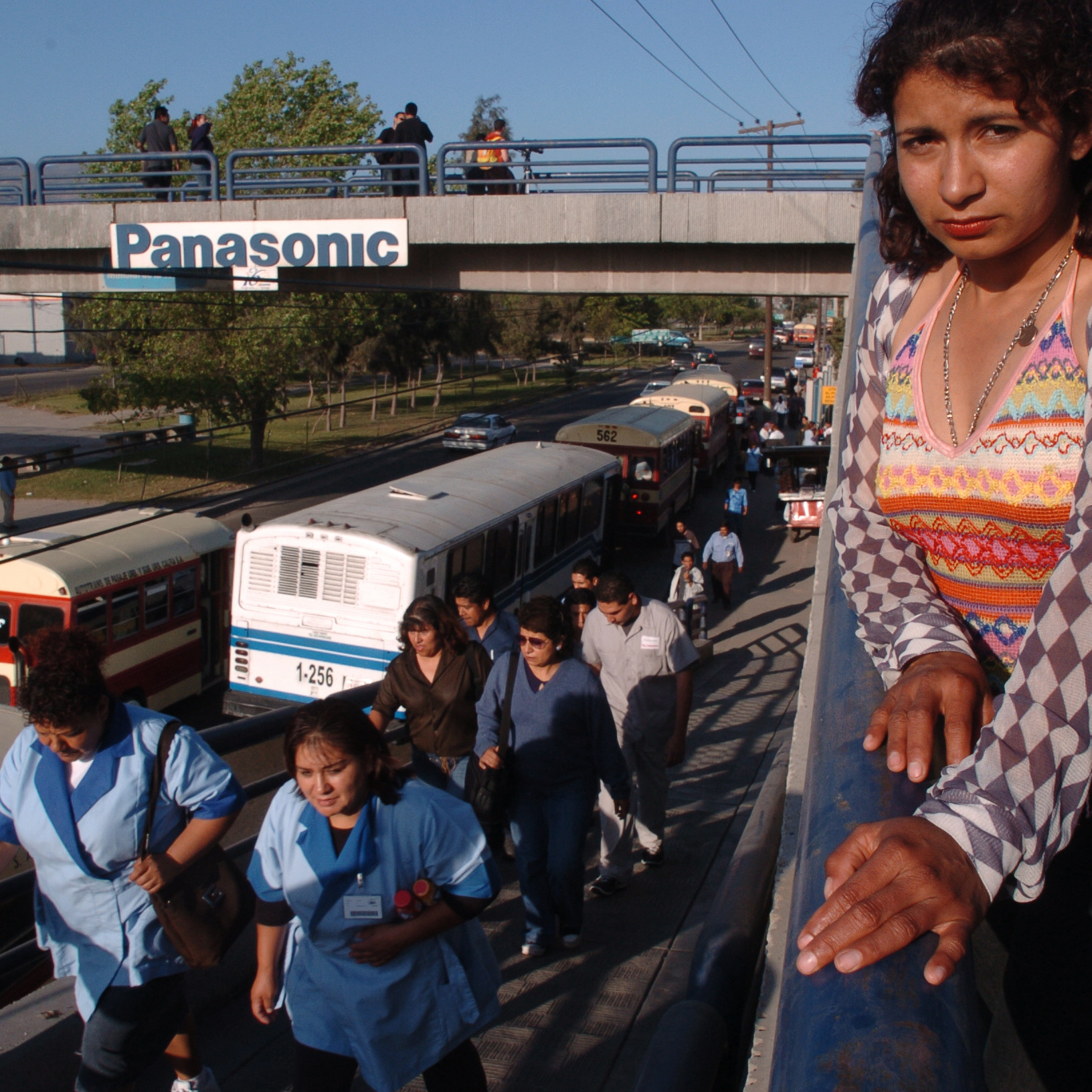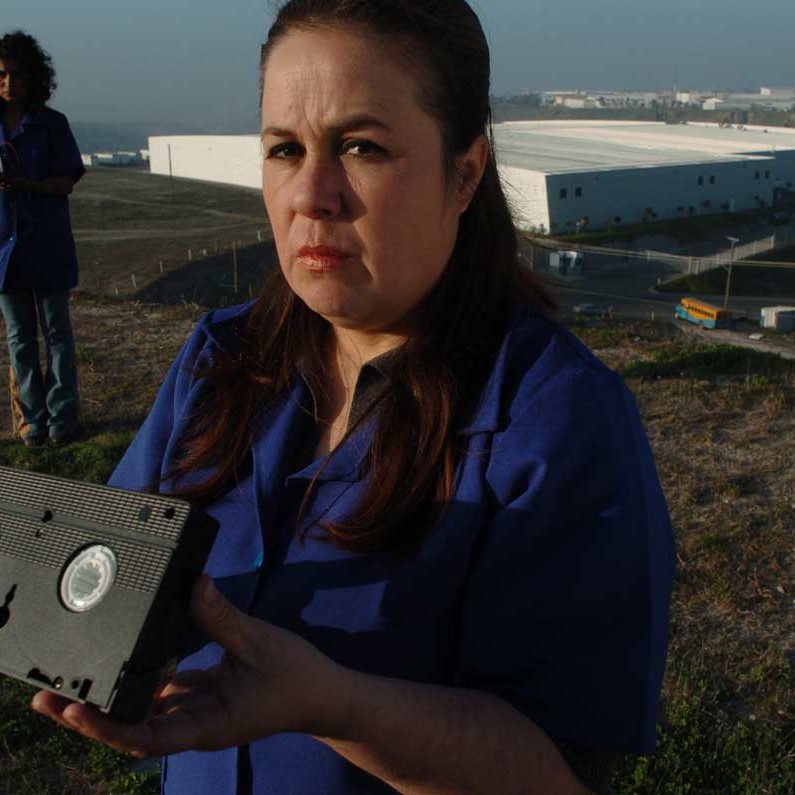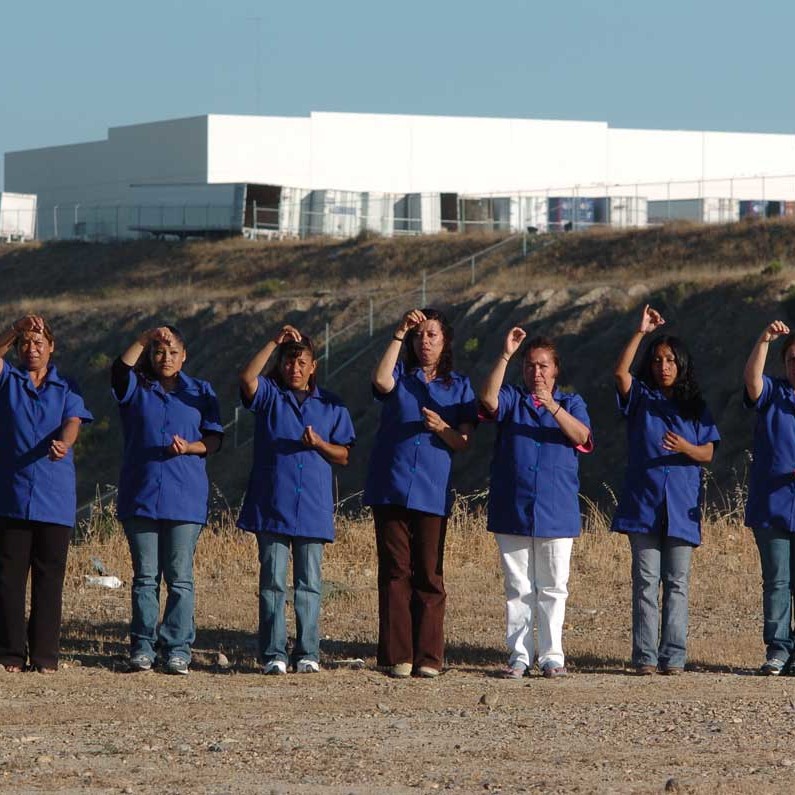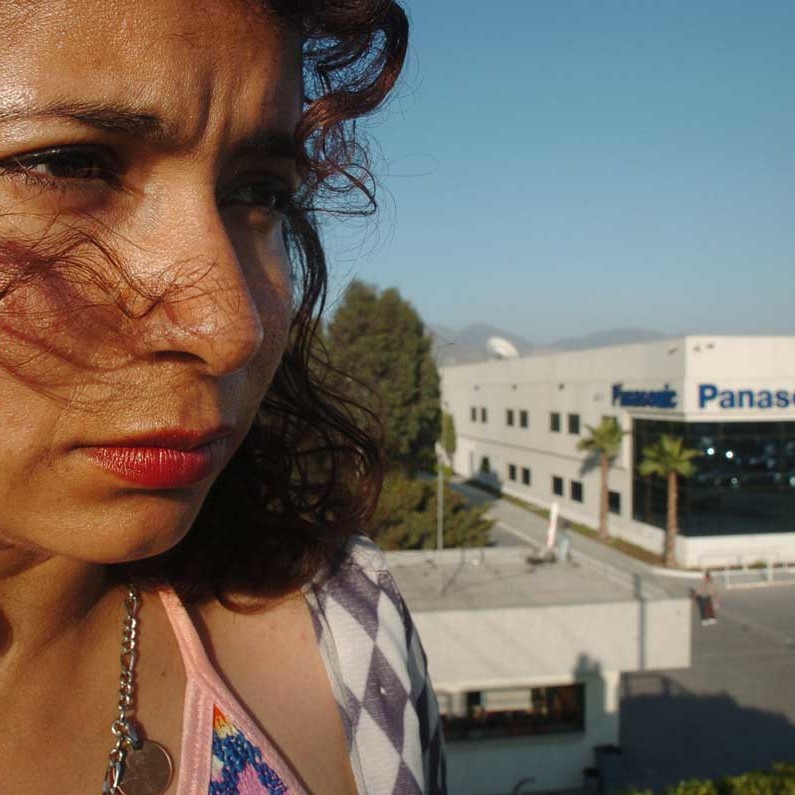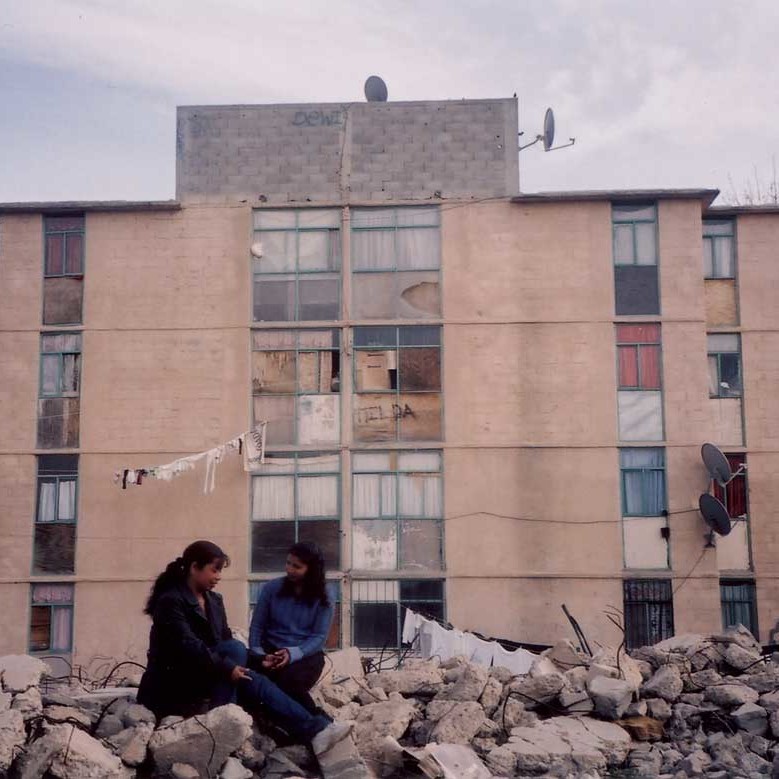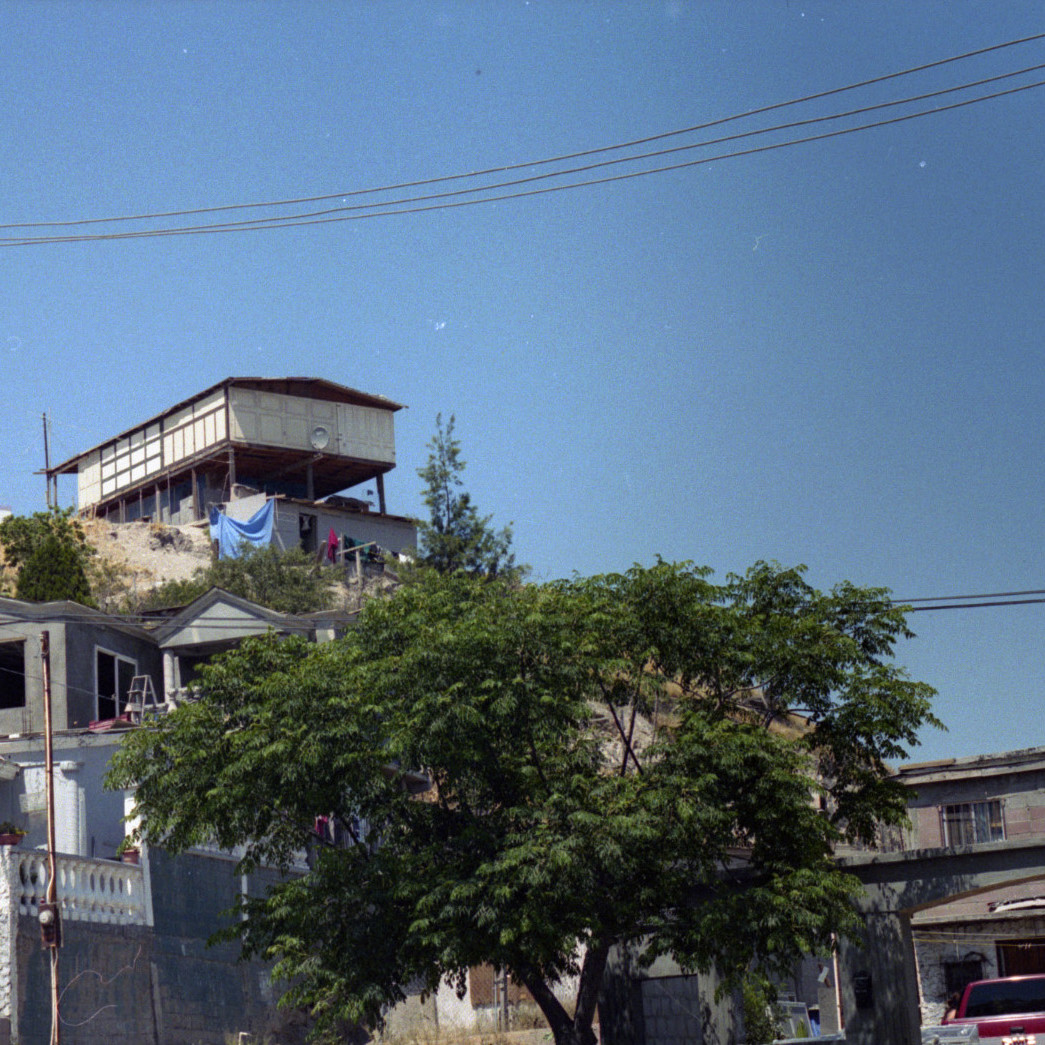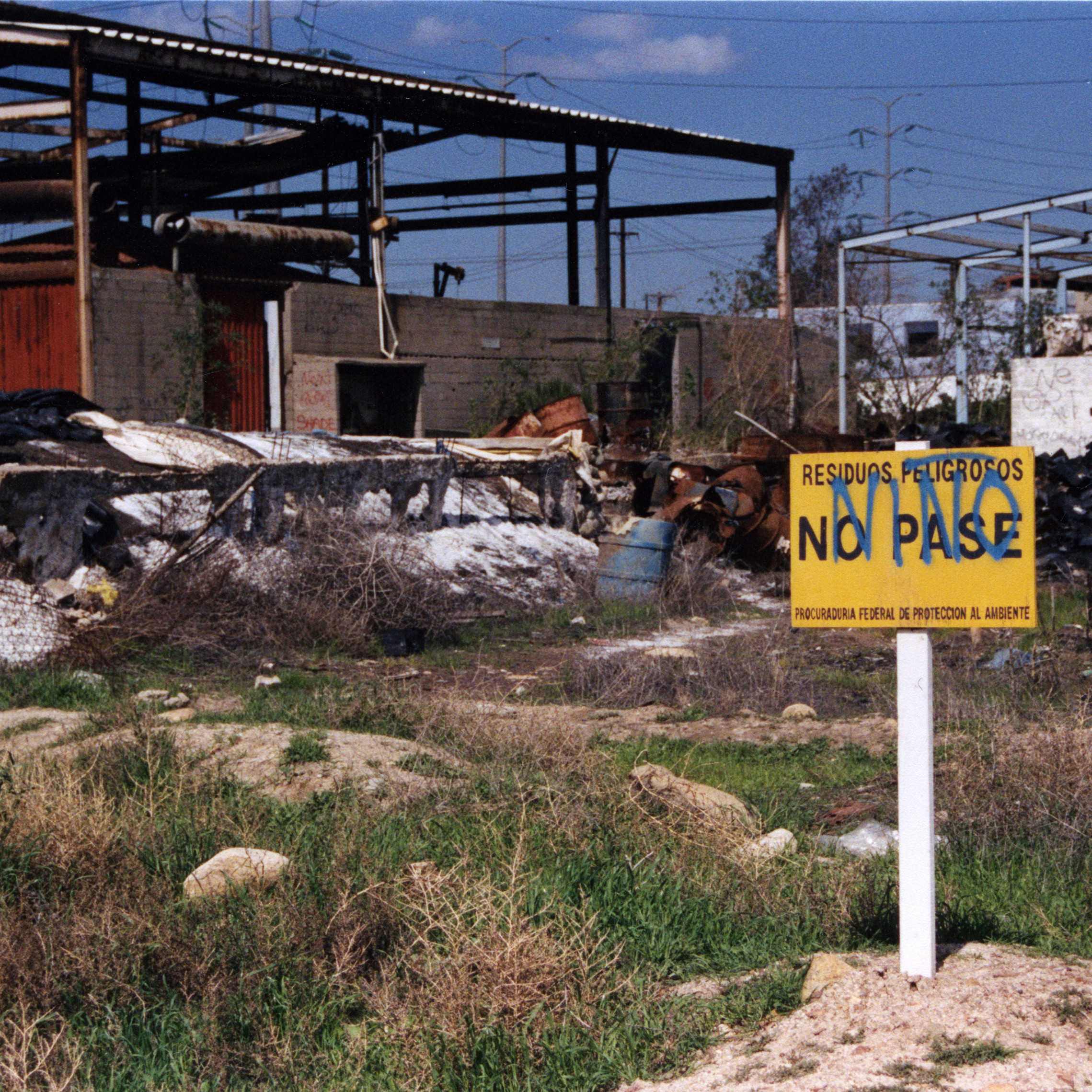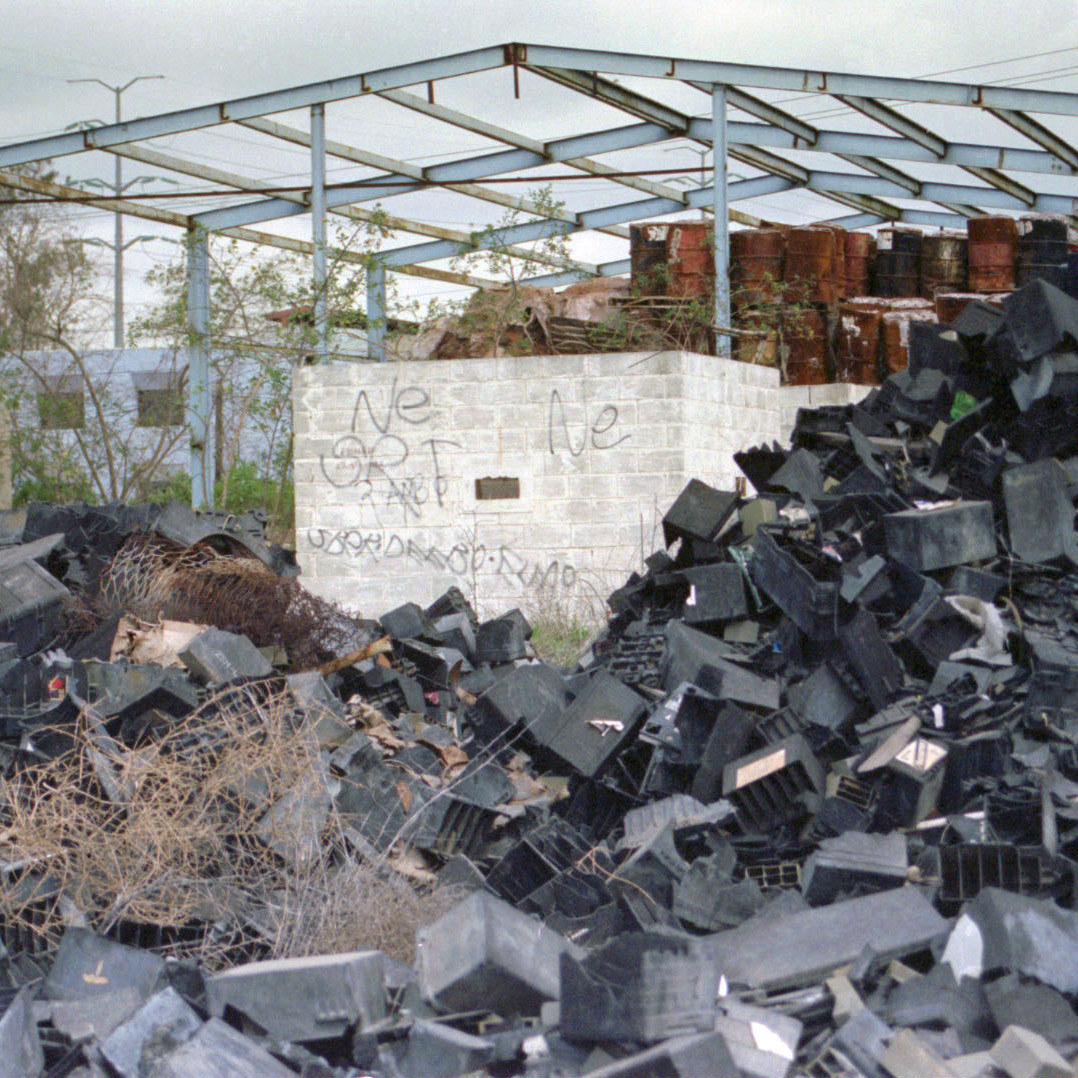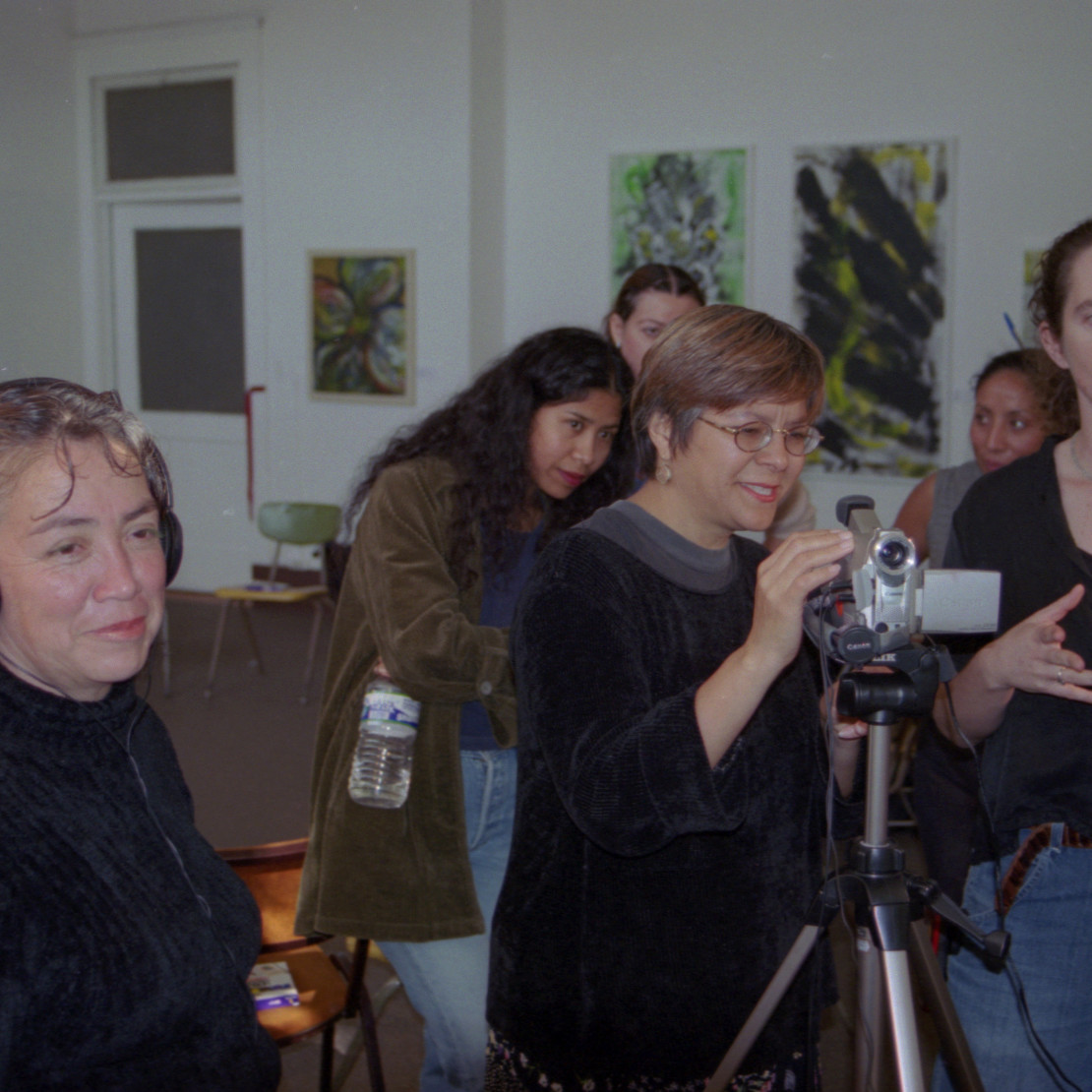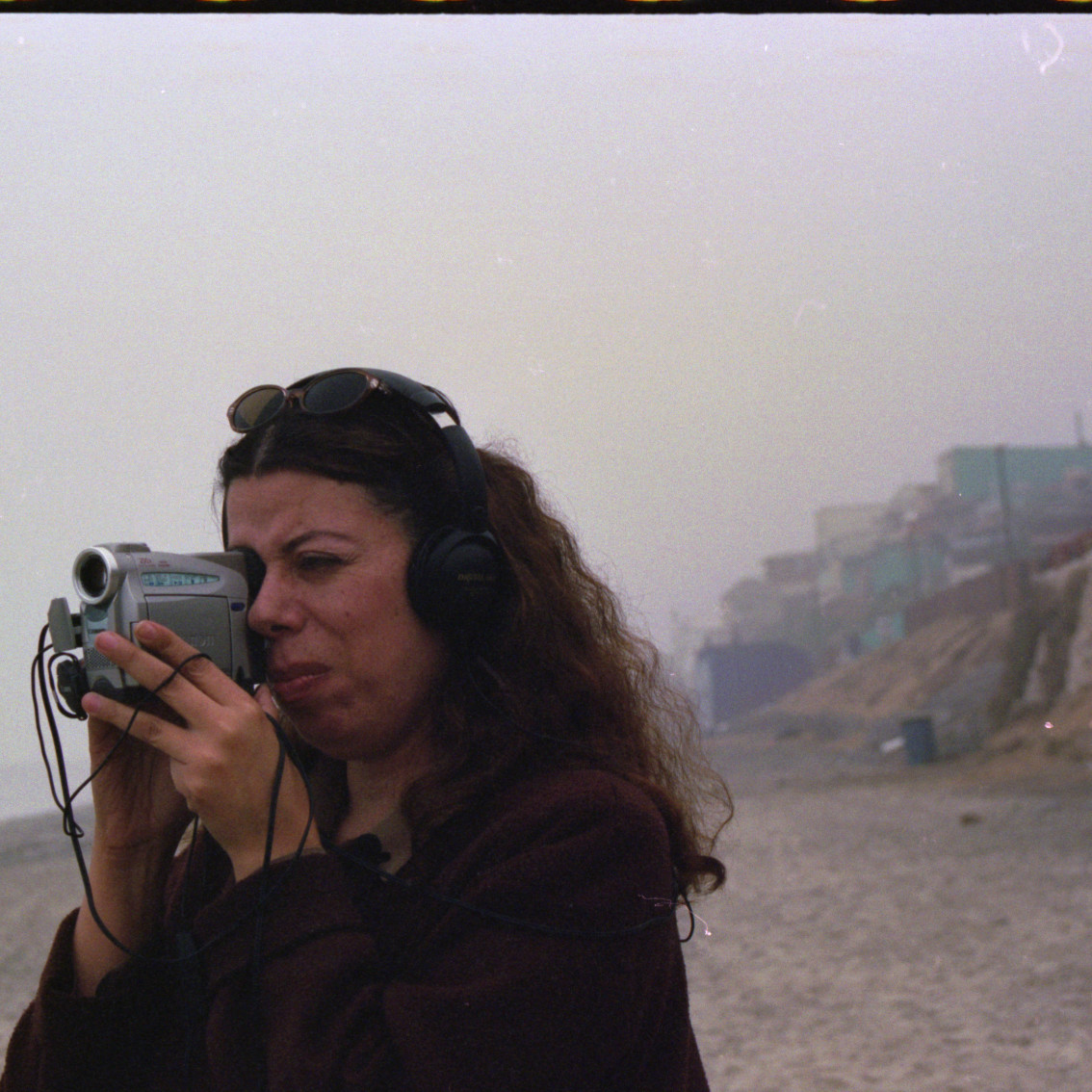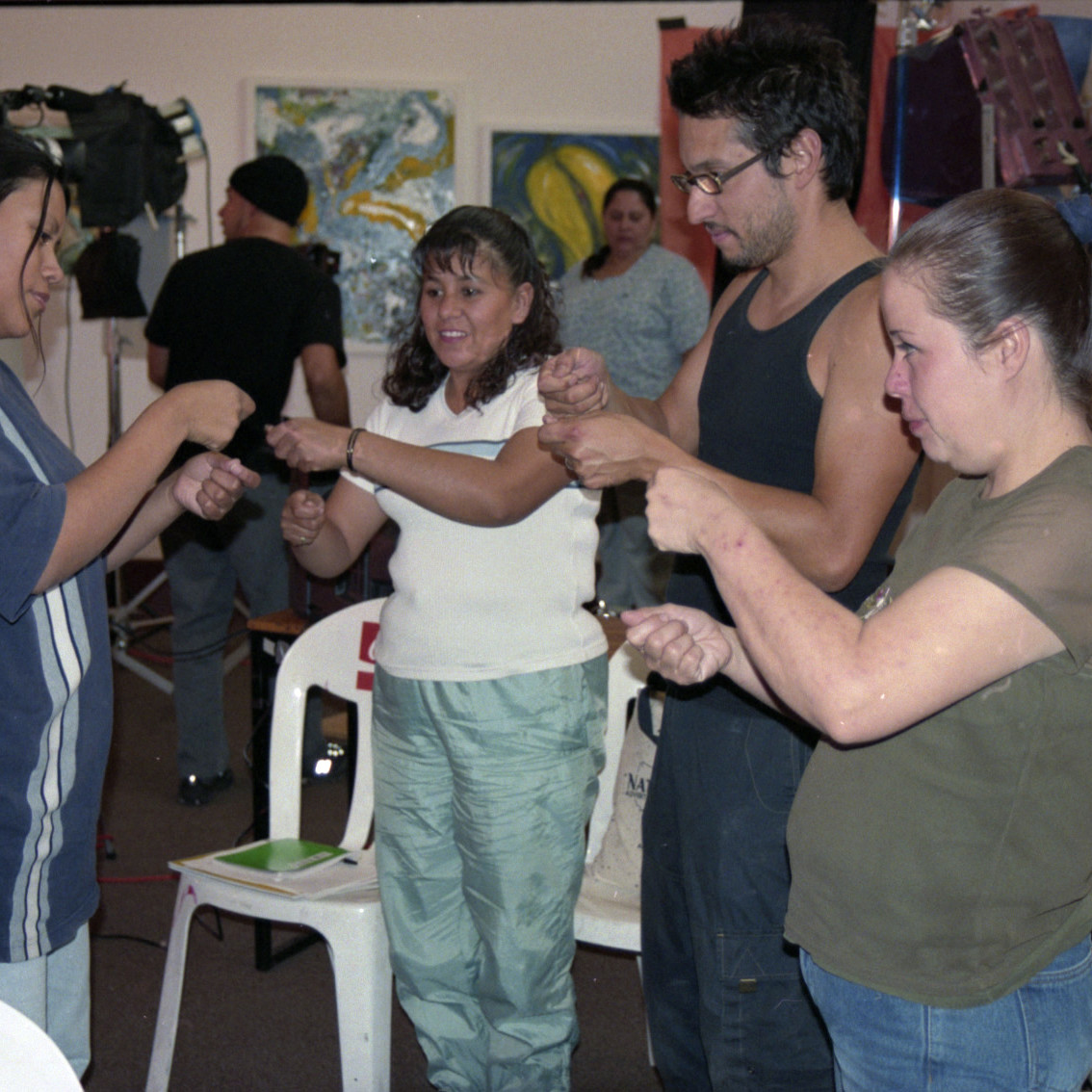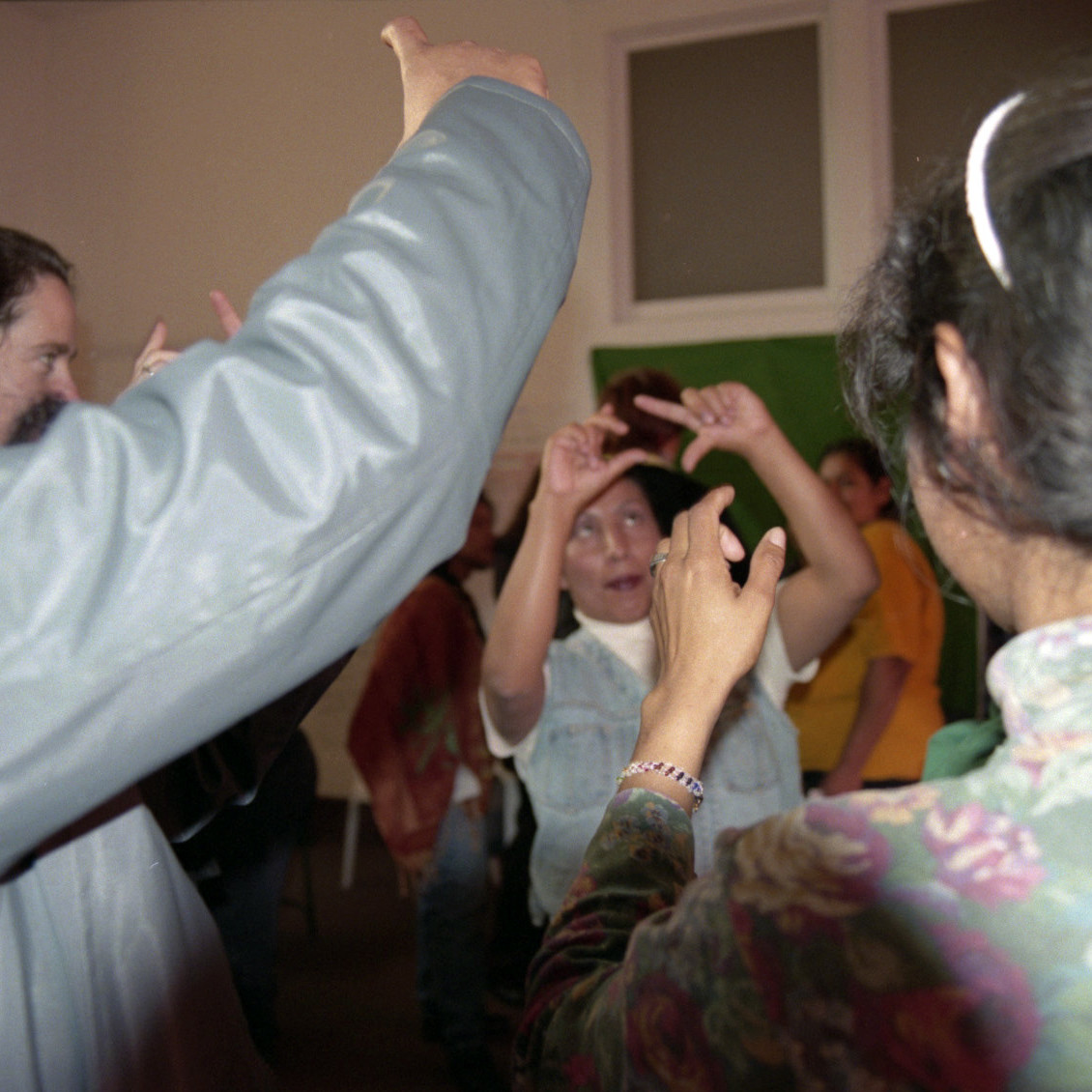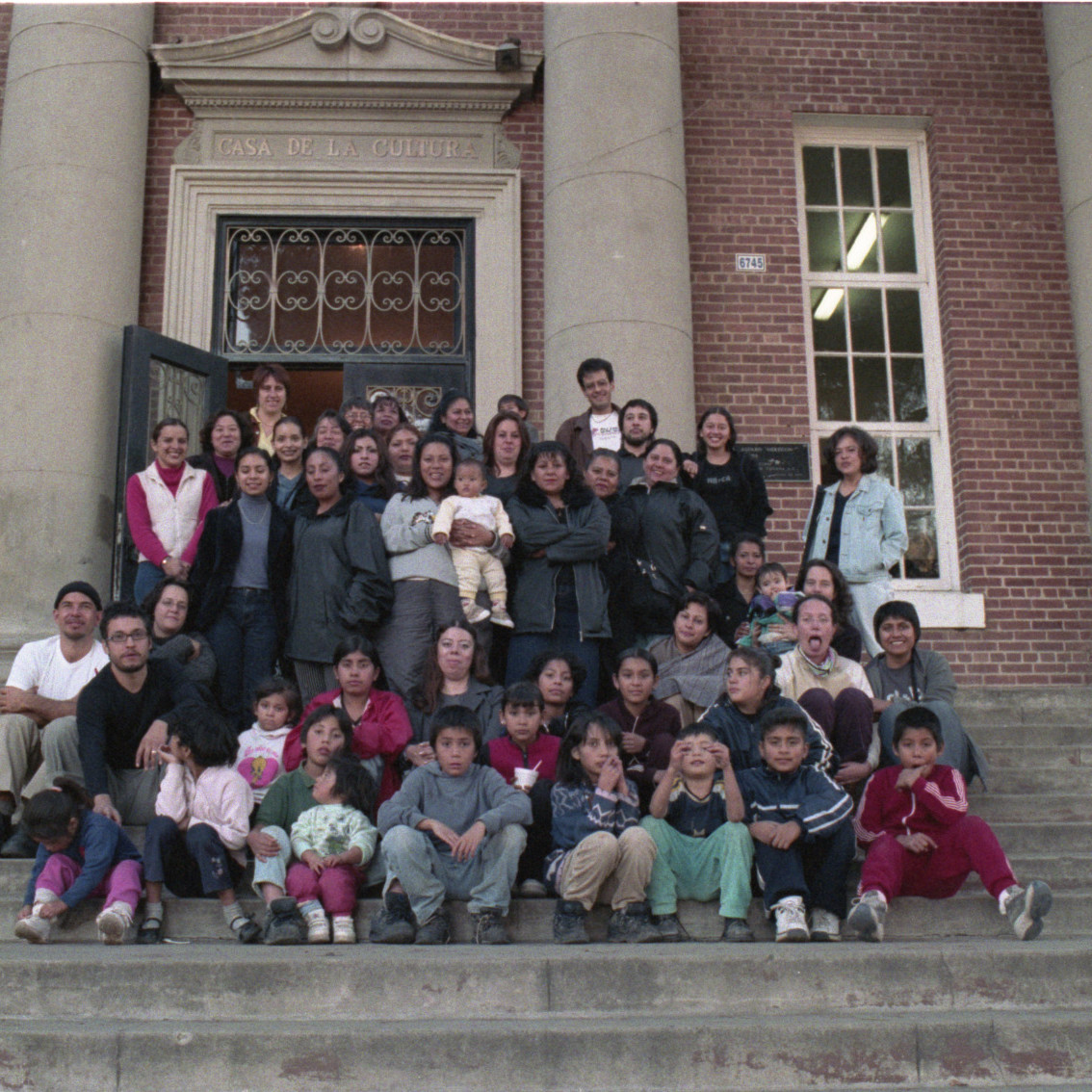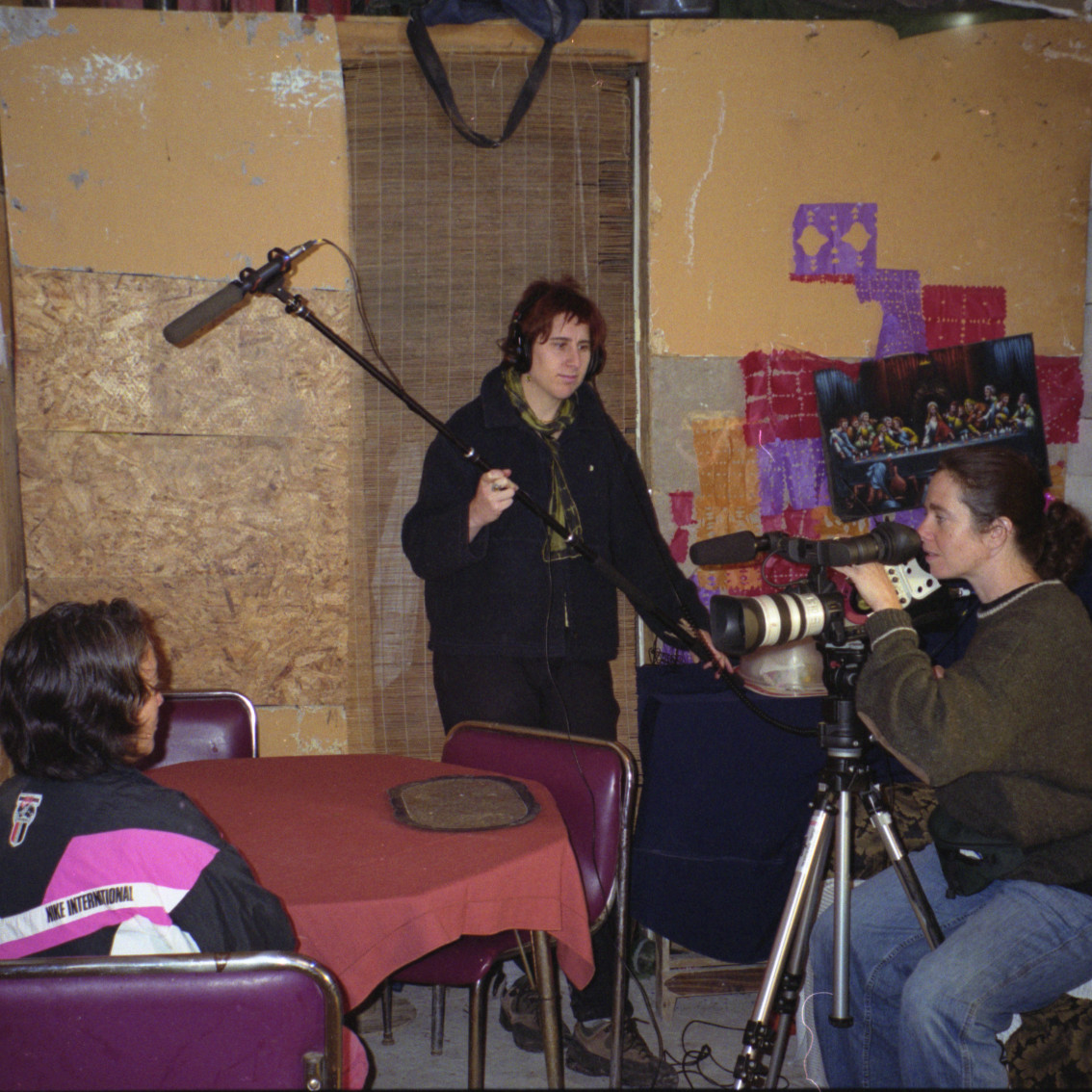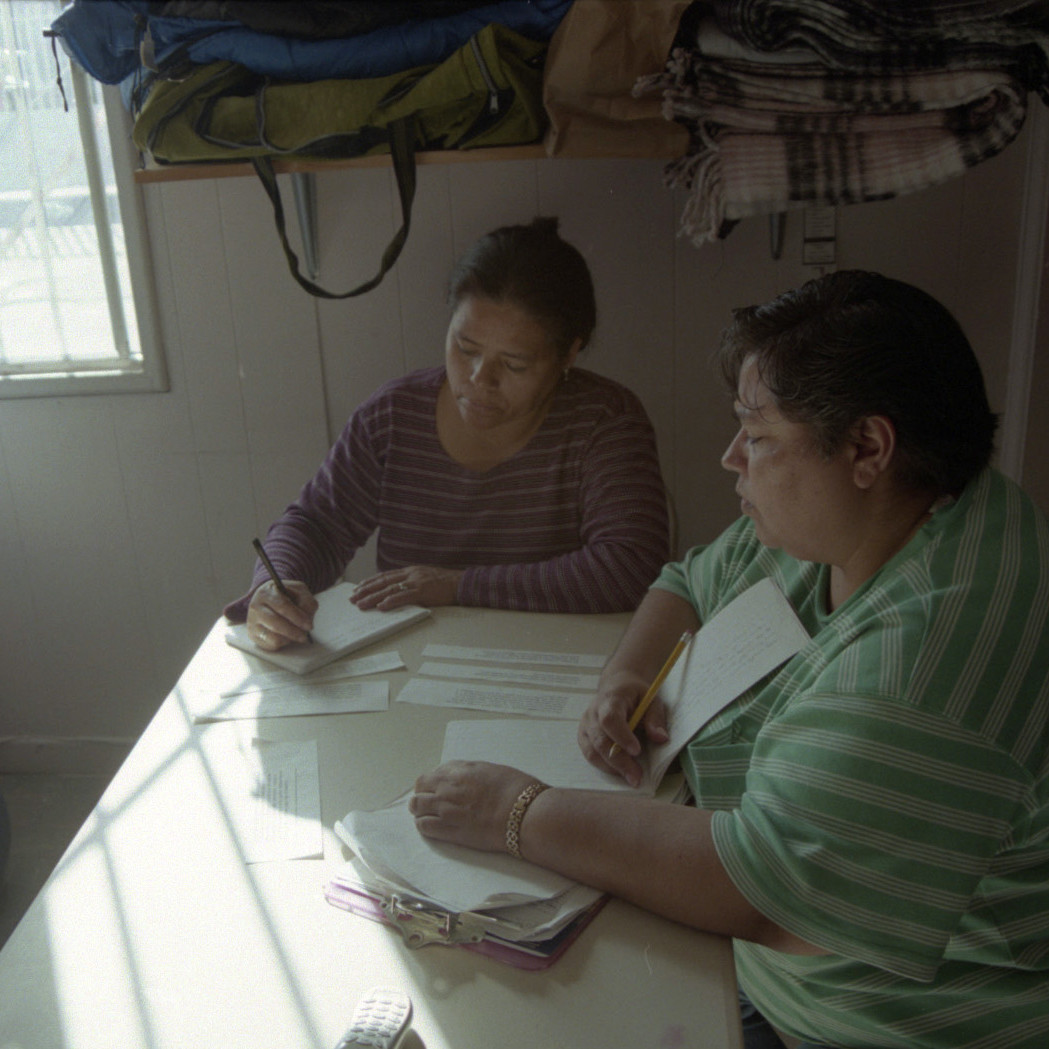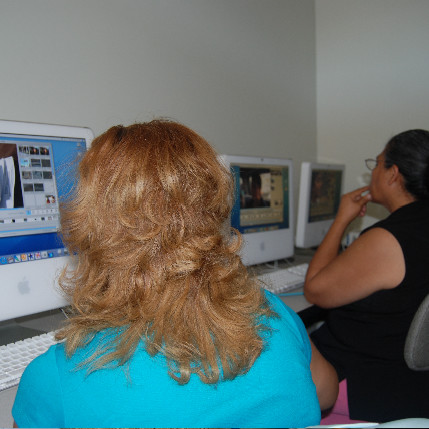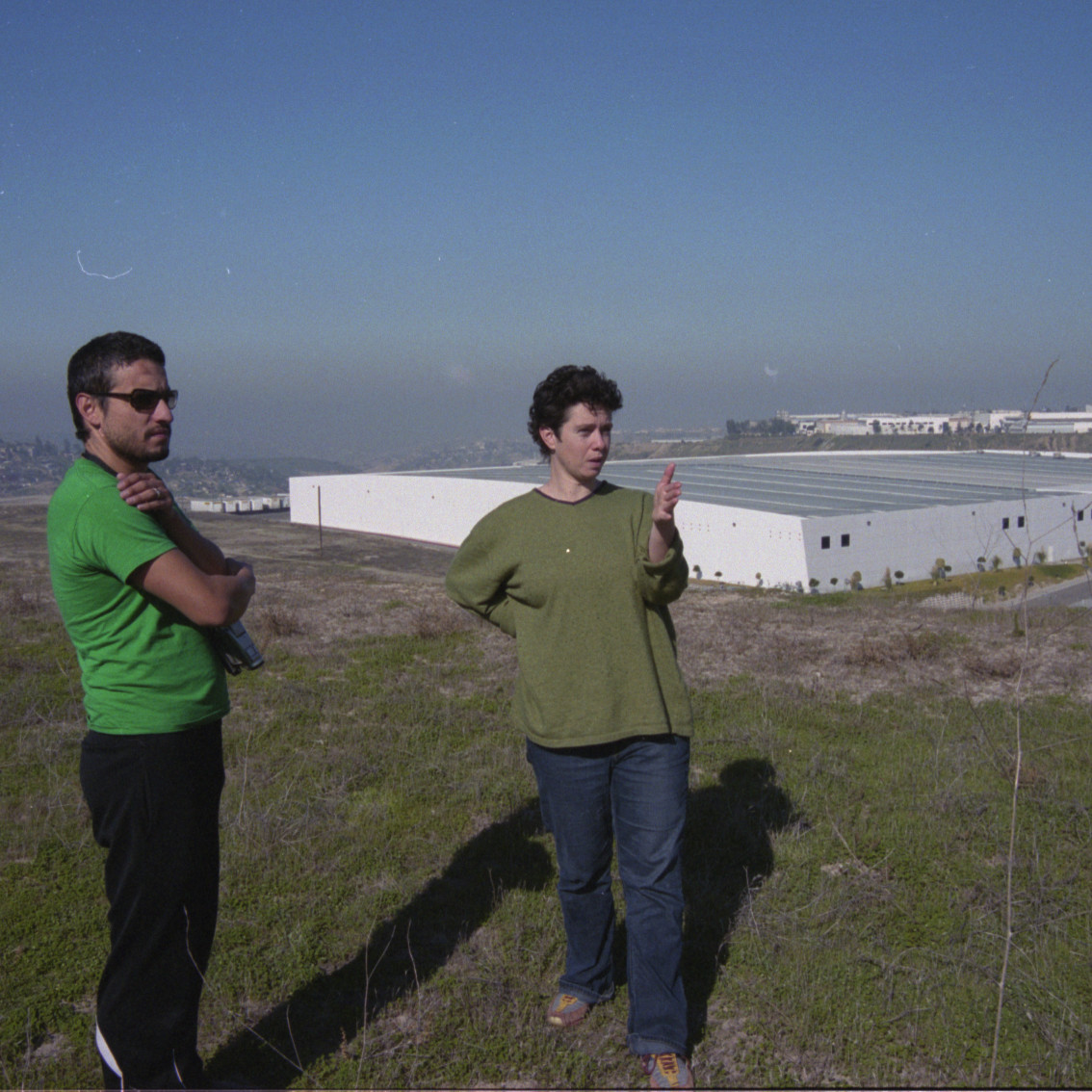Archives: Films
Alternative Conceptions
About
a documentary short by Christina Sunley and Vicky Funari
1985 / 35 minutes / color
Produced on ¾” NTSC video, available as digital file or streaming
“The lesbian baby boom has broadened the definition of the ‘nuclear’ family… Alternative Conceptions looks at a single parent and a couple at the forefront of this reproductive revolution.” – San Francisco Bay Guardian
Synopsis
Alternative Conceptions was filmed in the early 1980’s, when open lesbian and gay parenting was a pioneering social phenomenon. At the time, artificial insemination and sperm banks were offering new hope to infertile heterosexual couples, and lesbians seeking to become parents seized upon this new opportunity. This highly informative film confronts and clarifies the controversy that at the time surrounded donor insemination for lesbians. April and Susan, a New York City couple, are mothers to two children conceived through anonymous donor insemination. Mary, owner of a Long Island lesbian bar, conceived her child with sperm from a gay male friend. Through the choices and experiences of two lesbian families and the perspectives of medical, legal and social services professionals, Alternative Conceptions documents a historic moment in the evolution of gay and non-traditional families. The out-of-the-ordinary physical arrangements, the legal entanglements, and the down-the-road dilemma of children coping with their parentage are key issues of lesbian parenthood candidly addressed in this film.
Filmed during the first years of the AIDS crisis, the film is made all the more poignant in consideration of the subsequent social and political transformations engendered by that crisis, as well as by the great strides towards equality for gay families taken in ensuing decades.
Filmmakers’ Statement
When we made this film, the phrase “lesbian mother” seemed to many like a contradiction in terms – perhaps almost as much to us, as young queer filmmakers, as to the mainstream world. But to the pioneering lesbians across the U.S. who were choosing motherhood through donor insemination, the phrase described a natural and important part of their lives. With Alternative Conceptions, we wanted to explore a choice that we imagined we would face down the road: to parent or not, if so how, and what would it mean for us as members of the LGBT community?
Two major historic processes cast a new light on our now 30-plus-year-old documentary: First, given the stigma that gay parents faced at the time, we could barely imagine that within our own lifetimes gay marriage would be legalized and gay families would begin to be accepted into the mainstream of American life. The women in our film seem even more heroic to us now than they did in 1984, when they shared their lives with us, because they paved the way for these changes.
Second, as we were making the film, the AIDS crisis was beginning its deadly sweep over the gay community. It changed everything: the atmosphere of infinite possibility that had pervaded our coming-out years was replaced by a struggle to survive and by a new solidarity between gay men and lesbians. The epidemic made the health information in our film outdated. Because of this, we withdrew the film from circulation: since it was made just as the cause of AIDS was being identified, the film had not been able to answer health questions surrounding the use of sperm from potentially HIV-positive donors. It took some years for those answers to become clear. We felt it was irresponsible to have a film out in the world that did not address such a major question about donor insemination for queer families.
See the Film
Alternative Conceptions is currently not in distribution. Please contact Producer Vicky Funari directly for information on how to see the film.
Team
Key Credits
Producers: Christina Sunley & Vicky Funari
Director & Editor: Christina Sunley
Camera & Production Manager: Vicky Funari
Musical Score: Andy Therber
Bios
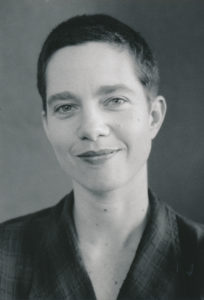 Vicky Funari, Producer/Camera/Production Manager: Vicky Funari is a documentary filmmaker, editor, and teacher. She produced, directed, and edited the documentaries Maquilápolis [city of factories] (2006) and Paulina (1998), co-directed and edited Live Nude Girls Unite! (2000), and produced, directed, and edited the experimental short skin•es•the•si•a (1994). Her films have screened at many prominent festivals, including Sundance, Locarno, Rotterdam, and Tribeca. Awards include San Francisco International’s Grand Jury and Audience Awards; broadcasts include PBS, HBO/Cinemax, and the Sundance Channel. Funari is a Guggenheim Fellow and a MacDowell Colony Fellow. She is a Visiting Senior Lecturer in Visual Studies at Haverford College, where she teaches filmmaking and helped design the college’s new Visual Studies Minor. Other work includes editing Julie Wyman’s documentary Strong! (2012), programming the Strange Truth film series (2009-2017), producing the collaborative web documentary Troubled Waters: Tracing Waste in the Delaware River (2014), and directing Haverford’s Tuttle Summer Arts Lab (2016). She is currently in post-production on Pool Movie (working title), about aquacize and healthy aging.
Vicky Funari, Producer/Camera/Production Manager: Vicky Funari is a documentary filmmaker, editor, and teacher. She produced, directed, and edited the documentaries Maquilápolis [city of factories] (2006) and Paulina (1998), co-directed and edited Live Nude Girls Unite! (2000), and produced, directed, and edited the experimental short skin•es•the•si•a (1994). Her films have screened at many prominent festivals, including Sundance, Locarno, Rotterdam, and Tribeca. Awards include San Francisco International’s Grand Jury and Audience Awards; broadcasts include PBS, HBO/Cinemax, and the Sundance Channel. Funari is a Guggenheim Fellow and a MacDowell Colony Fellow. She is a Visiting Senior Lecturer in Visual Studies at Haverford College, where she teaches filmmaking and helped design the college’s new Visual Studies Minor. Other work includes editing Julie Wyman’s documentary Strong! (2012), programming the Strange Truth film series (2009-2017), producing the collaborative web documentary Troubled Waters: Tracing Waste in the Delaware River (2014), and directing Haverford’s Tuttle Summer Arts Lab (2016). She is currently in post-production on Pool Movie (working title), about aquacize and healthy aging.
 Christina Sunley, Producer/Director/Editor: Christina Sunley was born in New York City, raised on Long Island, and has lived for many years in the San Francisco Bay Area. She attended Wesleyan University, got her BFA in Film from New York University, and received her Masters in English/Creative Writing from San Francisco State University. After early work in filmmaking, including producing and directing the documentary Alternative Conceptions, she transitioned to a career as a fiction writer and a development director in the non-profit sector. Sunley’s short fiction has appeared in a variety of literary journals. Her first novel, The Tricking of Freya, published in 2009 by St. Martin’s Press, was a San Francisco Chronicle Bestseller. Booklist called it “astonishingly accomplished… a bewitching tale of volcanic emotions, cultural inheritance, family sorrows, mental illness, and life-altering discoveries.” https://www.christinasunley.com/
Christina Sunley, Producer/Director/Editor: Christina Sunley was born in New York City, raised on Long Island, and has lived for many years in the San Francisco Bay Area. She attended Wesleyan University, got her BFA in Film from New York University, and received her Masters in English/Creative Writing from San Francisco State University. After early work in filmmaking, including producing and directing the documentary Alternative Conceptions, she transitioned to a career as a fiction writer and a development director in the non-profit sector. Sunley’s short fiction has appeared in a variety of literary journals. Her first novel, The Tricking of Freya, published in 2009 by St. Martin’s Press, was a San Francisco Chronicle Bestseller. Booklist called it “astonishingly accomplished… a bewitching tale of volcanic emotions, cultural inheritance, family sorrows, mental illness, and life-altering discoveries.” https://www.christinasunley.com/
Press
“Explores critical issues: Why choose alternative insemination? Should a child have the opportunity to know his or her biological father? Just how are lesbians creating new kinds of families? Watch and find out.” –San Francisco Sentinel
“An excellent springboard for discussion for classes or community groups.” –New York Native
“Thanks to advances in reproductive technology… the lesbian baby boom has broadened the definition of the ‘nuclear’ family… Alternative Conceptions looks at a single parent and a couple at the forefront of this reproductive revolution.” –San Francisco Bay Guardian
“An interesting and innovative film.” –San Francisco Bay Times
More
Selected Screenings
- Chicago Gay and Lesbian Film Festival, 1986
- San Francisco International Lesbian and Gay Film Festival, 1987
- KQED Viewpoints broadcast, 1991
Press Kit
Stills coming soon.
Pool Movie
About
A group of people find strength, grace, and community in an aquacize class at their neighborhood swimming pool. At a YMCA in the suburbs of Philadelphia, a group of primarily 60–90 year old women has spent 25 years exercising together. The film documents the class’s final year in the old pool, as the Y prepares to close the branch and transition to a shiny, new building. Over a year in the pool, creative projects flourish, illness strikes, friendships evolve, seasons change.
This is a study of older bodies and souls in water, in motion, in transition, and in community with each other. The project consists of three interwoven elements:
- a feature-length film
- a participatory website & social media elements
- a Community Engagement campaign
Shooting is complete, and the film is in post-production. The website and engagement campaign are in development, and they are being created through a collaborative, community-based process.
See The Film
Team
Key Credits
Project Producer & Director
Vicky Funari
Associate Producer & Web Producer
Hilary Brashear
Editors
Vicky Funari
Hilary Brashear
Executive Producer
Vivian Kleiman
Funding & Support

More Credits
Pool Teacher, Community Leader
Sherry Witman
Community Development Director
Jesikah Maria Ross
Web Strategist
Darcy McKinnon
Web Designer
Becca Refford
Color Correction, Web Videos
Brandon Watz
Sound Recordists
Hilary Brashear
Jon Appel
Production Assistants / Transcribers
Natasha Cohen-Carroll
Alexandra Colon
Caileigh Feldman
Larry Miller
Milap Dixit
Graphic Design
Hilary Brashear
Barbara Oplinger
Stills Photographers
Holden Blanco
Caleb Eckert
Brad Larrison
John Muse
Pool People
Sally Allen
Joan Bromley
Lauretta Bushar
Dottie Colzie
Marlene Elkins Kapolka
Maureen Glassman
Libby Goodman
Freddie Grimes
Shellie Herdan
Anne Holsclaw
Shellie Herdan
Anne Holsclaw
Anne Iskrant
Mary Jo King
Rachel Levin
Gail Loeb
Lorraine Lopresto
Mary Lou Lukens
Michael Mason
Jeannine Mermet
Martha Noumoff
Patricia O’Halloran
Lee Ocko
Sara Pilling
Ruth Pulwer
Sheila Quinlan
Anna Reed
Mary Francis Reilly
Samuel Rosen
Gerri Rothman
Lisa Pauciello Rowe
Jeanne Ryan
Ben Schranze
Lenette Schranze
Ella Singer
Carolann Straubinger
Denise West
Mary Ziller
Press
Coming soon.
More
More coming soon.
Press Kit
skin•es•the•si•a
About
skin•es•the•si•a
by Vicky Funari
1994 / 18 minutes
Produced on Hi8 and BetaSP NTSC / Available as DVD, digital file or streaming
“A striking and original feminist work… Funari makes her points about pornography, performance and sexuality in an admirably unpretentious style.” –Paul Bollwinkel, Bay Area Reporter
Synopsis
How does a woman’s body move? skin•es•the•si•a scrambles the cultural codes of female movement by juxtaposing images from the work of performance artist Hannah Sim with images of Sim working as a nude dancer in a peep show. It explores the rapport between one woman’s body and two performance environments. How are women perceived and typed through our own physical movements? What might a response of power to these codes and norms look like? What do we discover by embracing our otherness, by transforming it into a means of confronting the world?
See the Film
In Canada, please contact V Tape.
In the United States, please contact Producer/Director Vicky Funari directly for information on how to preview and purchase the film.
Team
Key Credits
Producer / Director / Camera / Editor: Vicky Funari
Co-producer / Editing Consultant: Heidi Jane Rahlmann
Performer: Hannah Sim
Choreography: Osseus Labyrint & Hannah Sim
Score: Pauline Oliveros / Deep Listening Band and Marilyn S. Zalkan
Press
“Examines the construction of gender through body parts and movement… a rap piece that is dangerous, poetically enoightening and ultimately enthralling.” –Edward Rubin, Greenwich Village Press
“A striking and original feminist work… Funari makes her points about pornography, performance and sexuality in an admirably unpretentious style.” –Paul Bollwinkel, Bay Area Reporter
More
Awards
- Honorable Mention, FICC Jury, Oberhausen International Short Film Festival, 1996
- Jury Award, New York Expo of Short Film & Video, 1995
- Director’s Choice, 19th Atlanta Film & Video Festival, 1995
- Honorable Mention, University of Oregon Queer Film Festival, 1995
Selected Screenings
- Film Arts Festival, San Francisco
- Artists’ Television Access, San Francisco
- MIX, the New York Lesbian & Gay Experimental Film/Video Festival, New York
- Berlin International Gay & Lesbian Film Festival, Berlin
- New York Expo of Short Film & Video, New York
- Atlanta Film & Video Festival, Atlanta, GA
- Chicago International Lesbian & Gay Film Festival, Chicago
- Charlotte Film & Video Festival, Charlotte, NC
- Reel Women series, Clinton Street Theater, Portland, OR
- University of Oregon Queer Film Festival, Eugene, OR
- In exhibition “Re/Defining Lesbians: Power/Transition,” Esperanza Peace & Justice Center, San Antonio
- Oberhausen International Short Film Festival, Oberhausen, Germany
- Viper International Film, Video & Multimedia Festival, Lucerne, Switzerland
- Osnabrück European Media Art Festival, Osnabrück, Germany
- Chicago Underground Film Festival, Chicago
- Telemanitas Women’s International Video Festival, Cineteca Nacional, Mexico City
- MIX-Mexico, Lesbian & Gay Experimental Film/Video Festival, Mexico City
- Images Film & Video Festival, Toronto
- Mediawave International Visual Art Festival, Györ, Hungary
- Broadcast on Stimulus Transmit cable series, San Francisco
- Broadcast on Free Speech TV
- Artists’ Television Access, San Francisco
- LA Freewaves Biennial Festival, “Voyeurism Bus Tour,” Los Angeles
Press Kit
Live Nude Girls UNITE!
About
a feature documentary
by Vicky Funari and Julia Query
2000 / 16mm & digibeta / 70 minutes
Synopsis
A stripper at a San Francisco peep show called the Lusty Lady, Julia Query is no stranger to hard work. Along with fellow exotic dancers with names like Decadence, Amnesia and Octopussy, Query puts in long, hard hours on stage. But when faced with no sick leave, unfair demotions, safety and privacy concerns, and racial discrimination, Query and her co-workers decide to do something about it. They set out to unionize the exotic dancers of the Lusty Lady. Live Nude Girls UNITE! follows their quest to form the first Exotic Dancers Union and Query’s attempts, both hilarious and painful, to tell her mother what she does for a living. On stage and behind the scenes, co-directors Vicky Funari and Julia Query uncover the struggles and the stories of the women who toil in the Lusty Lady.
Live Nude Girls UNITE! premiered at the SXSW Film Festival, won a Golden Spire Award and an Audience Award at the San Francisco International Film Festival, had extensive festival play, an arthouse theatrical run, and aired on HBO/Showtime.
See The Film
Team
Key Credits
Written and Directed: Julia Query and Vicky Funari
Editors: Vicky Funari and Heidi Rahlmann Plumb
Producers: Julia Query and John Montoya
Executive Producer: Gini Reticker
Co-producers: Sarah Kennedy, Avi Peterson
Associate Producers: Inka Petersen, CJ Roessler, Marisa Soghoian
Original artwork: Isis Rodriguez
Original Music: Allison Hennessy and Kali with Alex Kort; Blaise Smith and Dale Everingham
Sound design: Jennifer Ware and Barbara McBain
Sound mix: Howard Stein, American Zoetrope
Dedicated to Sex Workers Everywhere and to Dr. Joyce Wallace
Funding & Support
Astraea National Lesbian Action Foundation
Kathleen Glynn and Michael Moore of The Center for Alternative Media and Culture
Chicago Underground Film Fund
Fleishhacker Foundation
Pacific Pioneer Fund
Third Wave Foundation – The Funding Exchange
Threshold Foundation
Vanguard Foundation
Subsidized access to post-production facilities provided by The Bay Area Video Coalition
Post-production sound provided by HomeGirls and American Zoetrope
Bios
Julia Query (left) and Vicky Funari (right)
Gini Reticker
Julia Query, Producer/Director/Writer: In graduate school, Query studied Sociology and postmodern feminist theory and established a documentary video collective. She was associate producer on Dykes, Camera… Action!, about lesbian media activism, and consulting producer for All I Know: Women and Breast Cancer in Oregon. She also founded the University of Oregon Queer Film and Video Festival. When Query left graduate school to pursue work as a stand-up comic, performance artist and writer, she became a stripper in order to have the time and flexible schedule to write and tour her solo performance pieces. This led her to labor organizing and to producing Live Nude Girls UNITE!. Subsequent to Live Nude Girls UNITE!, Query returned to school and is now a psychotherapist, speaker and writer.
Vicky Funari, Director/Writer/Editor: Vicky Funari is a documentary filmmaker, editor, and teacher. Funari produced, directed, and edited the feature documentaries MAQUILÁPOLIS (2006) and Paulina (1998); and she directed and edited Live Nude Girls Unite! (2000). These award-winning, critically acclaimed films have screened in many preeminent film festivals, including Sundance, Locarno, Havana, Rotterdam, SXSW, and Tribeca. Her films have won numerous awards, including Grand Jury Prize and Audience Awards at the San Francisco International Film Festival; Lifetime Television’s Vision Award at the Hamptons Film Festival; and Audience Award for Best Documentary at the Women’s International Film Festival of Barcelona. Her films have aired on PBS, HBO, and the Sundance Channel. From 2006-2009, Funari directed the MAQUILÁPOLIS binational Community Outreach Campaign, using that film in conjunction with activist organizations and factory workers to promote public dialogue and social change. Funari has been editor and consulting editor on a wide range of projects, most recently the documentary Strong!, directed by Julie Wyman, which aired on the PBS strand Independent Lens in 2012. Funari is a Guggenheim Fellow and a MacDowell Colony Fellow. Funari is currently a Visual Media Scholar at Haverford College, where she teaches, designs interdisciplinary media projects, and programs documentary film series for the college. She is currently producing and directing two documentaries: one, currently in post-production, tells a story of healthy aging, community, and ladies in a pool; while the other, in development, is about American rivers and their environmental and human histories.
Gini Reticker, Executive Producer: Gini Reticker, Chief Creative Officer at Fork Films, is an Academy Award nominated and Emmy Award winning director and producer with a distinguished career that spans more than 20 years. She recently directed The Trials of Spring, which has played at Human Rights festivals around the world and was accompanied by six shorts that launched on The New York Times. The film chronicles a young woman’s journey from an Egyptian village to international human rights activist. Reticker previously won the Tribeca Best Documentary Award for Pray the Devil Back to Hell, the story of Liberian women whose actions helped bring an end to a brutal civil war. She received an Academy Award nomination for the short film, Asylum, recounting one woman’s journey to political asylum in the US. That same year she was nominated for an Emmy for producing A Decade Under the Influence. Reticker was one of the creators of Women, War & Peace for PBS, executive produced Abigail Disney’s The Armor of Light, and co-produced The Betrayal (Nerahkoon) nominated for both an Academy Award and an Independent Spirit Award. She served as an Executive Producer on 1971, Live Nude Girls UNITE!, Cameraperson, Alias Ruby Blade, Citizen Koch, Hot Girls Wanted and She’s Beautiful When She’s Angry.
Press
“Displays its share of exposed flesh, but at heart it’s part of the rich tradition of labor documentaries that includes Barbara Kopple’s Harlan County, USA and American Dream.” –A.O. Scott, New York Times
“Wickedly funny… subversive comic style… goes after the divisions within feminism around the issues of sexuality, sex work, and the ways women deploy and depict their bodies… finds liberation in irony and uplift in ribald wit.” –Amy Taubin, Village Voice
“This eye-opening documentary goes way behind the green door to chronicle the struggle of the Lusty Lady’s workforce as it unionizes against all odds…it brings sharp surprises to the world of labor filmmaking.” –SF Bay Guardian
“An advertisement for the possibilities of the consumer digital video camera. Not slick… never boring… Julia is a disarmingly honest narrator.” –Roger Ebert, Chicago Sun-Times
“Racy, engrossing…an insider’s view of the sex industry.” –Variety
“Union Activities Uncovered in ‘Girls’: Stripper Turns Her Advocacy into a Labor of Love” A profile of the filmmakers on the occasion of its theatrical opening in San Francisco.
“A naughty Norma Rae!” –Entertainment Weekly
“A partisan tale from the inside…immensely entertaining!” –Boston Phoenix
“A rare subversive documentary that manages to be comical, political, enlightening and entertaining all at the same time.” –Esquire
“Lively and provocative!” –Los Angeles Times
“Funny, sardonic and thoughtful…revealing.” –Boston Globe
“Bracing…the women are passionate, intelligent and articulate.” –Bay Area Reporter
“Will entertain, provoke, and enlighten… smart and thoughtful!” –Planet Out/Popcorn Q
“Harlan County, USA with pasties!” –Marin Independent Journal
“Rough and lively, zingy!” –Out Magazine
“Feisty, moving!” –Christian Science Monitor
“Raucous, poignant!” –San Francisco Examiner
More
Statement From the Filmmakers
Vicky Funari, Director/Writer/Editor and Julia Query, Producer/Director/Writer
First-time director Julia Query was a stand-up comic working a “day job” as an exotic dancer at San Francisco’s Lusty Lady peep show when she and her co-workers began to unionize. They knew they were making labor history, and Query began to document their efforts with her home video camera. She envisioned an entertaining documentary that would incorporate activism, theory and humor, showcasing the animation of stripper-activist Isis Rodriguez and Query’s own stand-up comedy as lively illustrations of contemporary feminist approaches to sex industry work.
Director Vicky Funari had recently premiered her feature documentary Paulina when Julia approached her looking for an experienced collaborator on Live Nude Girls UNITE!. Funari was was particularly drawn to the story of the unionization of the Lusty Lady, having worked at the Lusty Lady herself in the early 90s and having made a short experimental video there, skin•es•the•si•a (1994). Funari’s essay about that experience was subsequently published in the anthology Whores and Other Feminists (Editor Jill Nagle, Routledge, 1997).
Query and Funari shared a belief in activist cinema, a faith that films made with scant resources and plenty of brains, corazon, and chutzpah can help bring about social and political change. Their hope with this film was to challenge commonly held notions of what it means to be a stripper, to offer sex industry workers and all workers inspiration in their struggle for rights, and to give audiences a rousing good time.
Awards
- Golden Spire Award, Bay Area Documentary, San Francisco International Film Festival, 2000
- Audience Award, Best Documentary Feature, San Francisco International Film Festival, 2000
- Best Lesbian Feature, Seattle Lesbian and Gay Film Festival, 2000
Selected Screenings
- SXSW, Austin, TX, 2000
- San Francisco International Film Festival
- Boston International Festival of Women’s Cinema
- Flaherty Seminar
- Downtown Community Television/DCTV, benefit for striking MoMA workers
- Oufest, Los Angeles
- Atlanta Film and Video Festival, Atlanta
- Sheffield Documentary Festival, Sheffield, UK
- Image and Nation Film Festival, Montreal
- Provincetown International Film Festival, Provincetown, MA
- Chicago Underground Film Festival, Chicago
- Portland Gay and Lesbian Film Festival, Portland, OR
- Hallwalls, Buffalo, NY
- Washington Gay and Lesbian Film Festival, Washington DC
- Seattle Gay and Lesbian Film Festival, Seattle, WA
- Image Out Gay and Lesbian Film Festival, Rochester, NY
- Minneapolis Gay and Lesbian Film Festival, Minneapolis, MN
- CineVegas International Film Festival, Las Vegas, NV
- Screenings around the U.S. in support of exotic dancers doing labor organizing
- Theatrical release through First Fun Features
- International TV sales through Jan Rofekamp & Films Transit
- MoMA/Museum of Modern Art, New, 2009
- Cinema Politica, various cities, 2009
- Full Frame Documentary Festival, 2010
Paulina
About
A non-fiction feature film by Vicky Funari, Jennifer Maytorena Taylor and Paulina Cruz Suárez
1998 / 16mm / 88 minutes
Synopsis
A Mexican domestic servant returns to her home village to confront her family about a painful memory from her childhood: she was used as a pawn in a land rights struggle, traded away by her parents to the local political boss, and at age 12 taken as one of his “women.” As a middle-aged woman, Paulina returns to her village to confront her family about what happened and encounters a web of intrigue and denial. Paulina interweaves documentary and narrative styles to explore the characters’ radically different perspectives and memories of this vital, resilient woman. The film is an exploration of the lasting impact of systemic violence against women, and a testament to the power of resilience.
Paulina had its world premiere in Havana in December 1997 and its U.S. premiere at Sundance in January 1998. It was released theatrically in the U.S. in 1999, and was broadcast on the Sundance Channel in 2000 and on Televisa in 2002. It is currently available for educational and non-theatrical exhibition in the U.S. through Icarus Films.
Filmmaker’s Statement
Our Process: The working process for Paulina was collaborative, involving the producers, Vicky Funari and Jennifer Maytorena Taylor, and Paulina herself. Paulina had a strong and critical voice at all stages of the process, collaborating on the script and weighing in on casting, location scouting and other aspects of the production. During post-production, Paulina travelled to the Banff Center in Canada, where we were editing, to give feedback on the cut and to write and record her final narration. This relationship between filmmakers and subject was at the time unusual in documentary practice, and it went against some of the dominant tenets of documentary filmmaking. We intended to challenge traditional notions of the filmmaker as “auteur” and of the “objectivity” of the documentary genre, while ensuring that Paulina would be in control of her image in the final film. We sought to confront a prevalent pattern in so many documentary and fiction films, in which women, people in developing nations, and those in marginalized communities are represented as “other,” “exotic,” or “victim.” We knew Paulina as a resilient, creative woman, a survivor, and we wanted our film to reflect this.
We also wanted to challenge mainstream, simplistic ideas about Mexico and about the relationship between Mexico and the United States. We made this film from 1989-1998, a decade when the physical frontier between the United States and Mexico was becoming increasingly blurred and when tensions were rising over immigration and economic interdependence. We are mixed-culture filmmakers, and we are women filmmakers. We believe that collective well-being depends on the ability of Mexican and U.S. cultures to bridge cultural and psychological borders. We believe that women in particular need to listen across cultures, identify our commonalities, and communicate our differences. We want to see mass media images that tell real and complex stories, with central characters who are Mexican, female, and fully-drawn. We want media images that foster deep understanding. We knew we’d have to make these images ourselves.
In 20th century U.S. media, images of Latinos were scarce, one-dimensional and often denigrating. In Mexican media, working-class and provincial women had been the central characters of fiction films, but these stories typically came to a tragic end. In both U.S and Mexican media of the era, a Mexican maid, when she was seen in films at all, was usually no more than a passive object in the background of a scene. In this film, Paulina is both subject and shaper of her story.
Jennifer Maytorena Taylor, Producer: Paulina explores the ways in which significant social, economic, and human rights issues intersect at every turn in one woman’s life. The film provides for critical discussion of deeply political issues that are at once specific and universal. The crushing poverty that is endemic to rural life, a hemisphere-wide caste system based on amounts of European blood in the veins, and the often violent subjugation of girls and women are all crucial aspects of life throughout the post-colonial societies of the Americas, including the United States and Mexico. Time and time again, these themes are left unaddressed by media producers and distributors in favor of “hard” news (i.e. guns, drugs, and dictators). With Paulina, we have attempted to meet the need for films about the lives of women in rural and urban Latin American while focusing on Paulina’s inspiring and extraordinary character and life story.
Vicky Funari, Producer/Director: This film grew out of a personal connection from my childhood. When I was nine and my family was living in Mexico, Paulina came to work for us. Although all the power dynamics that are typically in play between employers and servants must have been part of the scenario, as a child I only perceived love and mutual respect. Paulina lived in our home and temporarily became a second mother to me and a friend to our family. Her daughter Rosita became my playmate; I loved not being the youngest one in the house anymore and taking on the role of big sister. Paulina soon knew everything about me: she cleaned up after me, washed my clothes, found my hidden dens of Twinkies and stolen comic books and dismantled them without telling my parents. But she rarely spoke to us of her own life. As a child, I never noticed her silence. She did give me one potent image from her far-away home village: she told me about a tree in her garden that bore more avocados than her family could eat. It rained avocados, each as fat as two of her fists. I was thrilled, certain that Paulina and her family could get rich from that tree; but she explained that in order to sell avocados you had to have money to rent a truck to get them to the city. Long after my family and I had left Mexico, I could still picture those avocados, rotting into Paulina’s distant, imagined native soil.
Eleven years after we’d left, I returned to Mexico, now a young woman, expecting a tender reunion with Paulina. I got a polite, friendly handshake. She asked why my hair was so short, offered to cook me my favorite meal of green enchiladas, and said, “Bring me your laundry, I’ll do it for you.” But I was no longer a child, and she was not my family’s servant. Instead of laundry, we told stories. I told her about my life, and she began to tell me about hers.
When Paulina chose to speak, she opened a door between our worlds. Our commonalties as women drew us together in easy understanding; yet our different experiences of class, race and culture had given us false pictures of each other. Was this defiant, passionate, witty woman the same motherly Paulina who had cared for me when I was a child? In the years since my family had left Mexico, my parents had spoken of her as a victimized woman, a single mother locked with her daughter into a cycle of poverty. I was now facing a courageous soul who had defied the power structures of her village and her family, and who had raised her daughter into independence and self-respect. My family had missed something. Now I listened, mesmerized. When Paulina joked, “You should make a movie about me,” I thoroughly agreed.
For me this film was a way to explore the silences between us and to replace them with speech and listening; a way to acknowledge the struggle of a respected elder; and a way to challenge oppressive norms. For Paulina it was a chance to share her true self with a world that has so often failed to see her or hear her voice: “I hope for the film to speak of the culture of Mexico and of how the powerful mistreat the weak. I don’t know where this horror comes from. I’d like to make a different world.”
un documental largometraje por Vicky Funari, Jennifer Maytorena Taylor y Paulina Cruz Suárez
1998 / 16mm / 88 minutos
Sinopsis
Paulina cuenta la extraordinaria historia verídica de una trabajadora doméstica mexicana que regresa a su pueblo natal para confrontarse con su familia sobre una memoria preocupante de su infancia. Durante 40 años Paulina ha trabajado como sirvienta en hogares adinerados de la Ciudad de México. Cuando ella era niña, en los años 50, sus padres la traficaron, entragándola al cacique del pueblo a cambio de su protección en una lucha sobre los derechos a unos terrenos. Los habitantes del pueblo la aislaron y el cacique la violó, manteniéndola como su mujer, en contra de su voluntad, durante el transcurso de dos años. A los 15 años Paulina decidió tomar control de su destino y escapó a la Ciudad de México, dando comienzo a una nueva vida. Paulina acompaña a esta mujer valiente en el regreso a su pueblo para enfrentar su pasado y desafiar a quienes continúan culpándola por la tragedia de su niñez. Ella viaja con la esperanza de descubrir la verdad, pero se enfrenta con un tejido de mentiras. PAULINA entremezcla los estilos del documental y de la ficción para explorar puntos de vista opuestos sobre esta mujer fuerte e irreprimible. Este filme es una investigación sobre el impacto de la violencia de género, y testifica al poder de la resiliencia humana.
PAULINA tuvo su estreno mundial en la Habana en diciembre de 1997 y su estreno norteamericano en Sundance en enero de 1998. Se lanzó en teatros en 1999, y fue emitido por el Canal Sundance en 2000 y por Televisa en 2002. Actualmente está disponible para usos educativos y no-teatrales en los Estados Unidos a través de Icarus Films.
Filmada en Veracruz y en la Ciudad de México, Paulina cuenta con la cinematografía de la directora de fotografía Marie-Christine Camus (Una isla rodeada de agua) y la actuación de conocidos actores mexicanos como Maira Sérbulo, Loló Navarro y René Pereyra.
See The Film
Paulina is available for educational and non-theatrical purchase through Icarus Films.
Team
Key Credits
A CineMamás Production
Directed by Vicky Funari
Produced by Jennifer Maytorena Taylor and Vicky Funari
Cinematography by Marie-Christine Camus
Edited by Vicky Funari and Jennifer Maytorena Taylor
Original music by Pauline Oliveros
Written by Vicky Funari and Paulina Cruz Suárez with Jennifer Maytorena Taylor
Sound Recording by Rui García and Ilián González
Sound Design by Paul Herspiegel
Key Cast
Paulina at age 8: Mariam Manzano Durán
Paulina at age 13: Erika Isabel de la Cruz Ramírez
Paulina as a young adult: Mathyselene Heredia Castillo
Paulina as herself: Paulina Cruz Suárez
Facundo: Raúl Amado
Mauro: René Pereyra
Plácida: Maira Sérbulo
Luz María: Alicia Ortega
Funding & Support
Fiscal Sponsor: Film Arts Foundation
Produced in co-production with The Banff Centre for the Arts
U.S.-Mexico Fund for Culture (now Cultural Contact)
Astraea Lesbian Action Foundation
BankAmerica Foundation
Bay Area Video Coalition Artist Access Award
KQED-TV, San Francisco
Lucius & Eva Eastman Fund
Pacific Pioneer Fund
San Francisco Art Commission Cultural Equity Grants
Threshold Foundation
National Latino Communications Center
Additional Funding & Support
Jeanne C. Finley
Dan Fitzgerald
John & Barbara Funari
Noemi Masliah
Charlene McKoin
Betty Carr & Leonard Muse
John Muse
Bill Parker
Steve Phillips & Justice Matters
Helena & Barry Schuman
Jeff & Kate Taylor
Lisa & Ben Zablocki
& Many Other Generous People
Additional Cast
Man on Bus: Carlos Arturo Corona
Bus Driver: Mario Islas Alvarez
Young Man on Bus: Jesús Barrios
Little Girl on Bus: Griselda Velazco Rojas
Decent Woman on Bus: Loló Navarro
Tourist on Bus: Vicky Funari
Franca: Emigdia Hernández Suárez
Gossip #1: Reina de Luna de Marín
Gossip #2: Josefina Hernández
Hairdresser: Lourdes Montes Salazar
Doctor: Alberto Lachica Flores
Paulina’s hands: Elisa Lucia
Additional Credits
Production Managers: Jennifer Maytorena Taylor and Adele Schmidt
Associate Producers: Flora Recio López, jesikah maría ross, Gretchen Stoeltje
Camera, documentary sequences: Vicky Funari
Additional Camera: Chris Beaver, Paulina Cruz Suárez, Sandy Anderson, Julia Barco, Judy Irving, jesikah maría ross
Bios
 Vicky Funari, Producer/Director: Vicky Funari is a documentary filmmaker, editor, and teacher. Funari produced, directed, and edited the feature documentaries MAQUILÁPOLIS (2006) and Paulina (1998); and she directed and edited Live Nude Girls Unite! (2000). These award-winning, critically acclaimed films have screened in many preeminent film festivals, including Sundance, Locarno, Havana, Rotterdam, SXSW, and Tribeca. Her films have won numerous awards, including Grand Jury Prize and Audience Awards at the San Francisco International Film Festival; Lifetime Television’s Vision Award at the Hamptons Film Festival; and Audience Award for Best Documentary at the Women’s International Film Festival of Barcelona. Her films have aired on PBS, HBO, the Sundance Channel, and Televisa. From 2006-2009, Funari directed the MAQUILÁPOLIS binational Community Outreach Campaign, using that film in conjunction with activist organizations and factory workers to promote public dialogue and social change. Funari has been editor and consulting editor on a wide range of projects, most recently the documentary Strong!, directed by Julie Wyman, which aired on the PBS strand Independent Lens in 2012. Funari is a Guggenheim Fellow and a MacDowell Colony Fellow. Funari is currently a Visual Media Scholar at Haverford College, where she teaches, designs interdisciplinary media projects, and programs documentary film series for the college. She is currently producing and directing two documentaries: one, currently in post-production, tells a story of healthy aging, community, and ladies in a pool; while the other, in development, is about American rivers and their environmental and human histories.
Vicky Funari, Producer/Director: Vicky Funari is a documentary filmmaker, editor, and teacher. Funari produced, directed, and edited the feature documentaries MAQUILÁPOLIS (2006) and Paulina (1998); and she directed and edited Live Nude Girls Unite! (2000). These award-winning, critically acclaimed films have screened in many preeminent film festivals, including Sundance, Locarno, Havana, Rotterdam, SXSW, and Tribeca. Her films have won numerous awards, including Grand Jury Prize and Audience Awards at the San Francisco International Film Festival; Lifetime Television’s Vision Award at the Hamptons Film Festival; and Audience Award for Best Documentary at the Women’s International Film Festival of Barcelona. Her films have aired on PBS, HBO, the Sundance Channel, and Televisa. From 2006-2009, Funari directed the MAQUILÁPOLIS binational Community Outreach Campaign, using that film in conjunction with activist organizations and factory workers to promote public dialogue and social change. Funari has been editor and consulting editor on a wide range of projects, most recently the documentary Strong!, directed by Julie Wyman, which aired on the PBS strand Independent Lens in 2012. Funari is a Guggenheim Fellow and a MacDowell Colony Fellow. Funari is currently a Visual Media Scholar at Haverford College, where she teaches, designs interdisciplinary media projects, and programs documentary film series for the college. She is currently producing and directing two documentaries: one, currently in post-production, tells a story of healthy aging, community, and ladies in a pool; while the other, in development, is about American rivers and their environmental and human histories.
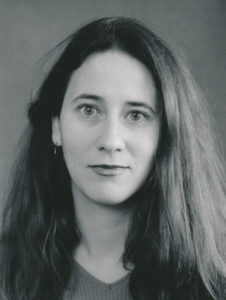 Jennifer Maytorena Taylor, Producer: Jennifer Maytorena Taylor makes colorful, character-based films about real people with extraordinary stories. Her work has been shown at venues such as the Sundance and Locarno Film Festivals, the International Documentary Festival Amsterdam, the New York Museum of Modern Art and Whitney Museum, and by broadcasters such as PBS, Sundance Channel, and NHK-Japan. Jennifer’s newest film, the documentary short Visiting Day, is currently screening in film festivals and with The Atlantic Monthly’s on-line video channel. Her most recent long-form film is Daisy and Max, commissioned by Al Jazeera America for broadcast in the US and around the world. Her previous films include the award-winning documentaries New Muslim Cool, Special Circumstances, Paulina, Home Front, Street Knowledge 2 College, and many short films and co-productions.
Jennifer Maytorena Taylor, Producer: Jennifer Maytorena Taylor makes colorful, character-based films about real people with extraordinary stories. Her work has been shown at venues such as the Sundance and Locarno Film Festivals, the International Documentary Festival Amsterdam, the New York Museum of Modern Art and Whitney Museum, and by broadcasters such as PBS, Sundance Channel, and NHK-Japan. Jennifer’s newest film, the documentary short Visiting Day, is currently screening in film festivals and with The Atlantic Monthly’s on-line video channel. Her most recent long-form film is Daisy and Max, commissioned by Al Jazeera America for broadcast in the US and around the world. Her previous films include the award-winning documentaries New Muslim Cool, Special Circumstances, Paulina, Home Front, Street Knowledge 2 College, and many short films and co-productions.
Jennifer has held fellowships at the Sundance Institute, Banff Centre for the Arts, the Knight Center for Specialized Journalism, and the University of Southern California’s Annenberg School for Communication and Journalism, where she earned a Masters Degree in Specialized Journalism as an Annenberg Fellow. She is a recipient of the James D. Phelan Art Award for her body of work, and has won two Emmys as well as multiple festival awards. A former dancer who loves Brazilian pop, honkytonk, comic books, tacos, taco trucks, Mad magazine, urban hiking, cooking, modern design, and flat-ground bike riding, Jennifer also works as an Assistant Professor in the Social Documentation Masters program and the Film and Digital Media Department at the University of California at Santa Cruz. She is currently in production on two new films, one about a self-identified “redneck” Muslim hospital chaplain in North Carolina and another about acclaimed Brazilian jazz pianist Eliane Elias.
Press
“A remarkable documentary… simultaneously devastating and inspiring… assured, intelligent filmmaking… a testament to what the human spirit can endure and rise above.” –Anita Gates, The New York Times
“Combining handheld Hi-8 documentary footage with lushly composed 16mm narrative sequences, Paulina, Vicky Funari’s first feature, breaks all the rules of marketability and yet is entirely captivating… as a ‘docudrama’ Paulina takes the best attributes of both forms… and combines them to the film’s advantage.” –Holly Willis, Filmmaker Magazine
“Embodies issues of gender representation, in front of and behind the camera, and provides a critique of the very nature of documentary filmmaking. Paulina is not only a complex exploration of a particular woman’s place in an oftentimes oppressive culture but also a dynamic subversion of the conventions of documentary film itself. Joins the small but growing body of work developed by groundbreaking Chicana filmmakers that challenges the patriarchal canon defining the bulk of Chicano/Latino films.” –Jim Mendiola, San Francisco Bay Guardian
“Gets beneath tabloid headlines and organizing statistics to capture, with great visual invention, the subjectivity and dignity and damaged nobility of a Mexican survivor… the stuff of fairy tales… in which magic goes bad… a chilling view of sexual expropriation and family betrayal, and one we have never seen before.” –B. Ruby Rich, San Francisco Bay Guardian
“A harrowing and heroic story told through a variety of means. Dramatic reenactments of Paulina’s accident, captivity, and escape… make Paulina something other than a by-the-book documentary.” –Independent Film & Video Monthly
“Una combinación excelente de documental y actuaciones realistas que acompañan los relatos y voz verídica de Paulina. Interesante y valiosa.” –El Latino
An article in Variety by Vicky and Jennifer about our experiences making the film.
“The true story of Paulina Cruz Suárez… grabs from the start. The film’s structure… creates a jagged hyper-realism that is both fascinating and painful.” –San Francisco Chronicle
Paulina, like its subject, is about fragmentation and re-creation, pulling something whole and powerful out of pieces. Emphasizes Paulina’s tragedy but also the strength and humor that allowed her to survive it.” –Gary Morris, Bright Lights Film Journal
“Paulina was ten years in the making, but its passion and energy are fresh… blending real-life and re-enactment footage with dazzling virtuosity… a favorite at the Sundance Film Festival, it has a magical glow.” –Mick LaSalle, San Francisco Chronicle
“Moving portrayal… beautifully cast and photographed… impressive… in the end it’s Paulina’s engaging forthright personality that makes the film soar.” –Rachel Rosen, Film Comment
At Sundance… “documentaries about famous people were less compelling (and less artistically exciting) than those about unfamous people… To make Paulina, Vicky Funari effectively wove scenes of the real, resilient middle-aged woman with dreamlike dramatized scenes.” –Entertainment Weekly
Susie Gerhard’s report on Sundance 1998.
An interview with Fred Salas of the San Diego Latino Film Festival in In Motion online magazine.
An article from Italy’s La Regione.
The San Francisco Chronicle’s “Datebook” section on opening weekend of our theatrical run.
Other Critical Comment
“Paulina ranks as an important study of gender and class politics, and as a powerful reminder that even the most seemingly humdrum life is significant.” –Time Out New York
“One of three compelling documentaries at this weekend’s New York International Documentary Festival… Paulina is the most engrossing of the lot, a dreamlike blend of interviews and reenactments detailing how a middle-aged Mexican maid returns to her hometown to confront a horrible past.” –New York Daily News
“A fascinating documentary…Paulina received a standing ovation from the crowd at the Roxie Cinema.” –Release Print
“Paulina costó diez años de producción, pero su pasión y su energía son frescas… mezcla la vida real con las recreaciones con deslumbrante virtuosidad… fue un favorito en el Festival de Sundance, y tiene un brillo mágico.” –San Francisco Chronicle
More
Awards
- Grand Jury Prize and Golden Spire Award for Bay Area Documentary, 1998 San Francisco International Film Festival
- Best Documentary, 1998 San Antonio CineFestival
- Best Documentary, 1998 San Juan Film Festival
- Nominated, IFP “Truer Than Fiction” Spirit Awards, 1999
- Lifetime Television’s Vision Award, 1999 Hamptons Film Festival
- Gold Special Jury Award, 1999 WorldFest Houston
- Award of Merit in Film, 2001 Latin American Studies Association
Select Screenings
- Festival of New Latin American Cinema, Official Selection, Documentary Competition. Havana, Cuba (World Premiere)
- Sundance Film Festival, Official Selection, Documentary Competition. Park City, UT (North American Premiere)
- Locarno International Film Festival, International Critics’ Week. Locarno, Switzerland (European Premiere)
- Muestra de Cine Mexicano. Guadalajara, 1998 (Mexican Premiere)
- Hamptons Film Festival, East Hampton, NY
- San Antonio CineFestival. San Antonio, TX
- Leipzig International Documentary Festival. Leipzig, Germany
- San Francisco International Film Festival. San Francisco
- Human Rights Watch Film Festival. New York
- Sao Paulo International Film Festival. Sao Paulo, Brazil
- Göteborg Film Festival, Göteborg, Sweden
- Immaginaria Festival, Bologna, Italy
- Palm Springs International Film Festival, Palm Springs, CA
- Portland International Film Festival, Portland, OR
- Cine Las Americas, Austin, TX
- Chicago Latino Film Festival, Chicago
- San Diego Latino Film Festival, San Diego, CA
- WorldFest Houston, Houston, TX
- Carnegie Museum of Art, Pittsburgh, PA
- Toronto Latino/Latin American Festival, Toronto
- Festival Cine Latino/Cine Accion
- Australian International Documentary Conference (Stranger Than Fiction)
- Outfest’s Out at the Village, Los Angeles
- CineAztlan Festival, Cine Su Teatro, Denver, CO
- Flaherty Seminar, Poughkeepsie, NY
- In exhibition: InSite 2000, Tijuana, BC
- National Women’s Studies Association Conference Film Festival
- Tercera Muestra Internacional de Mujeres en el Cine y la Televisión
MAQUILÁPOLIS
About
2006 / Digibeta / 68 minutes
A feature documentary by Vicky Funari and Sergio De La Torre, in collaboration with the women of:
- Chilpancingo Collective for Environmental Justice
- Women’s Rights Advocates
- CITTAC, Workers’ Information Center
- Grupo Factor X, Women’s House
a co-production of the Independent Television Service (ITVS)
a project of Creative Capital
supported by a grant from the Sundance Institute Documentary Fund
The Film
Carmen and Lourdes work in Tijuana’s maquiladoras, the multinationally-owned factories which came to Mexico for its cheap labor. Each day these factory workers confront labor violations, environmental devastation and urban chaos — life on the frontier of the global economy. In MAQUILÁPOLIS, Carmen and Lourdes reach beyond the daily struggle for survival to organize for change: Carmen takes a major television manufacturer to task for violating her labor rights. Lourdes pressures the government to clean up a toxic waste dump left behind by a departing factory. The women also use video diaries to chronicle their lives, their city and their hopes for the future.
As they work for change, the world changes too: a global economic crisis and the availability of cheaper labor in China begin to pull the factories away from Tijuana, leaving Carmen, Lourdes and their colleagues with an uncertain future. As promotoras – community advocates who fight for social justice – Carmen and Lourdes serve as role models for taking action in the face of adversity.
The Process
We began the Maquila Project in 2000, by inviting factory workers in Tijuana and community organizations in Mexico and the U.S. to join us in creating a film that depicts globalization through the eyes of the women who live on its leading edge. The factory workers who appear in the resulting film MAQUILÁPOLIS [city of factories], have been involved in every stage of production, from planning to shooting, from scripting to outreach. We wanted to engage in a collaborative process that would break with the traditional documentary practice of dropping into a location, shooting and leaving with the “goods,” which would only repeat the pattern of the maquiladora itself. We sought to merge art-making with community development and to ensure that the film’s voice would be truly that of its subjects.
One thing all the workers in MAQUILÁPOLIS had in common was a sense of agency: they were promotoras, women who sought out training in human rights, labor rights and environmental justice from non-governmental organizations (NGOs) and who became advocates committed to passing their knowledge on to their communities. When we met the promotoras, they were each at a point of discovery in their lives, blossoming as women, human beings and activists. We knew that working with them would be an amazing way to tell the intertwined stories of globalization, of the maquiladoras and of citizen activism. We hoped the collaboration would yield a documentary which would be useful to the promotoras and their communities. We also hoped to further the promotoras’ work by providing them with the equipment and skills to create their own videos in the future. After the completion of MAQUILÁPOLIS, we continued to work with the same group of promotoras as well as a broad cohort of partner organizations on a Binational Community Outreach Campaign.
The Campaign
Our Binational Community Engagement Campaign, designed and implemented collaboratively with factory workers and stakeholder organizations in the U.S. and Mexico, used MAQUILÁPOLIS in diverse education and advocacy contexts to create meaningful social change around the issues of globalization, social and environmental justice and fair trade. The primary strategy was to use the film to promote dialogue and as an organizing tool: to get people involved and mobilized for change and to support cross-issue and cross-border activism.
Our campaign team included dedicated activists on both sides of the border, mediamakers commmited to social change, and most importantly a group of women factory workers struggling to bring about positive change in their world. Our core Campaign Partners were: Chilpancingo Collective for Environmental Justice; CITTAC/Worker’s Information Center; Binational Feminist Collective; Environmental Health Coalition; Global Exchange; Maquiladora Health and Safety Support Network; San Diego Maquiladora Workers Support Network; SweatFree Communities; and Women Thrive Worldwide. Other organizations have also partnered with us to organize and promote events, including the Sierra Club, Comité Fronterizo de Obreras (CFO/Border Workers’ Committee), Students Against Sweatshops and many others. The campaign ran formally from 2006-2009, and in some ways it continues informally to this day. We invite you to participate by using the film and the information available on our website in your own organization and community.
Filmmakers’ Statement
As to our personal motivations for making this film, we are both artists who believe that art can and does participate in a cultural dialogue concerning social change and justice. Our work is informed by our own hybrid lives: Vicky is a U.S. citizen who grew up in four countries and six cities, including Mexico City. Sergio is a U.S. and Mexican citizen who was raised in Tijuana and migrated to the San Francisco Bay Area as an adult. Our work on MAQUILÁPOLIS is part of our ongoing investigations into biculturality, migration, gender, and labor.
While films rarely effect measurable, concrete changes in the world, they are powerful tools: they open minds and create dialogue, necessary precursors to and ingredients of action. One of our great pleasures has been to watch this film open up new realms of thought, emotion and experience for audiences, just as the process of making the film opened our own minds and hearts. We hope that through this film viewers come to understand their own intimate relation with Tijuana, with Carmen, Lourdes and other maquiladora workers. We hope that people on both sides of the production/consumption equation begin to recognize each other as global citizens rather than simply as consumers and producers. We hope that people will understand that NAFTA-style treaties do not benefit the many but the few, and that one way to combat them is to support causes like those of the Chilpancingo Collective, CITTAC and the NGOs that organize to question and to resist the darker side of globalization. We hope that you will be inspired to action, so that the work of women like Carmen and Lourdes can lead to ever greater changes for the better, in Tijuana and around the world.
You can watch an interview with Vicky Funari and Sergio De La Torre on PBS.
2006 / Digibeta / 68 minutos
Un documental largometraje hecho por Vicky Funari and Sergio De La Torre, en colaboración con las mujeres de
- Colectivo Chilpancingo pro Justicia Ambiental
- Promotoras por los Derechos de las Mujeres
- CITTAC, Centro de Información para l@s Trabajador@s
- Grupo Factor X, Casa de la Mujer
una co-producción del Independent Television Service (ITVS)
un proyecto de Creative Capital
apoyado por una beca del Sundance Institute Documentary Fund
La Película
Carmen y Lourdes trabajan en unas maquiladoras en Tijuana, fabricas multinacionales que llegaron a México por su mano de obra barata. A diario, estas trabajadoras de la maquila enfrentan violaciones laborales, devastación medioambiental y caos urbano – la vida en la frontera de la economía global. En MAQUILÁPOLIS, Carmen y Lourdes sobrepasan la lucha diaria de sobrevivir y se organizan para lograr el cambio: Carmen demanda a un importante fabricante de televisores por haber violado sus derechos laborales. Lourdes presiona al gobierno para que limpie el sitio de deshechos tóxicos que dejó una fábrica. Las mujeres también usan video-diarios para documentar sus vidas, su ciudad y sus esperanzas para el futuro.
Conforme trabajan para lograr el cambio, el mundo cambia también: una crisis económica global y la disponibilidad de mano de obra más barata en China comienzan a atraer las fábricas fuera de Tijuana, dejando a Carmen, a Lourdes y a sus compañeras con un futuro incierto. Como promotoras – defensoras comunitarias que luchan por la justicia social – Carmen y Lourdes fungen como personas modelos para tomar acción, haciendo frente a la adversidad.
El Proceso
Iniciamos el Proyecto Maquila en el año 2000, invitando a unas trabajadoras de la maquila en Tijuana y a organizaciones comunitarias de ambos lados de la frontera México/Estados Unidos para colaborar en una película que represente la globalización a través de los ojos de las mujeres que la viven día a día. Las trabajadoras que aparecen en la película denominada MAQUILÁPOLIS [city of factories], han participado en todas las etapas de la producción, desde la planeación, el rodaje y la narración, hasta la difusión. Queríamos dedicarnos a un proceso de colaboración que rompiera con la práctica tradicional en los documentales, de caer en un lugar, filmar y marcharse con el “material,” lo cual repetiría el patrón establecido por las mismas maquiladoras. Hemos tratado de fusionar el arte de la cinematografía con el desarrollo comunitario, y de asegurar que la voz de la película sea realmente la de sus sujetos.
Una cosa que tenían en común todas las trabajadoras que participaron en MAQUILÁPOLIS es que todas tenían un sentido común de fuerza: son promotoras, mujeres que buscaron capacitarse en materia de derechos humanos, derechos laborales, y justicia ambiental, por medio de programas ofrecidas por organizaciones no gubernamentales (ONGs), y que se han convertido en defensoras comprometidas a transmitir su conocimiento a sus comunidades. Cuando conocimos a las promotoras, ellas estaban en un punto clave de sus vidas, logrando su plenitud como seres humanos, como mujeres y como activistas. Sabíamos que el trabajar con ellas sería una manera maravillosa de relatar sus historias entrelazadas sobre la globalización, sobre las maquiladoras y sobre su activismo ciudadano. Esperábamos que su colaboración rindiera un documental que sería útil para las promotoras y sus comunidades. También esperábamos que el trabajo de las promotoras llegara más lejos, proporcionándoles el equipo y las aptitudes necesarias para que en el futuro ellas solas crearan sus videos. Después de haber completado MAQUILÁPOLIS, hemos seguido trabajando con el mismo grupo de promotoras, así como con una cohorte amplia de organizaciones asociadas en una Campaña de Difusión Comunitaria Binacional.
La Campaña
Nuestra Campaña de Difusión Comunitaria Binacional, diseñada e implementada colaborativamente con trabajadoras de la maquila y con organizaciones de ambos lados de la frontera EE.UU./México, usa MAQUILÁPOLIS en diversos contextos de educación y gestión para crear un cambio social significativo alrededor de los temas de globalización, de justicia social y ambiental, y de comercio justo. Nuestra estrategia principal fue la de usar la película para promover el diálogo y como una herramienta de activismo, para que la gente se involucre y se movilice, y para apoyar el activismo transfronterizo y trans-temático.
Nuestro equipo de campaña incluyó activistas comprometidos, en ambos lados de la frontera, cineastas comprometidos al cambio social y, aún más importante, un grupo de mujeres trabajadoras de la maquila que luchan para lograr un cambio positivo en su mundo. Nuestros socios principales eran: Colectivo Chilpancingo Pro Justicia Ambiental, CITTAC (Centro de Información para l@s Trabajador@s), Colectiva Feminista Binacional, Environmental Health Coalition (Coalición Pro Justicia Ambiental), Global Exchange, Maquiladora Health and Safety Support Network, SweatFree Communities (Comunidades Pro Trabajo Digno), y Women Thrive Worldwide (Mujeres Prosperando Mundialmente). Otras organizaciones también se han asociado con nosotros para organizar y promover eventos, incluyendo el Sierra Club, el Comité Fronterizo de Obrer@s, Students Against Sweatshops y muchos otros.
La campaña tomó lugar formalmente desde el 2006 al 2009. Sigue en formas más sencillos e informales hasta el día. Los invitamos a participar utilizando el filme y la información disponible en nuestro sitio paraesta guía de discusión a mejorar su propia organización y comunidad.
Declaración del Cineasta
En cuanto a nuestras motivaciones personales para hacer esta película, ambos somos artistas con la creencia de que el arte participa en un diálogo cultural en relación al cambio social y a la justicia. Nuestro trabajo está basado en nuestras propias experiencias: Vicky es una ciudadana estadounidense que se crió en cuatro países y seis ciudades, incluyendo la ciudad de México. Sergio es un ciudadano mexicano-estadounidense que se crió en Tijuana. Después, siendo él ya un adulto, inmigró al Área de la Bahía de San Francisco. Nuestro trabajo en MAQUILÁPOLIS es parte de nuestras continuas investigaciones hacia la migración, el género, el biculturismo y cuestiones laborales.
Mientras que los filmes raramente efectúan cambios concretos y significativos en el mundo, ellos son herramientas muy poderosas: abren la mente y crean diálogo, precursores necesarios e ingredientes de la acción. Uno de nuestros más grandes placeres ha sido ver como esta película ha creado conciencia y ha causado emociones y experiencias al público, así como el proceso de hacerla abrió nuestras propias mentes y nuestros corazones. Esperamos que por medio de este documental el espectador llegue a comprender su íntima relación con Tijuana, con Carmen, con Lourdes y con las demás trabajadoras de las maquiladoras. Esperamos que las personas en ambos lados de la ecuación producción/consumo, comiencen a reconocerse como ciudadanos globales en lugar de ser simplemente productores y consumidores. Esperamos que la gente entienda que los tratados de libre comercio hechos al patrón del TLCAN no benefician a las masas populares sino a unos cuantos, y que la manera de combatirlos es apoyando causas como las del Colectivo Chilpancingo, CITTAC y de otras ONGs que se organizan para cuestionar y resistir el lado oscuro de la globalización. Esperamos que ustedes se inspiran a tomar acción, para que el trabajo de las mujeres como Carmen y Lourdes pueda llevar cambios siempre mayores para el bienestar, en Tijuana y alrededor del mundo.
Usted puede ver una entrevista con Vicky Funari y Sergio De La Torre en PBS.
See The Film
Team
Key Credits
a CineMamás film / un filme CineMamás
produced and directed by / producido y dirigido por
Vicky Funari
Sergio De La Torre
in collaboration with the women of / en colaboración con las mujeres de
Colectivo Chilpancingo pro Justicia Ambiental / Chilpancingo Collective for Environmental Justice
Promotoras por los Derechos de las Mujeres / Women’s Rights Advocates
CITTAC (Centro de Información para Trabajador@s) / Workers’ Information Center
Grupo Factor X, Casa de la Mujer / Factor X Group, Women’s House
coordinating promotoras / promotoras coodinadoras
Diana Arias
Lupita Castañeda
Tere Loyola
Lety Meza
collaborating promotoras / promotoras colaboradoras
Eva Bailón
Carmen Durán
Naty Guizar
Lucia Blanco
Lourdes Luján
Vianey Mijangos
Yesenia Palomares
Adela Rivera
Francis Rodriguez
Delfina Rodriguez
Blanca Sanchez
Rocio Salas
Coty Valdez
executive producer / productora ejecutiva
Vivian Kleiman
original score / música original
Pauline Oliveros
with / con
Bostich and Fussible / Nortec Collective
John Blue
additional performers / músicos adicionales
Lisa Barnard
Reynols
co-producers / co-productoras
Darcy McKinnon
Annelise Wunderlich
16mm cinematography / director de fotografia, 16mm
Daniel Gorrell
Sophia Constantinou
editor / montaje
Vicky Funari
sound edited and mixed by / editor y mezclador de sónido
Phil Perkins, CAS
At The See A Dog, Hear a Dog Co.
community development director / directora de desarollo comunitario
jesikah maría ross
Funding & Support
We are deeply grateful to all our funders! Thank you for believing in this film and in all it could do in the world!
¡Agradecemos de corazón a todos nuestros patrocinadores! Gracias por tener confianza en esta película y en su capacidad de hacer buen trabajo en el mundo!
a project of / un proyecto de
Creative Capital
produced in association with / producido en asociación con
ITVS
supported by grants from / apoyado con becas de
Sundance Institute Documentary Fund
California Arts Council
Corporation for Public Broadcasting
Creative Work Fund
Cultural Contact (formerly the U.S.-Mexico Fund for Culture)
Grousbeck Family Foundation
John Simon Guggenheim Memorial Foundation
LEF Foundation
Lucius and Eva Eastman Fund
National Endowment for the Arts
New World Foundation
Potrero Nuevo Fund
Threshold Foundation
Tides Foundation, advised by Avi Peterson
and generous private donors, including
Hilair Chism
Julia Query Wallace
Paul Rauschelbach
Twana Sparks
Richard Sutter Kueny
fiscal sponsor / patrocinador fiscal
Film Arts Foundation
Community Engagement Campaign funded by / la Campaña de Difusión Comunitaria fue apoyada por
Creative Capital Foundation
Creative Work Fund
Panta Rhea Foundation
Paul Robeson Fund for Independent Media
Potrero Nuevo Fund
San Diego Community Foundation / Lawyers’ Fund for Justice
Sunflower Fund
Threshold Foundation
and generous private donors, including
Betty Carr Muse
and Jackie Warfield
More Credits
organizational partners / organizaciones colaboradoras
CITTAC, Worker’s Information Center / CITTAC, Centro de Información para Trabajador@s
Colectiva Feminista Binacional / Binational Feminist Collective
Colectivo Chilpancingo Pro Justicia Ambiental / Chilpancingo Collective for Environmental Justice
Environmental Health Coalition / Coalición para Salud Ambiental
Global Exchange / Intercambio Global
Grupo Factor X, Casa de la Mujer / Factor X Group, Women’s House
Maquiladora Health and Safety Support Network (MHSSN)
Promotoras por los Derechos de las Mujeres / Women’s Rights Advocates
San Diego Maquiladora Workers Support Network (SDMWSN)
SweatFree Communities
Women Thrive Worldwide
Women’s Rights Advocates
associate producers / productoras asociadas
Sasha Khokha
Avilla Peterson
video camerawork / cámara de video
Vicky Funari
Sergio De La Torre
Lupita Castañeda
Carmen Durán
Lourdes Luján
Yesenia Palomares
assistant camera / asistente de cámara
Bill Basquin
Andrew Eckmann
Daniel Rico
helicopter pilot / helicóptero
Ivor Shier
aerial photography / fotografia aerea
Martin Zimmerman
production coordinator / coordinador de producción
Sergio Brown
editing consultant / asesora de edición
Heidi Plumb
on-line editors / editores on-line
Video Arts
Ed Rudolph
Jesse Spencer
visual effects / efectos especiales
Phoenix Edit•Effects•Design
John Crossley
Matt Silverman
Bobby Van Dyke
production assistants / asistentes de producción
Octavio Castellanos
Juan Angel Cota
Ingrid Hernández
Itzel Martínez
Jorge Nava
Bill Parker
Daniel Rojo
Giancarlo Ruiz
assistant editor / asistente de edición
María Langhi
stills photographer / foto fija
David Maung
advisors / asesoria
Robin Alexander
Garrett Brown
Mariana Bustamante
Rosa Linda Fregoso
Norma Iglesias Prieto
outreach advisor / asesor de difusión comunitária
Robert West
Working Films
executive producer for ITVS / productora ejecutiva para ITVS
Sally Jo Fifer
executive producer for P.O.V. / productora ejecutiva para P.O.V.
Cara Mertes
associate director of production for ITVS / director asociado para ITVS
Richard O’Connell
dedicated to our mothers / dedicada a nuestras madres
Barbara Jane Burriss Funari
María Esther De La Torre
Betty Carr Muse
Rosario Ulinskas
Angela Rodriguez
Maria Estela Ponce
Socorro Guizar Argote
Marichuy Gonzales
Socorro Rodriguez
Juana Castañeda
Tere Loyola
Maria Luisa Martínez Argote
Gildarda Díaz
Carmen Arteaga
Guadalupe Aguirre
Carmen Gaviño
Creditos Claves
a CineMamás film / un filme CineMamás
produced and directed by / producido y dirigido por
Vicky Funari
Sergio De La Torre
in collaboration with the women of / en colaboración con las mujeres de
Colectivo Chilpancingo pro Justicia Ambiental / Chilpancingo Collective for Environmental Justice
Promotoras por los Derechos de las Mujeres / Women’s Rights Advocates
CITTAC (Centro de Información para Trabajador@s) / Workers’ Information Center
Grupo Factor X, Casa de la Mujer / Factor X Group, Women’s House
coordinating promotoras / promotoras coodinadoras
Diana Arias
Lupita Castañeda
Tere Loyola
Lety Meza
collaborating promotoras / promotoras colaboradoras
Eva Bailón
Carmen Durán
Naty Guizar
Lucia Blanco
Lourdes Luján
Vianey Mijangos
Yesenia Palomares
Adela Rivera
Francis Rodriguez
Delfina Rodriguez
Blanca Sanchez
Rocio Salas
Coty Valdez
executive producer / productora ejecutiva
Vivian Kleiman
original score / música original
Pauline Oliveros
with / con
Bostich and Fussible / Nortec Collective
John Blue
additional performers / músicos adicionales
Lisa Barnard
Reynols
co-producers / co-productoras
Darcy McKinnon
Annelise Wunderlich
16mm cinematography / director de fotografia, 16mm
Daniel Gorrell
Sophia Constantinou
editor / montaje
Vicky Funari
sound edited and mixed by / editor y mezclador de sónido
Phil Perkins, CAS
At The See A Dog, Hear a Dog Co.
community development director / directora de desarollo comunitario
jesikah maría ross
Patrocinio y Apoyo
We are deeply grateful to all our funders! Thank you for believing in this film and in all it could do in the world!
¡Agradecemos de corazón a todos nuestros patrocinadores! Gracias por tener confianza en esta película y en su capacidad de hacer buen trabajo en el mundo!
a project of / un proyecto de
Creative Capital
produced in association with / producido en asociación con
ITVS
supported by grants from / apoyado con becas de
Sundance Institute Documentary Fund
California Arts Council
Corporation for Public Broadcasting
Creative Work Fund
Cultural Contact (formerly the U.S.-Mexico Fund for Culture)
Grousbeck Family Foundation
John Simon Guggenheim Memorial Foundation
LEF Foundation
Lucius and Eva Eastman Fund
National Endowment for the Arts
New World Foundation
Potrero Nuevo Fund
Threshold Foundation
Tides Foundation, advised by Avi Peterson
and generous private donors, including
Hilair Chism
Julia Query Wallace
Paul Rauschelbach
Twana Sparks
Richard Sutter Kueny
fiscal sponsor / patrocinador fiscal
Film Arts Foundation
Community Engagement Campaign funded by / la Campaña de Difusión Comunitaria fue apoyada por
Creative Capital Foundation
Creative Work Fund
Panta Rhea Foundation
Paul Robeson Fund for Independent Media
Potrero Nuevo Fund
San Diego Community Foundation / Lawyers’ Fund for Justice
Sunflower Fund
Threshold Foundation
and generous private donors, including
Betty Carr Muse
and Jackie Warfield
Más Creditos
organizational partners / organizaciones colaboradoras
CITTAC, Worker’s Information Center / CITTAC, Centro de Información para Trabajador@s
Colectiva Feminista Binacional / Binational Feminist Collective
Colectivo Chilpancingo Pro Justicia Ambiental / Chilpancingo Collective for Environmental Justice
Environmental Health Coalition / Coalición para Salud Ambiental
Global Exchange / Intercambio Global
Grupo Factor X, Casa de la Mujer / Factor X Group, Women’s House
Maquiladora Health and Safety Support Network (MHSSN)
Promotoras por los Derechos de las Mujeres / Women’s Rights Advocates
San Diego Maquiladora Workers Support Network (SDMWSN)
SweatFree Communities
Women Thrive Worldwide
Women’s Rights Advocates
associate producers / productoras asociadas
Sasha Khokha
Avilla Peterson
video camerawork / cámara de video
Vicky Funari
Sergio De La Torre
Lupita Castañeda
Carmen Durán
Lourdes Luján
Yesenia Palomares
assistant camera / asistente de cámara
Bill Basquin
Andrew Eckmann
Daniel Rico
helicopter pilot / helicóptero
Ivor Shier
aerial photography / fotografia aerea
Martin Zimmerman
production coordinator / coordinador de producción
Sergio Brown
editing consultant / asesora de edición
Heidi Plumb
on-line editors / editores on-line
Video Arts
Ed Rudolph
Jesse Spencer
visual effects / efectos especiales
Phoenix Edit•Effects•Design
John Crossley
Matt Silverman
Bobby Van Dyke
production assistants / asistentes de producción
Octavio Castellanos
Juan Angel Cota
Ingrid Hernández
Itzel Martínez
Jorge Nava
Bill Parker
Daniel Rojo
Giancarlo Ruiz
assistant editor / asistente de edición
María Langhi
stills photographer / foto fija
David Maung
advisors / asesoria
Robin Alexander
Garrett Brown
Mariana Bustamante
Rosa Linda Fregoso
Norma Iglesias Prieto
outreach advisor / asesor de difusión comunitária
Robert West
Working Films
executive producer for ITVS / productora ejecutiva para ITVS
Sally Jo Fifer
executive producer for P.O.V. / productora ejecutiva para P.O.V.
Cara Mertes
associate director of production for ITVS / director asociado para ITVS
Richard O’Connell
dedicated to our mothers / dedicada a nuestras madres
Barbara Jane Burriss Funari
María Esther De La Torre
Betty Carr Muse
Rosario Ulinskas
Angela Rodriguez
Maria Estela Ponce
Socorro Guizar Argote
Marichuy Gonzales
Socorro Rodriguez
Juana Castañeda
Tere Loyola
Maria Luisa Martínez Argote
Gildarda Díaz
Carmen Arteaga
Guadalupe Aguirre
Carmen Gaviño
Bios
Vicky Funari, Producer/Director/Editor: Vicky Funari is a documentary filmmaker, editor, and teacher. Funari produced, directed, and edited the feature documentaries MAQUILÁPOLIS (2006) and Paulina (1998); and she directed and edited Live Nude Girls Unite! (2000). These award-winning, critically acclaimed films have screened in many preeminent film festivals, including Sundance, Locarno, Havana, Rotterdam, SXSW, and Tribeca. Her films have won numerous awards, including Grand Jury Prize and Audience Awards at the San Francisco International Film Festival; Lifetime Television’s Vision Award at the Hamptons Film Festival; and Audience Award for Best Documentary at the Women’s International Film Festival of Barcelona. Her films have aired on PBS, HBO, the Sundance Channel, and Televisa. From 2006-2009, Funari directed the MAQUILÁPOLIS binational Community Engagement Campaign, using that film in conjunction with activist organizations and factory workers to promote public dialogue and social change. Funari has been editor and consulting editor on a wide range of projects, most recently the documentary Strong!, directed by Julie Wyman, which aired on the PBS strand Independent Lens in 2012. Funari is a Guggenheim Fellow and a MacDowell Colony Fellow. Funari is currently a Visual Media Scholar at Haverford College, where she teaches, designs interdisciplinary media projects, and programs documentary film series for the college. She is currently producing and directing two documentaries: one, currently in post-production, tells a story of healthy aging, community, and ladies in a pool; while the other, in development, is about American rivers and their environmental and human histories.
Sergio De La Torre, Producer/Director: As an artist and educator, Sergio De La Torre has worked with and documented the manifold ways by which citizens reinvent themselves in the city they inhabit, as well as site-specific strategies they deploy to move ‘in and out modernity.’ De La Torre’s work often invokes collaborations with the subjects and invites both intimate and critical reflections on topics related to housing, immigration and labor, to mention only a few. De La Torre purposely work with individuals from marginalized sectors of the cities he works in. In his work De La Torre has tried to approach the lives of these individuals, not as victim-subjects, but have attempted rather to reexamine the meaning of their actions in the context of shifting global conditions. These works have appeared in the 10th International Istanbul Biennial, Turkey; the Bienal Barro de America, Museo de Bellas Artes Caracas, Venezuela; in the Cleveland Performance Art Festival, Cleveland, Ohio; the Atelier Frankfurt, Germany; the Centro Cultural Tijuana; the Yerba Buena Center for the Arts in San Francisco; the TRIBECA Film Festival, New York; and el Festival Internacional de Cine de Morelia. Sergio De La Torre is an Associate Professor at the University of San Francisco Art and Architecture Department.
Press
“A portrait of the perils of globalization that admirably seeks new forms of expression… a stirring work that’ll provoke genuine outrage.” –Neil Genzlinger, The New York Times
“Making explicit the slogan ‘knowledge equals power,’ MAQUILÁPOLIS is the rare activist documentary that really does empower the individual women at the heart of its story.” –Jay Weissberg, Variety
“Argues not for special privileges but for a flicker of justice.” –Richard Corliss, Time
“Encourages an extension of our imaginations across boundaries of space or time through a visceral, bodily engagement with people on the screen… It is in a profound way the embodiment of a collaboration, and as such perhaps a model for an alternative and more just world, one based on a different notion of time, commmitment, and care than that which drives late stage capitalism.” –Irina Leimbacher, Camerawork
“Smartly relying on subjective diary footage taken by two untutored female organizers, the film bristles with anger, despair, hope, and a healthy dollop of self-conscious humor.” –Paul Arthur, Film Commment
“Se muestra la compleja problemática en la que se contraponen los intereses económicos de los inversionistas a los intereses de bienestar de los trabajadores.” –Patricia Blake, Frontera
“Brings into sharp relief the price of globalization and cheap labor.” –Jacqueline Blais, USA Today
“Industrial-strength desolation… reminds us that for all its glories, globalism can leave very dirty footprints.” –Dave Shiflett, Bloomberg.com
An article in La Jornada, about our 2007 Border Street Cinema Tour.
“El documental estará de gira por siete ciudades de la frontera norte. MAQUILÁPOLIS, la historia de las mujeres obreras que se niegan a ser víctimas.” –Tania Molina Ramirez, La Jornada
An article in Zócalo, about our 2007 Border Street Cinema Tour.
“Mostrarán ‘vida real’ de obreras de Acuña”
Other Critical Comment
“All who care about social justice, the environment, womens rights and labor rights, should view this film. MAQUILÁPOLIS should be screened in theaters, union halls, college campuses, and at the annual meeting of the World Social Forum. Many consider the U.S.-Mexico border to be ‘the laboratory of the future.’ In MAQUILÁPOLIS the border is also the site where global capitalism is facing profound resistance. MAQUILÁPOLIS is one of the most authoritative documentaries on cross-border organizing.” –Rosa-Linda Fregoso, Latin American and Latino Studies, University of California Santa Cruz
“MAQUILÁPOLIS is a compelling look at the high, hidden costs of the global economy. It puts human beings front and center. This film is a must see!” –Harley Shaiken, Professor, University of California, Berkeley
“MAQUILÁPOLIS is a wonderful fusion of expose and imagination, delivering an unprecedented look into the realities of life in the border communities where the maquiladoras reign. Made in collaboration with the women whose lives center on these secretive factories, MAQUILÁPOLIS succeeds in crossing borders and peering around corners to capture how the women caught in the contradictions of global capital understand their own positions. A key case study for anyone interested in transnational realities — and subjectivities.” –B. Ruby Rich, Social Documentation Program and Film + Digital Media Department, University of California Santa Cruz
More
Awards
- LASA Award of Merit in Film, 2007 Latin American Studies Association Film Festival
- Special Mention, Outstanding Achievement in Documentary, Tribeca Film Festival
- Audience Award for Best Documentary, Barcelona Women’s Film Festival
- Jury Special Mention, Green Film Festival of Seoul
- Best Film About Borders and Migration, Contra el Silencio Latin American Documentary Encounter
- Special Mention, Amnesty Jury, CPH:DOX/Copenhagen International Documentary Film Festival
- Cine Golden Eagle
Selected Screenings
MAQUILÁPOLIS has screened at over 50 festivals worldwide, been broadcast on PBS, and has had many community-based and educational screenings as part of our Binational Community Engagement Campaign. A few highlights are below.
- World Premiere, International Film Festival Rotterdam
- Latin American Premiere, Guadalajara International Film Festival
- U.S. Premiere, Tribeca Film Festival, Documentary Competition, New York
- Contra el Silencio Latin American Documentary Encounter, Mexico City
- Hot Docs Canadian International Documentary Film Festival, Toronto
- Chicago Latino Film Festival
- INSITE / Centro Cultural Tijuana, Tijuana, Mexico
- Los Angeles Film Festival
- Barcelona International Women’s Film Festival
- Karlovy Vary International Film Festival, Karlovy Vary, Czech Republic
- Vancouver International Film Festival
- MadCat Women’s International Film Festival, San Francisco Bay Area
- Morelia Film Festival, Morelia, Mexico, October 2006
- California Biennial, Orange County Museum of Art, Newport Beach, CA
- Muestra Internacional de Mujeres en el Cine y la Televisión, Mexico City
- National broadcast on the PBS series P.O.V.
- Copenhagen International Film Festival, Denmark
- Ambulante Travelling Documentary Festival, Mexico
- Museum of Modern Art, Documentary Fortnight, New York
- Street Cinema Border Tour, 18 community screenings along the U.S.-Mexico border
- Washington DC Environmental Film Festival
- Cine Las Americas International Film Festival, Austin, TX
- Thessaloniki International Documentary Film Festival
- Istanbul Biennial, Istanbul Foundation for Culture and Arts
- Yilan Green International Film Festival, Taipei, Taiwan
- Filmmor Women’s Film Festival, Istanbul, Turkey
- “Women, Power, & Politics,” International Museum of Women, San Francisco
- Human Rights Film Festival Aeotearoa, New Zealand
- Latin American Film Festival, Utrecht, The Netherlands
- Women Labour Moves! Women’s Film Festival, Vienna, Austria
- “Status Report,” BRIC Gallery, Brooklyn, NY
- Transitio_mx, International Electronic and Video Arts Festival. Mexico City
- Cable broadcast on the PBS series Global Voices
- MoMA / Museum of Modern Art, New York, NY
- MassMOCA exhibition, The Workers, North Adams, MA
- Hammer Museum, Los Angeles, CA
- Gender Matters: Feminist Ecologies and Materialities Symposium, Dartmouth College
